#birmingham new street station transfer
Explore tagged Tumblr posts
Text
Looking for Birmingham New Street Station Transfer services? At Airports Travel Ltd., we are committed to providing our customers with the best possible service for a seamless and hassle-free experience.
We understand the importance of customer satisfaction, and are committed to meeting and exceeding our customers’ expectations. We take pride in our reliable, efficient, and cost-effective services, ensuring that our customers have the best possible travel experience.
To book a ride with us, visit our website now!
#birmingham new street station transfer#birmingham station#birmingham#taxi#cab#car transfer#taxi transfer#minicabs#airports travel#station transfer
0 notes
Text
The Ultimate Guide to the Best Airport Transfers to and from Birmingham

Traveling to and from Birmingham, the vibrant heart of England's West Midlands, requires efficient and reliable transportation. Whether you are arriving at Birmingham Airport for business or pleasure, having a seamless airport transfer can make a significant difference in your travel experience.
Understanding Birmingham Airport
Birmingham Airport, located approximately 8.1 Miles southeast of the city center, is one of the UK’s busiest airports. It serves millions of passengers annually, offering a wide range of domestic and international flights. Given its importance and volume of traffic, choosing the right transfer service is crucial for a hassle-free journey.
Private Airport Transfers
Private airport transfers are a popular choice for travelers seeking convenience and luxury. These services provide a dedicated vehicle, typically a high-end sedan or an executive car, ensuring privacy and comfort. Companies like MiniCabRide offer reliable private transfers with professional drivers who greet you at the arrivals terminal, assist with your luggage, and ensure a swift journey to your destination. The major advantage of private transfers is the personalized service and flexibility, allowing you to travel at your own pace without the need to navigate public transport or wait for other passengers.
Airport Shuttles
For travelers looking for a cost-effective yet efficient option, airport shuttles are a great choice. Shuttle services, such as National Express and Birmingham Airport Shuttle, operate on a shared basis, reducing the cost per passenger while still providing door-to-door service. These shuttles run on scheduled routes, making multiple stops to pick up and drop off passengers. While slightly less flexible than private transfers, shuttles offer a balance between affordability and convenience, particularly for solo travelers or small groups.
Taxis and Ride-Hailing Services
Taxis and ride-hailing services like MiniCabRide are readily available at Birmingham Airport. Birmingham Airport Taxi offer the benefit of being available 24/7, making them a reliable option for late-night or early-morning arrivals. The taxi ranks are located just outside the terminal building, providing easy access. Ride-hailing services, on the other hand, offer the convenience of app-based booking, allowing you to arrange a ride in advance or on-demand. Both options are suitable for travelers who prefer a direct and straightforward transfer without the need to share the ride with others.
Public Transportation
Birmingham Airport is well-connected to the city center and surrounding areas through a robust public transportation network. The airport’s integrated rail station, Birmingham International, provides direct train services to Birmingham New Street Station, the city’s main railway hub. Trains run frequently, with a journey time of around 10-15 minutes. For those traveling light and on a budget, this is an excellent option. Additionally, local buses operated by National Express West Midlands and other providers connect the airport to various parts of the city, offering a more extensive reach.
Car Rentals
For travelers who prefer the freedom and flexibility of driving themselves, car rental services are available at Birmingham Airport. Major car rental companies like Hertz, Avis, and Enterprise have offices at the airport, offering a wide range of vehicles to suit different needs and budgets. Renting a car allows you to explore Birmingham and its surroundings at your own pace, making it ideal for those planning to visit multiple locations or stay for an extended period.
Comparing the Options
Choosing the best airport transfer option depends on various factors, including budget, convenience, and personal preferences. Private transfers are perfect for those who prioritize comfort and personalized service. Shuttles provide a balance between cost and convenience, especially for solo travelers or small groups. UK Taxis and ride-hailing services offer flexibility and direct routes, while public transportation is an excellent choice for budget-conscious travelers. Car rentals provide the ultimate freedom for those who enjoy driving and exploring on their terms.
Tips for a Smooth Airport Transfer
To ensure a seamless airport transfer experience, consider the following tips. Firstly, book your transfer in advance, especially during peak travel times or busy seasons, to secure availability and potentially better rates. Secondly, provide accurate flight details to your transfer service to accommodate any changes in your arrival time. Thirdly, confirm the meeting point with your driver or service provider to avoid confusion upon arrival. Lastly, keep contact details of your transfer service handy in case of any issues or delays.
Special Considerations for Business Travelers
Business travelers often have specific needs, such as punctuality, reliability, and the ability to work on the go. For this reason, private transfers and executive car services are highly recommended. These services ensure timely pickups and drop-offs, allowing you to maintain your schedule efficiently. Many executive car services offer amenities such as Wi-Fi, allowing you to stay connected and productive during your journey. Additionally, some companies provide dedicated business accounts, streamlining the booking and billing process for frequent travelers.
Family and Group Travel
Traveling with family or in a group requires additional considerations, such as space for luggage and ensuring the safety of young children. Airport shuttles and private transfers with larger vehicles, like minibuses or vans, are suitable for accommodating groups and families. When booking, ensure you inform the service provider about the number of passengers and any special requirements, such as child seats. These services often provide more room and amenities to make the journey comfortable for all members of your party.
Eco-Friendly Transfer Options
As environmental concerns grow, many travelers seek eco-friendly transfer options. Birmingham Airport and several transfer services are responding to this demand by offering greener alternatives. Some Birmingham taxi and ride-hailing companies operate hybrid or electric vehicles, reducing carbon emissions. Additionally, public transportation, such as trains and buses, are inherently more eco-friendly due to their higher passenger capacity and lower per-person emissions. Opting for these green transfer options contributes to reducing your carbon footprint while traveling.
Enhancing Your Travel Experience
A well-planned airport transfer can significantly enhance your overall travel experience. Arriving in Birmingham stress-free and ready to explore or attend to business sets a positive tone for your trip. By choosing the right transfer option, you ensure comfort, convenience, and reliability, allowing you to focus on enjoying your time in this dynamic city. Whether you prefer the luxury of a private car, the cost-effectiveness of a shuttle, or the eco-friendliness of public transport, Birmingham offers a variety of airport transfer solutions to meet your needs.
How Much is a Taxi From Birmingham Airport?
Airport TransfersDistancePriceApx. Journey TimeTaxi From Birmingham to Southend Airport Transfer142 MILES£229:0002 hour 35 MinutesTaxi From Birmingham to Stansted Airport Transfer116 MILES£189:0002 hour 05 MinutesTaxi From Birmingham to London City Airport Transfer129 MILES£209:0002 hour 20 MinutesTaxi From Birmingham to Luton Airport Transfer82 MILES£139:0001 hour 30 minutesTaxi From Birmingham to Heathrow Airport Transfer106 MILES£177:0001 hour 55 MinutesTaxi From Birmingham to Gatwick Airport Transfer140 MILES£228:0002 hour 20 MinutesTaxi From Birmingham to Manchester Airport Transfer90 MILES£149:0001 hour 32 MinutesTaxi From Birmingham to Liverpool Airport Transfer104 MILES£174:0001 hour 50 Minutes
Conclusion
Selecting the best airport transfer to and from Birmingham involves considering various factors, including budget, convenience, and personal preferences. From private transfers and shuttles to taxis, ride-hailing services, public transportation, and car rentals, there are options to suit every traveler’s needs. By planning ahead and choosing the right transfer service, you can ensure a smooth and enjoyable journey, making the most of your time in Birmingham. Whether you are visiting for business or leisure, the right airport transfer sets the stage for a successful and memorable trip.
#Birmingham Airport Taxi#Taxi from Birmingham Airport#Taxi to Birmingham Airport#Birmingham Airport cabs#Birmingham Airport Transfer#Airport transfer#Birmingham Taxi#Birmingham Airport taxi Company
0 notes
Link
0 notes
Link
January 16, 1986 12:00PM ET
Double agents selling secrets to foreign governments; defectors running amok in the streets of Washington; allies betraying allies — these days spies are out of the shadows and on the spot. Yet espionage isn’t what it once was, and at least one Cold War vet fondly remembers overthrowing unfriendly governments, planning assassinations and performing dirty tricks. Most of all, retired CIA officer Miles Copeland (whose brood of rock & roll overachievers includes oldest son Miles Copeland III, manager of the Police and solo Sting; Ian, founder of the music booking agency FBI; and youngest son Stewart, drummer first for Curved Air and later for the Police) yearns for the good old days when secret agents kept their secrets secret — from the government and especially from the press.
Born in Birmingham, Alabama, Copeland joined the U.S. Army in 1940. Assigned to the Counter-Intelligence Corps (CIC), he transferred in 1942 to the new Office of Strategic Services (OSS), the first U.S. secret intelligence agency. After the war, Copeland was station chief in Damascus, “putting Syria,” as he recalls, “on the path to democracy by starting a military dictatorship.” For this achievement, he was awarded a presidential citation. Copeland became a member of the Central Intelligence Agency when it was founded in 1947; he was appointed chief of the agency’s Political Action Staff, the dirty-tricks department, in 1950. “Nobody,” he says, “knows more about changing governments, by force or otherwise, than me.”
Copeland left government service in 1957 to form his own “private CIA,” which he claims became the largest private security service operating in Africa and the Middle East. Today the seventy-two-year-old Copeland and his wife, Lorraine, a well-known British archaeologist, live in a stone cottage in the tranquil hamlet of Aston Rowant, near Oxford, in England.
The White House has given the CIA part of the Job of handling terrorism. What do you think they will do that is different from what has already been done? You know, you’re opening a real can of worms here. The difference between the CIA’s counterterrorist experts and this new kind that’s been proliferating all over the place is that the CIA has operators who know the terrorists, who’ve actually talked to a few, who’ve even lived with them, or who, like myself, have actually been terrorists. We understand the enemy, while these instant experts who’ve been advising the White House have never in their lives laid eyes on a terrorist, and they think of them as common criminals. Maybe they are, and maybe they aren’t, but where these recent “experts” are wrong is that they assume they are criminals simply because they are judging them as though they are Americans, brought up on American ideas of what’s right and what’s wrong. They are making moral judgments that aren’t relevant to the situation. What may be effective in combating crime is not likely to be effective in dealing with wrong doers who in their own eyes, whether rightly or wrongly, think they are engaged in some noble cause. The Pentagon wants to kill them; the CIA wants to win them over.
Who’s winning? It’s not a matter of winning. Just different viewpoints. The president of the United States has got to say what is necessary to keep himself in office. We have a domestic foreign policy and a foreign foreign policy. The domestic foreign policy, which is the more important one, is what he has to do to make the American public think he’s doing the right thing. Whether it’s the right thing or not doesn’t matter. The American people have to think he’s doing the right thing because we have a democratic society. Now, the American people were highly indignant about what happened in Beirut [the hijacking of TWA flight 847 in June 1985]. They wanted to do something. They wanted to punish the people without regard to the consequences. The president had to say things to them, make threats, to show the American people that, by God, we were doing something. But the professionals inside the government were worried about the consequences of this. Because what it takes to please the American people is not what it takes to please a lot of people who did not grow up in the American culture but grew up in cultures quite different from our own. We’ve got most of the world against us at the moment. When we drag out our gunboats, bomb villages and kill a lot of women and children — a lot more than the terrorists kill — we turn the world against us. And the American people don’t care. They don’t give a damn. But those people whose job it is to look after the interests of the U.S. government abroad, they’ve got to care. They have to think of the consequences of everything we do. And they know the consequences of dragging out the gunboats are absolutely the wrong ones. In fact, these are the consequences the terrorists created acts of terrorism in order to provoke. That’s the purpose of terrorism, not to kill, maim or destroy, but to terrorize, to frighten, to anger, to provoke irrational responses. Terrorism gains more from the responses than it gains from the actions themselves.
So how do you deal with it? You’ve got to know who they are. You’ve got to know their reasons for doing it. And you’ve got to manipulate them in one way or another. We have to somehow come to grips with the problem. The Israelis went in to Lebanon and killed tens of thousands of people. They say, “That’s exaggerating, we didn’t kill but 5,000 people.” Okay, let’s say they killed only 2,000 people, which is a very modest estimate. But they destroyed Lebanon. They then set up groups against each other, made chaos ten times worse than it already was. Instead of helping the Shiites — the Shiites welcomed the Israelis in — we, the United States, gave a billion dollars to the Israelis. One billion we gave because it costs a lot of money to destroy someone else’s country. We gave peanuts — Red Cross supplies — to the Shiites. What we should have done is gone in there and said to the Shiites: “Look, a lot of injustice has been done. We’re going to put your orange groves back and put you back commercially. . . . “
Is that your answer for potential terrorists? Give them lots of aid to keep them sweet? No. Let’s get back to the reason these guys are terrorists. They’re terrorists because their orange groves have been destroyed and they’ve got nothing to do. They can’t even get to their farms because the Israelis have declared them out of bounds and destroyed a lot of them. Now, the CIA’s job is to explain all of this to our government. That’s the main job of the CIA — to go to the White House and explain to the president that the only reason these terrorists are terrorists is because of the way they’ve been treated, and they’ve got nothing else to do. In fact, I’ll tell you quite frankly, if people came into Alabama, my home state, and destroyed my farms and kicked me around and kicked my children around, I’m going to become a terrorist, just as the French became terrorists under the Germans in World War II. It’s understandable. The CIA understood this and understood it very well and explained it to the president. But we had pressures from Congress. The members of Congress don’t give a damn about foreign affairs. They give a damn about their next election. They have to do what makes them popular enough with their constituents to get reelected. And their constituency cares about one place in this world, and that’s the United States.
You have told me what we should have done. What should we do to combat terrorism now that the damage has been done? Well, most terrorists in the world are coming down to two categories. The first kind are people such as the Palestinians, who’ve had — listen, I’ve known this one family for the past forty years. The guy has polio, he’s crippled. He has some teenage kids who are nice kids, nice family. The Israelis showed up at six o’clock in the evening and said: “Everybody out! Everybody out!” They all got out, and the Israelis razed his house. He says: “I haven’t done a damn thing! I’m just looking after my orange groves!” They said, “You had a terrorist in your house six months ago.” First place, he said he hadn’t, and I believe he was telling the truth. But the Israelis had no good reason to believe he wasn’t — no name, no information at all. Now this is information that our embassy reported. This is official, not something I heard from the PLO information office. Now those two teenage kids stood there and watched their family being destroyed and their mother kicked downstairs when she refused to leave the house. Can you imagine their not becoming terrorists? They don’t have an air force or artillery. I had a Shiite ask me: “You say we shouldn’t use terrorism. What should we use?” Well, you shouldn’t use anything, we might say. You should make peace with Israel. Make peace with Israel? They’ve just destroyed my land! I have nothing! My house is flattened! The whole village is destroyed! This isn’t just the Shiites talking. Our own embassy says this. You know something that very few people know, and I suspect you ought to leave all this out, but the fact is, in the American foreign service, there are a lot of patriots. You’ve never seen such patriots in your life. They all fight for American policy, right or wrong. Central America, Vietnam, wherever, except in the Middle East. The whole career service in the Middle East spends all its time fighting its own government. Anyone who doubts that can use the Freedom of Information Act to get the cables, all of them pleading with our own government to stop this support of Israel to that point. I don’t mean stop supporting Israel, but stop the behavior of Israel, which is making them hated. And we are backing them against these people they’ve kicked around. And how did the Israelis get in power? Terrorism. You’d think they’d know something about terrorism since the heads of their government have been terrorists themselves. In fact, Israel wouldn’t be there if it hadn’t been for their effective terrorists. But they know nothing about terrorism. A friend of mine in Mossad [the Israeli intelligence agency] said: “Terrorism is not going to destroy Israel, but our counterterrorism might, because it costs us a million dollars a day. It might drive us into bankruptcy.”
So what’s the answer to terrorism? Like I was saying, we have to find the reason these people are terrorists. The job of the CIA is to report why they are terrorists. Now I said there are two categories. The first, people who have been deprived and been ruined. The second category is this: A lot of these guys have found a way of life. They’re like gunslingers in the Old West. They drive Mercedes. There are professional terrorists now. It’s a profitable business. Maybe they were criminals originally, criminally inclined, but now they have political motivations to justify themselves. You’re not going to find them. Many of them are in Paris, and the French police don’t give a damn. The fact is that we are fighting a “proxy war” right now in which Soviet proxies face our proxies. Today’s war, between us and the Soviets, is a mosaic of regional wars. The Soviet policy is one of denial, not to gain territory for themselves but to deny it to us, to deprive us of the raw materials from Africa — cobalt, magnesium, chromium — that we have to have for a highly technological society like ours.
Are you saying the Soviets are behind terrorism? No, they exploit the troubles. Most of the terrorism in the world today the Soviets do not instigate. They may train key people to go in and stir things up, but that’s as far as they go. The Soviets are delighted when we draw up a gunboat in the Beirut harbor. They love this. It makes people hate us. The thing we should have done about the TWA hijacking in Beirut was get the damn thing over with right away as the CIA advised.
And how would we have done that? Let the Shiites loose. Forget it. We’ve lost this one.
Wouldn’t giving in like that encourage more terrorism? No. What encourages them is to get all that prime time on television. They wanted the publicity they got. And they wanted us to look like jackasses, which they succeeded in doing. In a war, you lose battles now and then. The best thing to do is cut your losses and get the hell out. They were hoping we’d drag it out.
You think the media was out of control? The media is always out of control. It’s not supposed to be under control. That’s what we have to live with in a free society. You can’t prevent the media from doing what it wants to do. But you can prevent the media from getting the information in the first place, by having rules for those who have the secrets not to release them to the media.
All right, how would the rules have worked in Beirut? How could you have prevented the madness that ensued? You know, if a plane lands in Turkey right now, the minute they establish there are hijackers on it, you know what happens? Nothing. They cut off all communications. “We want you to release so-and-so.” Silence. They just sit there and rot as far as the Turks are concerned. So there’s no news whatsoever. It’s not unethical to give the press false information. We do have a kind of adversary relationship with the press. There’s nothing we should try to do to shut them up, but it is absolutely permissible to tell the press whatever is in the interests of the American people to have the press know or think. And they can use it any way they want to. They can be suspicious, as they should be. A good pressman is suspicious of what anyone tells him.
How does your vision of the CIA fit Western democracy? [Laughter.]
Come on, what are Miles Copeland’s principles of democracy? Let me tell you about democracy. First place, I remember Syria. We decided we were going to bring democracy to Syria. So we got a translator in Arabic, and we got signs. We were going to have an election. This is 1946, ’47. The signs say, Get Out And Vote For The Candidate of Your Choice. We had people coming in the embassy and saying, “Look, these signs are no good — they don’t tell us who the candidate of our choice is.” In the United States, if we had true democracy, it would be a good thing. But true democracy is impossible now because of the fact that the general population cannot possibly keep themselves well enough informed to decide on issues except on a very parochial basis. The average person, the best he can do is something he’s not allowed to do — that’s to vote for a man because he’s known to be honest and competent. But now a candidate has to tell you what his issues are and get elected on that basis. We have to sell the idea to the American public that there are many things about foreign policy the American people simply cannot understand, because foreign policy requires, above all else, judging people according to their own standards. The emphasis should be in choosing people we trust. Where the CIA can work as an institution in a democratic government is, we have to set up criteria where nobody can get into the CIA unless he’s honest and patriotic. And I think they’ve succeeded at that. The guys in the CIA are the most strait-laced people you ever saw.
Who gets your highest marks as CIA director? I’d have to name two people, and for totally different reasons. I think George Bush was the best. He came in knowing he didn’t know a damn thing about the CIA, but he did know how to judge people whose opinions he could trust, and he listened to them.
Who is second? Dick Helms. Helms lied to a congressional committee. That’s one of his fortunate traits, that he’s willing to lie to a congressional committee. William Colby didn’t have the guts to do this. Lacking patriotism, he did not lie to a committee.
Wait a minute — lacking patriotism? Absolutely. Why should he tell a group things he knew would leak to the newspapers? He should have lied to them. If he were really a patriotic American, he wouldn’t have thought of telling them the truth.
And Helms gets high marks for perjury? With me and with everyone who has ever been a career officer in the government. Absolutely. You can call it perjury if you like, and maybe it was, but he should have been willing to go to jail for it.
It’s okay to lie under oath if you’re in the CIA? I said nothing of the sort. If what you know means that telling the truth is going to damage the national interest, it is your obligation. . . .
Who decides the national interest? Do you want me to give you a hard time or do you want an answer?
Both. Okay, I’ll give you an answer: The CIA is set up so that it’s impossible for a person as an individual to arrogate to himself the right to lie to a congressional committee or to anyone else. But what he can or cannot say is clearly specified from the day he is sworn in. He can lie to people who are not his bosses, who do not have security clearances. Most congressmen do not have security clearances. When Senator Frank Church asked me something, and he said, “Will you take an oath,” I said, “Senator, I’ll take the oath, and I wouldn’t think of telling you the truth.” Personally, I like Colby very much. He’s a very fine man, but he’s just the wrong kind of guy to be head of the CIA. He’s a good guy.
You’ve got to be a bad guy to head the CIA? You have to be prepared, as a good soldier does. A good soldier could be religious and have read the Bible, but he’s got to go out and kill people. The CIA has to have a separate set of morals. In that sense, you have to be amoral.
Is it true you were once asked by your CIA bosses to kill President Nasser of Egypt? My old boss, Frank Wisner, passed on to me orders that I was to “explore the possibility” of assassinating Gamal Nasser. Poor Wiz didn’t like doing even that. But the order came straight from the White House. Anthony Eden, who was Britain’s foreign minister at the time, believed the world would be a happier place without Nasser in it, and the belief grew to enormous proportions after the Suez fiasco. The head of British intelligence, who had a somewhat wry sense of humor, used to say that if either his boys or ours didn’t assassinate Nasser “professionally,” Eden was likely to do it himself “amateurishly,” and the results would be “messy.” Eden’s attitude was “At least we should look into it.” He said as much to his opposite number in Washington, John Foster Dulles, and Dulles discussed it with President Eisenhower, who said, in effect, “Anything to keep Tony quiet.” The order was passed down, from the president to the secretary of state to the director of the CIA — Foster’s brother, Allen — to Frank Wisner to Kermit Roosevelt to me. I was to visit Nasser, have coffee with him, say, “That’s an interesting vase you have over there in the corner,” and when he turned his head to look, make the motion of slipping a cyanide pill into his cup just to see if he would catch me at it.
Did you do it? Sort of, and I didn’t have to use the “look over there” trick. Nasser kept looking the other way out of sheer boredom at what I had to say. Just sitting there with Nasser, rehearsing in my mind just how I would go about sneaking something into his lemonade or coffee, I saw how easy it would have been-theoretically, that is. When I got back from the Nasser experiment, I went into the whole question of assassination, from the philosophy behind it to all the ways of doing it.
Philosophy of assassination? Very important. All these post-Watergate liberals forget that assassination was once a healthy alternative to war. There is only one justification for assassination: to save lives, lots of lives. One life to save many. But as for a weapon of strategy, that’s a different story.
What is the justification? The rationalization by which the so-called war of dirty tricks is justified is that it takes the place of a real war in which millions may be killed. Given such a justification, anything goes. For example, you can sometimes gain points in the war of dirty tricks by killing an expendable person on your own side and blaming it on the other. But that kind of nonsense is talked about only in meetings where “contingencies” are being considered. In those meetings, it is permissible to suggest literally anything.
One CIA target was President Patrice Lumumba of the Congo, in the summer of 1960. . . . Well, now, I’ll tell you a brief story to illustrate what a great farce that was. The CIA station chief in the Congo at the time, who I knew very well, was a very sober, conservative fellow who harbored the ambition to get into the State Department. Since he was really a CIA man, his State Department job was only a cover — and at a lower grade than his CIA job called for, to the disgrace of his wife. So his main worry was his wife, who was complaining that she wasn’t invited to parties and wasn’t seated high enough above the salt at dinners. And he was wondering how he got this lousy job in the Congo. One day he was contemplating the sadness of his lot when a message arrived from Washington. It had a code word which means this is something you take seriously because this comes from the White House. Ordinarily, when you get an order from headquarters you never obey it the first time because you’re not sure they mean it. It might be some guy telling you to do something to get himself off the hook, being on record as having ordered it. So you always wait until the second time. But if there’s a White House code word, you’d better take it seriously. The message from the White House said he was to assassinate Lumumba — to explore means to terminate with extreme prejudice. He couldn’t believe his eyes. The last thing he wanted to do was assassinate anyone, except perhaps his wife! But this thing said he had to go kill Lumumba, and he hadn’t the faintest idea how to go about it. Well, then another cable came in, saying somebody was coming out from the scientific section. And up showed this weird little Dr. Strangelove type. So not only does this guy have an order from the White House, he’s also got on hand this creep who was going to show him how to do it! Well, the station chief just blew his top, said, “The hell with this,” and told Dr. Strangelove to get the hell out.
What else did you get up to in the CIA? Well, I got my foot in the door in the psychopharmacological department by virtue of my interest in assassination. There are two categories: those which are made to look like natural deaths and those which serve their purpose only if they are known to be assassinations. For the first kind, there is a variety of methods, most of them involving poison. Somehow you introduce into the body of your victim two separate substances, at different times, each of which is harmless by itself but which becomes poisonous when mixed with the other. You wouldn’t believe what those weirdos come up with! The congressional subcommittee which went into this sort of thing got only the barest glimpse.
What did they miss? You can kill a man by putting a certain substance on a letter you send to him which gets into his system simply through his holding the letter in his fingers. You can make him allergic to almost anything — alcohol, aspirin tablets, even coffee or tea — that if he takes even a small quantity of it he will drop over dead. You can program a pair of dogs — even his own dogs — to savage him to death upon a given signal. You can do any number of imaginable and unimaginable things. But you don’t have to kill him; you can just make a fool out of him.
For example? You can slip an LSD pill into his lemonade as he is about to make a speech or have an electric fan blow “distress gas” onto him, or you can doctor his notes so that simply by holding them in his hands he will absorb enough hallucinatory materials to make him think he is God. One of [Indonesian president] Sukarno’s best, most electrifying speeches, I understand, was made after one of his assistants, a CIA agent, doctored his shaving lotion. The agent simply forgot that Sukarno’s wildest ramblings were made when he was cold sober and that a hallucinogen could only make for an improvement!
What do you think of today’s CIA? The organization itself is great, and Mr. Casey is tops, but the government won’t let it move, and the press is intent on preventing any secret operations it might try to run. As you know, unlike The New York Times, Victor Marchetti and Philip Agee, my complaint has been that the CIA isn’t overthrowing enough anti-American governments or assassinating enough anti-American leaders, but I guess I’m getting old. What’s keeping the agency inactive is Congress and disinformed public opinion. With modern communications being what they are, we’re supposed to be the best informed people in history, but we’re not. We’re the most informed, which is hardly the same thing.
You seem to take an active interest in American politics. Do your sons share your interest? It’s my impression my oldest son, Miles, has actually contributed to Republican congressional campaigns, but I’m not all that sure. That’s one area of my son’s activities he doesn’t confide in other members of the family about. [Laughs] My son Miles — he wants everything everybody says about him these days to be cleared in advance.
Does Miles have anyone in mind for the presidency in 1988? I know Miles has his eye on Congressman Jack Kemp [Republican — New York]. I think that’s his candidate, but I don’t know. [Miles Copeland III denies that he supports Jack Kemp or any other Republican or Democratic candidate for Congress or for the presidency.] He’s always planning several years ahead. Miles is pretty secretive about his affairs. He should have been in the CIA instead of me. Yeah, I’m “blah blah blah,” and he’s “hush hush.” I’m not sure he’s thought through all the implications of the power he’s got.
What do you mean? The next time you go to a Police concert — say, one like that in Shea Stadium, with 70,000 young minds open to whatever the Police decide to put into them — you can answer that question for yourself.
#cia#terrorism#cia assassination#imperialism#cold war#israel lebanon war#lebanon#george h w bush#the police#miles copeland#egypt#gamal nasser#PLO#israeli colonialism
7 notes
·
View notes
Text
1942 Randolph speaks at Madison Square Gardens, Manhattan on discrimination in the military, war industries, government agencies and labor unions with a turnout of 18, 000 people and also receives the NAACP’s Springarn medal.
General China otherwise known as Waruhiu Itote enlists in the British Army serving in the Kings African Rifles in Asia, Ceylon and in the Burma campaign in which he was promoted to the rank of Corporal.
King becomes the youngest assistant manager of a newspaper delivery station for the Atlanta Journal.
May 8 Elijah Muhammed is arrested in Washington D.C., charged with failure to register for the draft.
October Little is fired from his job for on the Yankee Clipper.
1943 Malcolm moves to Harlem, New York City and becomes involved in drug dealing, gambling, racketeering, robbery and pimping, he alsio works as a dishwasher in Jimmy’s Chicken Shack 63 St. Nicholas Ave with John Elroy Sanford from Chicago who goes on to become the comedian known as Red Fox.
March Little begins working at Small's Paradise bar and nightclub.
April Howell is released from prison and returns to Pinnacle.
June 1 Little attends his induction at Local Draft Board number 59 "I costumed up like an actor... I frizzled my hair up into a reddish bush of conk", he addresses a white soldier at the reception desk as "Crazy O" and in his interview with the military psychiatrist tells him that he wants to organise them some n soldiers, steal us some guns and kill us some crackers.
August Race Riot in Harlem, Manhattan.
September Woyane rebellion in the province of Tigray in Ethiopia.
October 25 Little receives an F-4 card in the mail informing him that he has been found mentally disqualified for military service.
December 24 Friday The Daily Gleaner.
Detained In Connection With Woman’s Death
Leonard Percival Howell, leader of the Ras Tafarian cultists of Pinnacle (off the Sligo Ville Road, St. Catherine). And members of his household, were detained for questioning by the Spanish Town Police yesterday afternoon in connection with the death, under what the Police consider suspicious circumstances, of his common-law wife (whose name was not ascertained up to the time of going to press), and whose partly decomposed and crow ravaged body, was found at the cult camp earlier in the day.
Police action followed a report from Pinnacle that the dead woman was missing from last week Friday and that the crows were seen dipping and soaring over a spot about a quarter mile from the house in which Howell and herself lived.
Du Bois is fired from his position at Atlanta University by its President Dufus Clement.
Rosa Parks, after boarding the bus at the front doors and paying her fair, straight away attempts to make her way to a seat and is instructed to reenter through the bay doors as according to custom by driver James F. Blake who drives off as she attempts to.
1944 Robinson after returning to Ethiopia in the same year is placed on house arrested for assaulting the Swedish Mercenary pilot Count Carl Gustarvon Rosen who refuses to be co piloted by him on account of the colour of his skin.
Prince Emmanuel Charles Edwards joins the community of the Ackee Walk, Back O Wall area in West Kingston, Jamaica.
1963 May 26 The Daily Gleaner Back O Wall is described as being ‘behind a wall, a high brick wall dividing the old Ebenezer Church cemetery from an area bordering the sea and adjacent Ackee Walk.’

Prince Emmanuel was previously working at Up Park Camp, the British army HQ in Kingston, and said that one day whilst he was painting a building, he fell off the ladder he was using and that he saw this as a calling, a sign from the Father for him to redeem his people.
July Little begins working for Abe Goldstein at the Lobster Pond nightclub on Fortysecond Street.
September 4 24 year old Recy Taylor walking on the way to her house from the church that she attended (the Rock Hill Holiness Church) in Abbeville, Alabama with her friend Fannie Daniel, 61 and her teenage son, 18, is approached by 7 armed men in a car, one of them later identified as US Army Private Hebert Lovett armed with a shotgun says that she is the woman that cut Tommy Clarson in Clopton that evening.
Taylor is forced into the car at gunpoint and Daniel goes to Mr. Cook to get help, Mr. Cook and Recy’s Dad go to find the sheriff and are unable to find him but find the Duty Sheriff.
Taylor is then taken 1 and a half miles out of town to a spot on the side of a road near some trees where the men force her to remove her clothes, threatening to kill her if she doesn’t, Taylor begs the men to let her go home to her family, Taylor also has a Husband and a young child, the men refuse to let Taylor go and remove their clothes, Lovett orders Taylor to lay down and for her to “act just like you do with your husband or I’ll cut your dam throat.”
Taylor is then gang raped by 6 of the men, blind folded and left on the side of the road.
Recys Dad and Mr. Cook.
Recy describes the car in which she was taken in as a green Chevrolet which Deputy Sheriff Louis Corbitt identifies as belonging to Hugo Wilson.
Taylor identifies Wilson as 1 of the 7 men in the car.
Although Wilson initially calls Taylor a liar and says that she had never seen her before he later admits that he was among those who picked up Taylor and also names the other 6 men including Lovett.
September 20 King begins his freshman year at Morehouse College in Atlanta.
October 3 Taylor’s case heard by an all white, all male grand jury in Henry Country is dismissed.
By this time none of the men had been arrested neither did Sheriff Gamble arrange an identification parade.
Gamble, when questioned later as part of a further inquiry into the investigation launched by says that he had arrested all of the men 2 days after the assault.
October 4 Wilson is issued with a fine of $250 ($3, 560 in 2018).
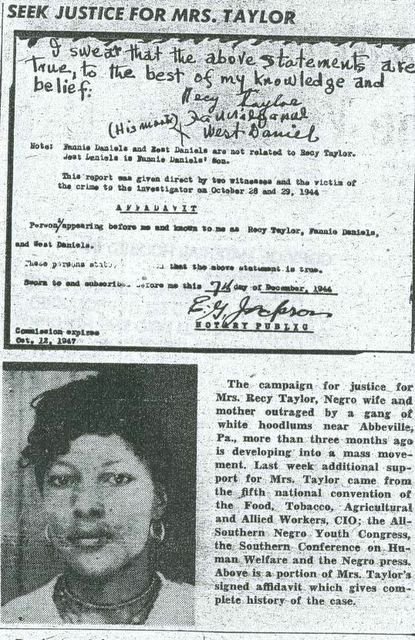
October The Chicago Defender publish front page article with the headline entitled "Victim of White Alabama Rapists".
Little works at Coral Gables in Lansing and as a busboy at the city's Mayfair Ballroom.
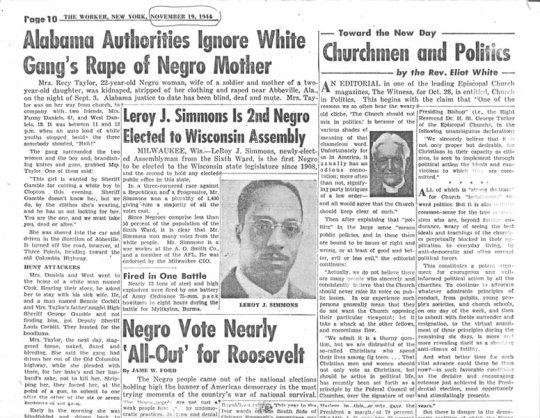
November Little is sentenced to 4 months in jail and 1 year probation for stealing a fur coat from his sister Ella's house which he had pawned for $5, the coat belonged to Ella's sister Grace.
Parks, the secretary of the NAACP’s Montgomery branch travels to Abbeville to investigate Taylor’s case.
Parks works with E. D. Nixon president of the Montgomery branch of the NAACP and leader of the Montgomery branch of Randolph’s Black Sleeping Car Porter’s, Rufas A. Lewis, funeral home director and Alabama State football coach E.G. Jackson, editor of the Alabama Tribune.
Parks founds the Committee for Equal Justice for the Rights of Mrs Recy Taylor.
Members of the Alabama divisions of Montgomery and Birmingham NAACP, editors and reporters from the Alabama Tribune and Birmingham World as well as members of the Southern Negro Youth Congress work to publicize Taylor’s case at the Negro Masonic Temple in Birmingham, Alabama.
Others who joined the committee include Du Bois; Mary Church Terrell, a suffragist and founder of the National Association of Colored Women; Charlotte Hawkins Brown, a popular clubwoman and respected educator; Ira De A. Reid, a sociologist and assistant director of the new formed Southern Regional Council; John Sengstacke, the publisher of the Chicago Defender; Countee Cullen and Langston Hughes of Harlem Renaissance fame; Lillian Smith, author of the controversial interracial love story Strange Fruit; and Broadway impresario Oscar Hammerstein II and Henrietta Buckmaster.
Sheriff Gamble when interviewed as part of the the ongoing investigation launched by claims that Taylor is nothing but a whore around Abbeville and that she had been “treated for some time by the Health Officer of Henry County for Venereal disease.”
On a later occasion some other white men testify of Taylor as being an “upstanding, respectable woman who abided by the town’s racial and sexual mores”.
4 of the 7 men "admitted to having intercourse with Taylor, but argued that she was essentially a prostitute and willing participant." whilst some of the other 3 men, including Herbert Lovett, completely deny knowing anything about the attack.
Joe Culpepper admits that he and the other men and his story of the version of events are consistent with that given by Taylor.
1945 February 13
252 MEMBERS OF ALABAMA CHAPTER SOUTHERN CONFERENCE FOR HUMAN WELFARE URGE YOU TO USE YOUR HIGH OFFICE TO INSURE A FAIR TRAIL AND INDICTMENT IN THE RECY TAYLOR CASE WHICH COMES BEFORE GRAND JURY IN IMMEDIATE FUTURE
PAULINE DOBBS SECRETARY
GOV CHAUNCEY SPARKS
STATE CAPITOL
WE APPEAL TO YOU TO USE YOUR HIGH OFFICE IN THE APPLICATION OF EQUAL JUSTICE AND A FAIR TRAIL FOR MRS RECY TAYLOR OF ABBEVILLE ALA WHO WAS ATTACKED ON SEPT 3 1944.
HOMER WILSON EXECUTIVE BOARD MEMBER INTERNATIONAL UNION BOARD MINE MILL AND SMELTER WORKERS.
February 14 The attorney general presents Taylors case but fails to convince the jury of Henry County that there is enough evidence to indict the 7 men.
February 19 received
March 17 Little is arrested for robbing Douglas Haynes at gunpoint and transferred to the Detroit Police Department.
April 25-June Du Bois along with other NAACP delegates attend San Francisco Conference where the United Nations is created, Du Bois drafts proposal.
April 28 Mussolini is hanged.
April 30 Hitler commits suicide.
June 30
September 26
2011 The book At the Dark End of the Street: Black Women, Rape, and Resistance a New History of the Civil Rights Movement from Rosa Parks to the Rise of Black Power by Danielle L. McGuire is published.
2011 April 21 Alabama Legislature adopt a joint resolution stating: BE IT RESOLVED BY THE LEGISLATURE OF ALABAMA, BOTH HOUSES THEREOF CONCURRING, That we acknowledge the lack of prosecution for crimes committed against Recy Taylor by the government of the State of Alabama, that we declare such failure to act was, and is, morally abhorrent and repugnant, and that we do hereby express profound regret for the role played by the government of the State of Alabama in failing to prosecute the crimes.
BE IT FURTHER RESOLVED, That we express our deepest sympathies and solemn regrets to Recy Taylor and her family and friends.
Taylor receives apologies on her visit Rock Hill Holiness Church.
2011 Taylor visits the White House and attends a forum on Rosa Parks at the National Press Club.
2017 The Rape of Recy Taylor documentary by Nancy Buirski premiers at the Venice Biennale and the New York Film Festival.
2017 December 28 Taylor passes away in her sleep at a nursing home in Abbeville and is buried next to her daughters grave at New Mount Zion Freewill Baptist Church.
2018 January 7 Oprah Winfrey accepts the Golden Globe Cecil B. DeMille Award and says of Taylor "They threatened to kill her if she ever told anyone... Recy Taylor died 10 days ago... for too long, women have not been heard or believed if they deared speak their truth to the power of those men... And I just hope... I just hope Recy Taylor died knowing that her truth... goes marching on.
2018 January 31 Members of the Congressional Black Caucus invite Taylors family, including her daughter, Mary Joyce Owens, to attend a speech at State of Union the Democratic Caucus wear red "Recy" pins.
October 15-21 Du Bois attends the Fifth Pan African Congress held at Chorlton Hall, Chorlton on Medrock, Canvendish Street, Manchester, England and former Treasurer and Honorable Secretary of the International African Friends of Ethiopia; Amy Jacques Garvey and Jomo Kenyatta, as well as Kwame Nkrumah are among the congress's other attendees.
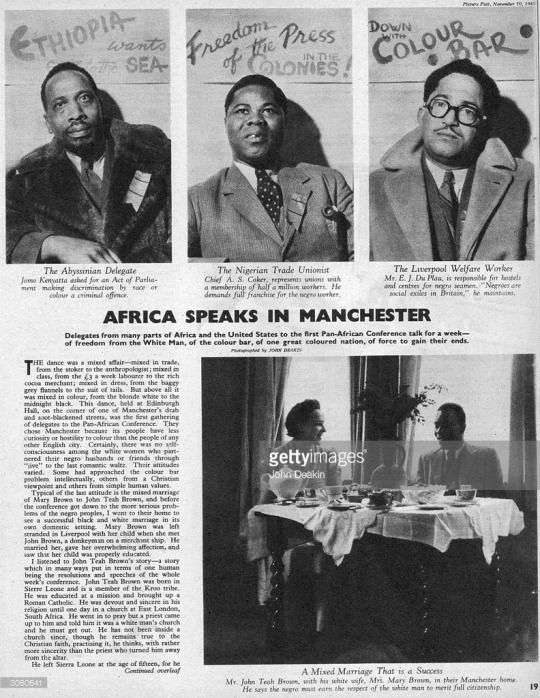
Little returns to Boston.
December 14 Little, his friend Shorty Jarvis from Lansing who he had befriended in, Francis E. "Sonny" Brown, Bea, 1 of the women that Little had been seeing, her younger sister and another Armenian woman burgle a house in the Brookline, Boston of $2, 400 worth of fur coats, silverware, jewelry and other items.
December 15 Little and his gang burgle another house in Brookline sealing several rugs worth $400 as well as liquor, jewelry, lenin.
December 16 Little and the gang sell their stolen goods in New York City.
December 17 Little burgle another house this time in Newton, Massachusetts of Jewelry, a watch, a vacuum cleaner, bed Lenin, silver candle sticks, earrings, a gold pendant and chain.
Sultanin Mumusa, a Bagirwa (Priestess) of the Nyabingi cult or movement in Rwanda/Tanzania, dies in Mbarara, Uganda.
Rwanda Uganda.
1946 January Little is arrested picking up a stolen $1000 watch at the repair shop, he is also carrying a loaded 32 calibre on him.
January 15 Little is charged with illegal possession of a firearm at Roxbury Court.
January 16 Little is charged with larceny and breaking and entering.
February Little and Jarvis begin serving an 8 to 10 year sentence at Charlestown state prison in Boston Massachusett.
Itote joins the Kenya African Union and Forty Group.
1947 January Little is transferred to the Massachusetts Reformatory at Concord.
Randolph and Grant Reynolds form Committee Against Jim Crow in Military Service/League for Non Violent civil disobedience.
George Watson aka Ras Boanerges or Bongo Watto founds Youth Black Faith in his yard at 9th Street, Trench Town, Jamaica.
The name Boanerges comes from the gospel according to Mark chapter 3 verse 17 which reads And James the son of Zebedee, and John the brother of James; and he surnamed them Boanerges, which is, The sons of thunder:
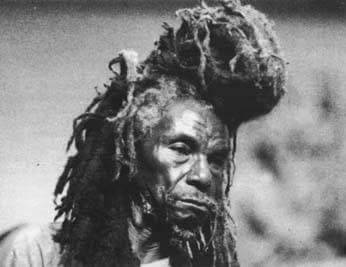
1948 January 8 Howell is sentenced to 6 months in prison.
January 23-25 Friday, Saturday and Sunday Du Bois chairs the National Conference on American Policy in China and the Far East at 111 West 42nd Street, New York.
February 25 King is assistant Pastor at Ebenezer Baptist church in Atlanta.
March Little is transferred to the Norfolk Prison Colony.
The Emperor grants 500 acres (2.0 km2) of his land in Shashamane 225 km (150 miles) south of Addis Ababa to people of African descent in the West Indies and America's who would like to resettle on the continent.
July 16 President Harry S.Truman ends racial segregation in the armed forces with Executive Order 9981.
King begins his studies at Crozer Theological Seminary in Chester, Pennsylvania.
Du Bois resigns from the NAACP for the second time.
King graduates from Morehouse with B.A. in Sociology.
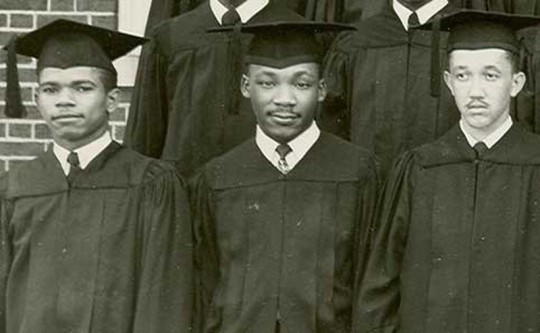
Little's brother Philbert writes to him in prison telling him that he and other members of the family have become members of the Nation of Islam.
Little's brother Reginald writes to him in prison telling him to give up pork and to stop smoking cigarettes, he also visits him in prison tells him about the beliefs of the Nation of Islam. Little later writes to the leader of the Nation of Islam, Elijah Muhammad.
Seay becomes the first woman British Honduras Justice of Peace.
1949 Du Bois attends the Scientific and Cultural Conference for World Peace at the Waldorf Astoria hotel in New York.

L- r: John Howard Lawson; Alexander A. Fadeev; W. E. B. Du Bois; Dmitri Shostakovich; Bishop Arthur W. Moulton; William O. Stapledon, and Kiri Hrovek.
Du Bois also speaks at the World Congress of Parisians of Peace in Paris
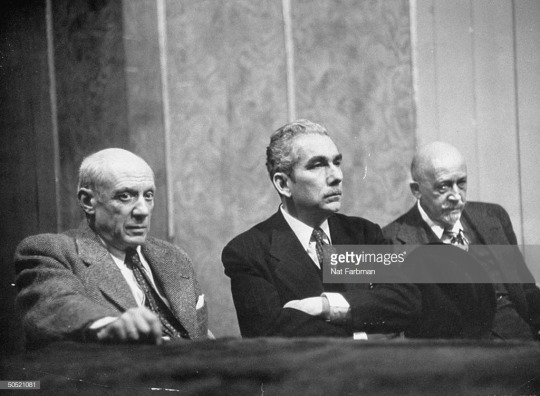
Pablo Picasso, Juan Marinello, Donald Henderson, Mineola Zugeisoll, Roclervell Kud are also among other delegates that attend the Congress.
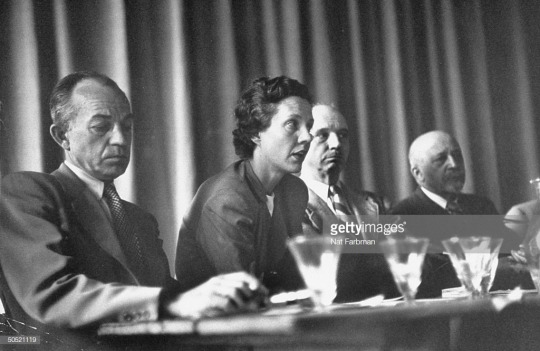
Du Bois then the All Soviet Peace Conference in Moscow, Russia as the delegate for the National Council of Arts, Sciences and Professionsm.
The FBI reopen their file on Du bois on suspicion of him being a communist.
Julian becomes a licensed arms dealer.
1950 Itote takes the Mau Mau oath.
Dedan Kimathi takes the Mau Mau oath and joins the Ol Kalou branch of the Kenya African Union and also becomes the branch's secretary.
Randolph, Roy Wilkins, Executive Secretary of the NAACP, and, Arnold Aronson, of the National Jewish Community Relations Advisory Council found the Leadership Conference on Civil Rights (LCCR).
April 21 Springfield Morning Union.
local criminals in prison claim Moslem Faith New Grow Beards won't Eat Pork Demand East Facing Cells to Facilitate 'Prayer to Allah'.
April The Peace Information Center is founded, which includes in its aims the purpose of gaining publicity for the Stockholm Peace Appeal and signatures for a petition against atomic warfare which 3, 000, 000 American people sign. Du Bois becomes chairman of the PIC and also runs for Senator New York on the American Labor Party ticket.
August 11 The Justice Department serve a notice on the PIC requiring them to register as an agent of a foreign principal under the terms of the Foreign Agents Registration Act.
The FBI open a file on Little after he writes a letter to President Truman in which he states his opposition to the Korean War and also confirms for the president himself that he is a Communist. Little also begins to replace his surname with the letter X as a member of the NOI, symbolising his African American descent.
1951 January 18 Howell sentenced to 2 year in prison for Ganja.
Ex Cult Leader Held On Ganja Charge
Leonard Howell one time Ras Tafari chief at Pinnacle St. Catherine and two other men were arrested yesterday by first class constable A. E. Tilloch of Browns Town Police Station charged jointly with having Ganja.
Howell, Levi Ward and Edgar Reed were held in a raid 8 Windward Road on premises.
Hundreds of curious persons lined a stretch of the road for hours after the police left with a large quantity of stuff said to be Ganja.
Defendants who are in Sutton Street jail will appear before the Kingston Resident Magistrate's court today.
May 6-8 King graduates from Crozer Theological Seminary in Chester, Pennsylvania with a B. IV (bachelor of divinity) degree.
August Count Ossie's camp at Salt lane in Kingston Coronation market is destroyed by hurricane Charlie.
September 13 King begins graduate studies in systematic theology at Boston University.
Kimathi joins the Forty Group of the Kikuyu Central Association and becomes the secretary of this organization's branch too.
Du Bois's attorney informs judge that Albert Einstein has agreed, if need be, to stand as a character witness for Du Bois, the judge dismisses the case but Du Bois passport is confiscated for 8 years.
Seay becomes the only woman founder of the National Party and is also appointed to the City Council.
1952 Seay co founds the British Honduras Federation of Women which begins a project to establish an affordable daycare centre to assist employed mothers with their children.
June 4 X requests parole.
August 4 Massachusetts Supervisor of parole informs the parole board that a full time job at the Cut Role department stores in Detroit has been secured for him on his behalf.
August 7 X is released.
X and his siblings secure their Mother Louise release from Kalamazoo State Hospital, X also visits Muhammad in Chicago.
1953 January X works at the new Ford assembly plant in Wayne as a final assembler on the production line and becomes a member of the United Auto Workers Local 900.
Kimathi forms the Kenya Defence Council.
June X becomes assistant minister of the Nations Temple Number 1 in Detroit amd establishes Temple number 11 in Boston later on in the year.
June 18 King marries Loretta Scott on the lawn of her parents house in Heiberger, Alabama.

November Saint Lucia born Hulan E. Jack becomes the first African American Borough President of Manhattan, Jack was also the treasurer of the Committee for Equal Justice for the Rights of Mrs Recy Taylor.
1954 January General China Waruhui Itote is captured by British troops.
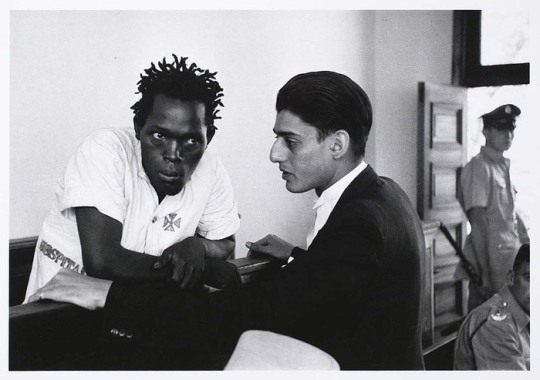
March X expands Temple Number 12 in Philadelphia.
April Howell arrested for illegal practice of medicine.
May X leads and expands Temple Number 7 in Harlem.
May 17 Supreme court in Brian V Education rules segregation in public schools unconstitutional.
May 25 The Emperor arrives in New York aboard the liner United States.
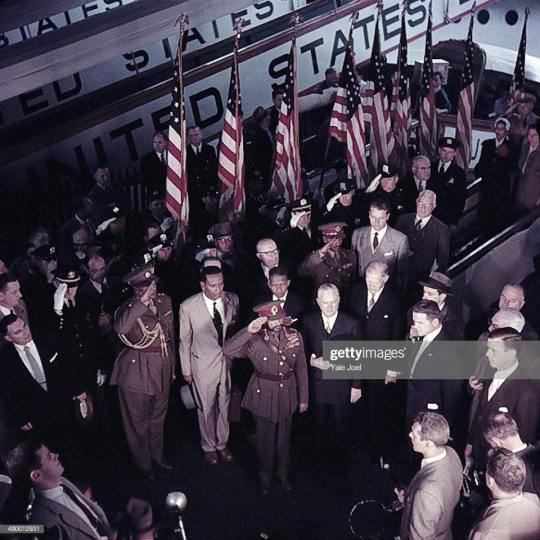
The Emperor leaves La Guardia Airport for Washington in the presidential plane the Columbine.
May 27 Thursday.
The Emperor is arrives in Washington where he is received by Vice President Nixon. Herald Tribune, page 3.

The Emperor District Columbia Building and also visits the White House.
Selassie Sees Capital Sights
WASHINGTON (UP) Emperor Haile Selassie of Ethiopia, a frail little man with an indomitable will, made a sight seeing round of the capital with the genial good wishes of President and Mrs. Eisenhower.
His imperial majesty started off on a day taking him to Mt. Vernon and the Tomb of the Unknown Soldier and dinner tonight.
Shortly after breakfast, Mr. And Mrs. Eisenhower walked out on To the White House north portico, warmly shook hands with their royal visitor and saw him into his limousine. He was an overnight guest at the White House.
The President turned to the Emperor’s son and granddaughter and said, “I hope you enjoy your entire trip. It was very nice having you here.”
A servant placed in one of the cars of the emperor’s motorcade a huge box, obviously a gift to Haile Selassie from the President.
Haile Selassie is making his first visit to the United States. And yet to most Americans his erect 5-foot 3-inch frame is almost as familiar as Churchill’s cigar. THE HOLLAND, MICHIGAN, EVENING SENTINEL, page 7. RECORD-EAGLE, TRAVERSE CITY, MICHIGAN, page 5.
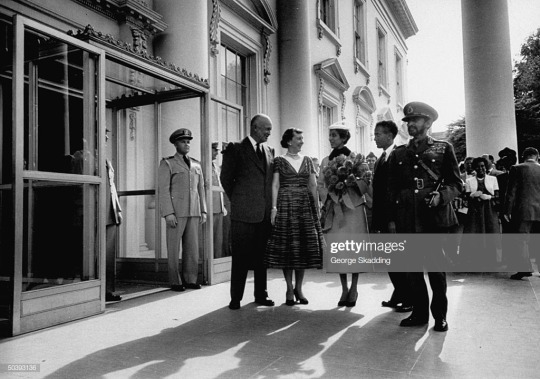
May 26 The Emperor visits Blair House.
1954 May 27 The biggest Ganja raid as of that time takes place at Pinnacle £3, 000 is seized. Howells son Monty in the interview on Wu World radio with Bob Marley’s granddaughter Donisha Prendergast said that a lot more than £3, 000 was taken from his Dads house and from the community thousands and thousands were taken. The police unearth the biggest store of Ganja ever to be found one place at a time. It is understood that whilst some men were digging out bags loaded with the “weed” others were pulling from the roof of a bags made out of old trousers. They were laden with 5 notes, notes, and other local currency notes and coins. With one woman the police find another had over 300 and several had other large sums, all of which the police took over. The money belongs to some of the 140 prisoners who have been charge with Ganja possession and with having fire arms illegally. It will be returned to them as soon as the cases are settled. Star newspaper. Monty and his brother Bill were also arrested in the raid and charges are brought against them for being in unlawful possession of a Bulova watch and a Rolex watch. The police send a note to Howell telling him that if he doesn't come up with x amount of money that his sons will be charged for a lb of Ganja each. Howell pays the money and is able to retain a receipt from the place he bought the watches from, the charges against his sons are withdrawn and his sons are also discharged. June 12 No case against Howell’s sons The charge was withdrawn yesterday in the case against Martinal and Silbert Howell, teenage sons of Leonard Howell, one time self styled “king of Pinnacle. They were held during the raid which the police made at Pinnacle property on the morning of May 22, and charged with unlawful possession of watches and a cloak. Mr. H. E. Rickards, solicitor of Dayes and Rickards, informed His Honour Mr H. P. Allea in the St. Catherine R. M. Court at Spanish Town that he had produced receipts to the police which showed that the two accused were in legitimate custody of the goods. They lived about a mile away from Pinnacle settlement in the house which used to be occupied by Howell. They were in no way associated with the settlement. Mr. Cliff Grant Clark of the Courts, said the case with withdrawn. The defendants were discharged.
May 28 Friday The Emperor speaks to 12, 000 at Howard University in Washington D.C. and receives the Honorary Degree of Doctor of Law.
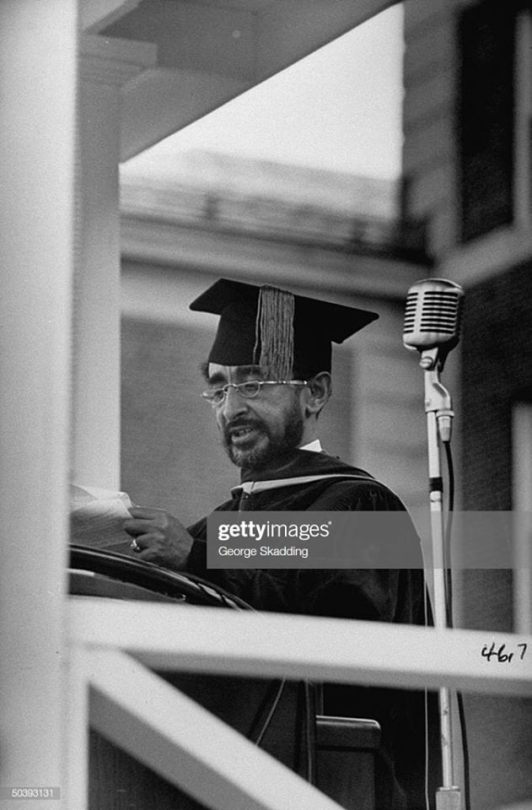
May 30 Sunday
Harlem Noisily Greets Selassie
NEW YORK, May 30 Emperor Haile Selassie of Ethiopia paid his first visit to Harlem today and got a warm, noisy welcome from some 200, 000 persons.
Residents of the area, which houses much of the city’s Negro population, lined the streets by the thousands and cheered as the slight, dark-skinned monarch drove by in a closed limousine.
He was escorted to the podium of the Abyssinian Baptist Church by Hulan Jack, Negro borough president of Manhattan, and the Rev. Adam Clayton Powell, Negro pastor of the church who is also a Democratic member of the House of Representatives.
Church is filled
The church applauded loudest when Powell told the Emperor: We honor you because you are the symbol around which we place all out hopes, dreams and prayers that one day the entire continent of Africa shall be as free as the country of Ethiopia.”
Emperor Selassie told the audience its “warm welcome has overwhelmed me and I thank you from the bottom of my heart.”
The Emperor presented to the church a gold processional cross made in Ethiopia, and was given an oil portrait of himself by Ivan Tate, Negro artist.

The Emperor with Jack and Powell.
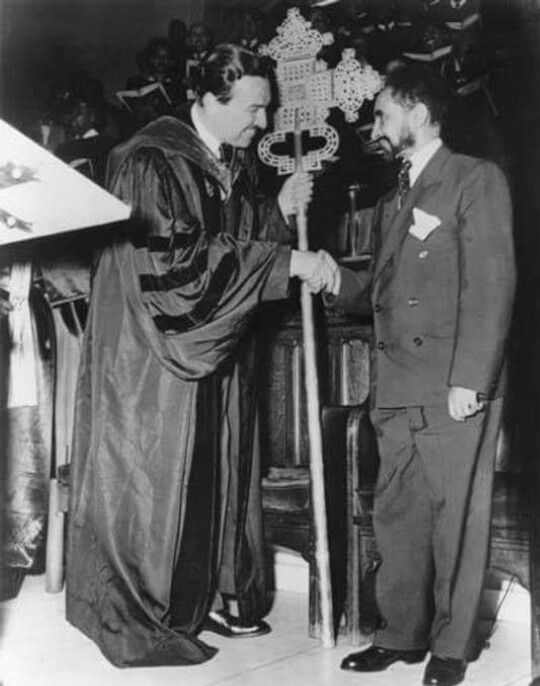
May 31 The Emperor attends the Yankee Stadium to watch New York play Washington in the first game of a doubleheader.
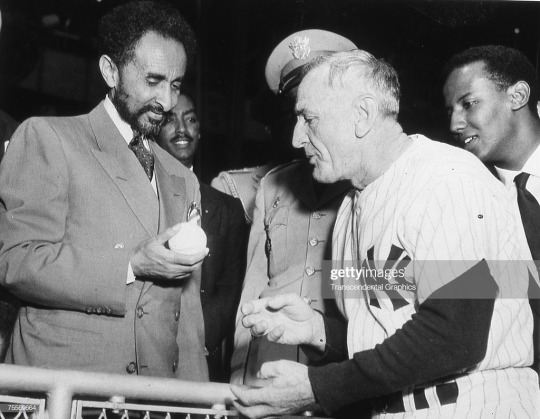
The Emperor is presented an autographed baseball by Casey Stengel, Manager of the New York Yankee.

June 9 The Emperor meets Mayor Joseph E. Dillon and his wife in Saint Paul, Minnesota.

June 10 The Emperor attends a ceremony, at Wold Chamberlain airport in Hennepin County, Minnesota.
June 11 The Emperor arrives at Seattle airport in Washington.
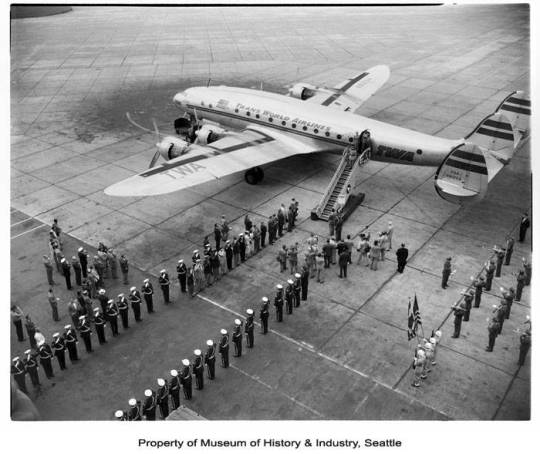
June 12 The Daily Gleaner.
11 sentenced to prison as Pinnacle trail opens
‘Extremely large’ quantity of ganja in Court
SENTENCES ranging from six months to two years imprisonment at hard labour were passed today by His Honour Mr. H. P. Allen in the Spanish Town R.M. Court as the trail of the Pinnacle case opened.
Eleven accused perswons sentenced today were convicted on charges of cultivating ganja and of having ganja in their possession.
One hundred and forty persons were arrested by the police in a raid on Pinnacle property, a few miles from Spanish Town, early Saturday morning on May 23.
The exhibits of what was certified as ganja were brought to the Court in police station wagons in all manner of containers boxes, barrels, baskets, crocus bags, grips, bales. There were also exhibits of ganja plants in court.
10 day trail
The trail which will resume on Monday at 9 a.m., is expected to last from a week to ten days.
Mr. Cliff Grant, Clerk of the courts, is prosecuting while Mr. H. E. Rickards is representing all the accused.
Acting Deputy Supt. J. N. Ricketts and Sub-Inspector George Eubanks were in attendance on the court.
Detective Sergt. Jez Marston, who was brought from Mandeville to take part in the raid, gave evidence today in all the cases heard: It was an account of his illness caused by a motor cycle accident that the trail was set back from Monday until yesterday.
There was only one incident in the smooth running of the trail. An accused who gave his name as Alfred Bennett collapsed while in the dock. He revived shortly after and was offered a chair.
He was being tried in the first case of the day along with James Bennett and Adina Manning. They were accused of cultivating ganja and having ganja.
Detective acting Corporal Gerald Nembhard told of accompanying Detective Sergeant Marston and acting Corporal Frank Harrison to Pinnacle at about 4 p.m. on the afternoon of May 23. They went to a cultivation surrounding two huts and saw the three accused weeding the field.
Warrant read
After a warrant was read, none of the accused said anything. A search was started and ganja plans numbering about 5, 000 were found in a 3 acre plot.
He arrested all three on charges of cultivating ganja and having ganja in their possession.
Cross examined by Mr. Rickards witness admitted that he did not know who was James Bennnettt or who was Alfred Bennnett.
Dectective Sergeant Marston gave evidence and under cross-examination pointed out James Bennett. Mr Rickards submitted that the accused was not James Bennett but Alfred Bennett.
Acting Corporal Frank Harrison also gave evidence. James Bennett in his defence said his name was not Alfred Bennett. He lived at Thompson Pen and had gone up to Pinnacle at around 2 p.m. on the day of the raid to visit his cousin Alfred, who was ill. He knew nothing about ganja nor had he ever planted it.
The other two accused in their defence denied that they were cultivating ganja or had ganja when they were accosted by the police.
The Magistrate found them guilty.
The police said the ganja seized on that occasion weighed 80lbs.
“It is a serious matter” said the Magistrate “and the quantity of ganja in this case is extremely large.”
James Bennett and Alfred Bennett were sentenced to twelve months on each of the two counts, sentences to run consecutively, Adina Manning was sentenced to twelve months for cultivating ganja and 6 months for having ganja in her possession, sentences to run consecutively.
Other policemen who took part in the raid and who also gave evidence were Corporal Albert Ellis, Constable Rudolph Ellis Acting Corporal Uley Delahaye, Constable Quintin Crawford and Constable Simeon Powell.
1000 lbs. Ganja
Caleb McPherson, who pleased guilty to having 100 lbs, of ganja in his possession was sentenced to 12 months imprisonment at hard labour.
He claimed that at the time of his arrest he had £18, which was taken away. Mr. Rickards promised to take up the matter.
Pircell Fairweather was acquitted on a charge of cultivating ganja. He was sentenced to 9 months imprisonment for having ganja in his possession.
Alexander Johnson found guilty of having 3 lbs. Of ganja in his possession was sentenced to 12 months hard labour.
Gustavus Robinson pleaded guilty to having 110 lbs of ganja. The weed was found in two boxes and a crocus bag in his room on the morning of the raid. He had one previous conviction for having ganja. Robinson was sentenced to two years at hard labour.
Henry Dawkins and Rebecca Murray were both convicted for having ganja. Dawkins, who pleaded guilty to being in possession of a box with 7 lbs. Of ganja, found in his room was sentenced to 12 months at hard labour.
The box
Mr. Rickards had submitted that Murray should not be presumed to have the ganja in her possession merely because she lived with Dawkins. Dawkins had admitted that the box was in his possession and had afterwards stated from the witness box that Murray knew nothing about the contents of the box. Mr. Rickards criticised the nature of the of the evidence given by police witnesses.
The Magistrate however, held that she was guilty of being in possession of ganja.
George Brown and Lillian Goode, who also said they lived together in a hut at Pinnacle, were both sentenced to 12 months at hard labour for having over 100 lbs. Of ganja in their possession. Mr. Rickards commented on the conflicting evidence which he said was given by the police in that case.
They gave verbal notice of appeal and were offered bail in the sum of £100 each.
Furthur hearing was adjourned at this point.
No case against Howell’s sons
The charge was withdrawn yesterday in the case against Martinal and Silbert Howell, teenage sons of Leonard Howell, one time self styled “king of Pinnacle.
They were held during the raid which the police made at Pinnacle property on the morning of May 22, and charged with unlawful possession of watches and a cloak.
Mr. H. E. Rickards, solicitor of Dayes and Rickards, informed His Honour Mr H. P. Allea in the St. Catherine R. M. Court at Spanish Town that he had produced receipts to the police which showed that the two accused were in legitimate custody of the goods. They lived about a mile away from Pinnacle settlement in the house which used to be occupied by Howell. They were in no way associated with the settlement.
Mr. Cliff Grant Clark of the Courts, said the case with withdrawn. The defendants were discharged.
June 14 Bay Area Gives Haile Selassie Warm Welcome
Haile Selassie I, as indefatigable a tourist as he is the ruler of 19, 000, 000 devoted Ethiopian subjects, plunged into a backbreaking of official receptions, visits and sight seeing today.
Up at 5 a.m., as usual, for his morning devotions, the frail little man with the imposing titles of Lion of Judah and King of Kings enjoyed a typical American breakfast of grapefruit juice, bacon and eggs, toast with jam and tea in his gold plated suit at San Francisco's Mark Hopkins Hotel.
Then properly briefed by members of his entourage of 19, he began his official day with a press conference.
Immediately afterwards, he and his party drove a round about route to Fort Mikey Veterans Hospital to visit American and Ethiopian soldiers recovering from wounds suffered in the Korean war.
GREETED BY 1, 500
Another leisurely drive through Golden Gate Park was to bring the 62 year old ruler of the world's first Christian nation back to the San Francisco City Hall where he was to be received officially by Mayor Elmer E. Robinson.
From the City Hall, the Emperor was to motor down Market St. to the Palace Hotel to attend a luncheon in his honor sponsored by the Common Wealth Club, the Down Town Association and the Chamber in Commerce.
After a brief break during the mid afternoon hours, he was to attend a 5 p.m. reception at the Mark Hopkins given by the World Affairs Council of Northern California.
The last event on today's schedule was an 8 p.m. dinner at the Press and Union League Club.
OFFICIAL RECEPTION A crowd of about 1, 500 was on hand last night as the Emperor, smiling and gracious, stepped down from his Pullman at Oakland.
After a greeting by Mayor Clifford Rishell and Mrs. Rishell, he and his party of 19
(Continued Page B, Col.3)
June 18 The Emperor visits Ohlahoma Agricultural and Mechanical College of Stillwater.
June X is appointed Chief Minister at Temple number 7 in Harlem by Mohammad.
King becomes pastor at Dextor Avenue Baptist church in Montgomery, Alabama.
October 14 The Emperor and his son, the Duke of Harar arrive at Victoria station in London where they are recieved by the Queen Elizabeth, the Duke of Edinburgh, the Queen Mother, Princess Margaret, Princess Royal, and the Duchess of Gloucester.

The Emperor and his son are then driven by carriage in procession by way of White Hall and Trafalgar Square to Buckingham.

October 18 The Emperor receives the Freedom of the City of Bath from the Mayor Cllr Gallop.
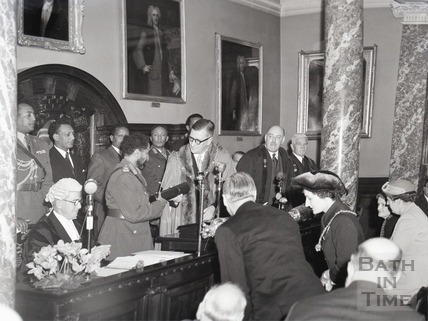
November 27 The Emperor arrives on the train in Switzerland.
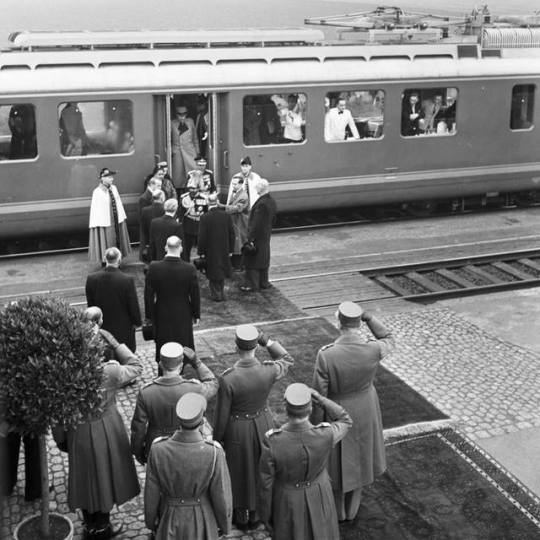

The Emperor is taken to the Castle of Jegenstorf by carriage.
1955 March 2 15 year old Claudette Colvin, a student of Montgomery Booker T Washington High School and a member of the NAACP Youth Council, on the way back home from school refuses to give up her bus seat to a white on a Montgomery bus.
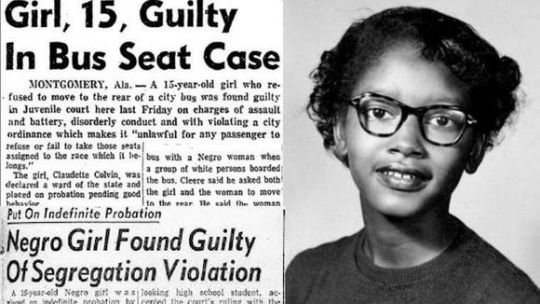
A white woman is left standing so the bus driver tells Colvin and three other black women to move, the three others move but Colvin remains seated.
Next another black woman by the name of Ruth Hamilton who is visibly pregnant sits next to Colvin, the driver tells them to move, Hamilton says that she isn't going to move, that she has paid her fare and doesn't feel like standing, Colvin also tells the driver that she isn't going to move.
April Du Bois is denied travel for the Bandung Conference in Indonesia by the U.S. government.
May 1 X holds a NOI meeting in Lansing.
May 6 Colvins case is brought to Montgomery Circuit Court and the charges brought against her of disturbing the peace and violating segregation laws are dropped.
June 5 King graduates with Ph.D for doctoral studies in systematic Theology at Boston University.
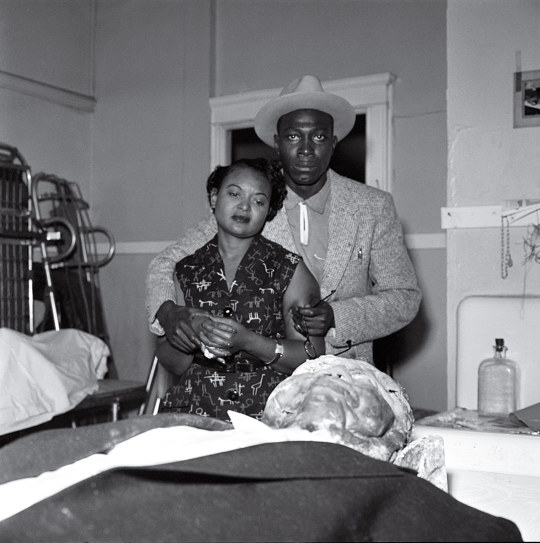
August 28 Sunday 14 year old Emmett Till from Chicago is murdered in Mississippi.
Between the hours of 2:00 and 3:30 in the morning Roy and his half brother Milam, both armed, drive to Emmett’s grand uncles house in Money, Mississippi.
The men arrive at Till's uncles house and call at the door, Till’s Uncle Mose Wright ask's who it is, Bryan replies telling Wright that it is him and that he wants to talk with Wright and the boy.
Wright opens the door to Milam with a pistol and a flashlight in his hand asks Wright if he has 2 boys there from Chicago, Wright says that he has and say he wants the boy that done all that talk.
The men go to the 2nd room, Emmett’s cousin Wheeler’s room where Wheeler and Maurice are in bed, the men then go to the 3rd room where Emmett is in the bed with his cousin Simeon Wright, Wright hears a noise in the bedroom and see’s the men, they tell him to lay back down and go to sleep, he keeps his eye’s open and see’s that they are going to take Emmett he said that he didn’t know where they were going to take Emmett and thought that maybe they were going to take him back home.
They wake up Emmett and ask him questions unpleased with the way he is responding they hurry him out of the house.
Wright’s wife offers them money but Milam refuses and says that he is going to take Emmett up the road, give him a beating and let him go.
Wrights says when the men took Emmett to the car there was someone else present who they asked if Emmett was the boy to which they replied yes, the men then proceed to drive towards money.
The men drive Emmett to Sheridan’s plantation in Drew where they beat him in Milam's brother's barn.
Willie Reed saw the green 1955 Chevrolet and 5 people who he says he thinks to have been Levi 'Too Tight' Collins, Henry Lee Loggins, Emmett, Bryant and Milam.
Collins and Loggins were employed by Milam's brother Leslie.
Reed hears the beating and crying.
Reed tells a neighbour and walks with her to a water well near the barn and turns the water on when he see’s Milam who is wearing a green shirt and khaki trousers and has a 45 on his side.
Milam asks Reed if he’d heard anything, Reed tells him that he hadnt.
Wright knocks on Emmett’s friend, John Crawford’s door and tells him what has happened, they drive to money in Crawford's vehicle and back trying to find Emmett.
The men shoot Emmett above the right ear, wrap a 75 pound metal fan around his neck with barbed wire to weigh his body and dispose of him in the Tallahatchie River.
August 31 A boy fishing in the Tallachatchie a naked body that of a young male and informs the Tallachatchie County Sheriff Clarence Strider who along with deputies goes on the river in his sons boat and.

Sheriff goes to Wright and tells him that they have found a body at and wants him to identify it, Crawford drives Wright, Crawford said that he could smell the body from 5 or 6ft away.
According to Crawford, Wright said that his tongue had been cut and pushed back in his mouth and his private had been cut off although Emmett's mother.
Both of Till's wrists were also broken.
Jones calls the Leflore county sheriff as well as his mother in Chicago.
9:30 Jones Mother calls Emmett’s Mother Mamie Till Bradley, Bradley calls her Mother and goes over to her house.
Wright and his wife Elizabeth drive to Summer Elizabeth's brother contacts to Sheriff.

August 24 4 days earlier Emmett had gone to to buy some candy Till’s cousin Curtis Jones leaves Till in the store to join a game of checkers across the street. Emmett had allegedly touched 21 year old Carolyn Bryant's hand and grabbed her waist at the Grocery and Meat Market she and her Husband Roy ran.
Later, at the trail Bryant says that Emmett grabbed her hand whilst she was stocking candy and said, "How about a date, baby?" She said that after she freed herself from his grasp, he followed her to the cash register and grabbed her waist and said "Whats the matter baby, can't you take it?" Bryant said she freed herself and Emmett said "You needn't be afraid of me, baby" and said "I've been with white women before."
Roy was away and Bryant’s sister in law was watching children.
Simeon said that he went into the store not long after Emmett was left alone with Bryant Emmett paid for his items and they left the store together.
2006 The FBI note that a second anonymous source, confirmed to have been in the store at the same time as Till and Simeon given the same account.
Bradley later said that Emmett’ speech impediment, under stress would not have allowed him to get these things out.
Horace Bryant in an interview with Timothy Tyson in 2008 said that the allegations made were false.
Till had also whistled at Bryant although he whistled his polio which gave him a stutter and made pronunciation’s, particularly with words with letter b sounds difficult.
After Emmett leaves the store, Bryant goes to her car to fetch her pistol and Emmett whistles, the other children are surprised and scared and when Emmett sees their reaction he is also scared the children begin to panic.
They get in the car and notice a car behind them, they thought that the car was after them, they accelerate, pull up get up of the car and run through the cotton field the car drives past.
A neighbour by the name of Ruth tells them that they are going to hear more about it.
After they pick cotton, older brother takes them to Greenwood
A child goes and tells those across the playing checkers across the street what has happened in the store and an older man who is playing with them tells the children to leave quickly.
September 3 Sheriff Clarence Strider who had previously positively identified Emmett's body now changes his mind and says that the body found probably isn't that of Emmett, that Emmett is probably still alive and that the body that was found had been planted there by T. R. M. Howard, founder of the Regional Council of Negro Leadership, himself from Mississippi and that Howard had also placed the ring on the body.
Till’s body is transported to Funeral Direct A. A. Rayner’s Funeral Home in Chicago for burial.
Bradley asks Rayner to open the casket, he had been instructed not to, Bradley asks Rayner if he has a hammer, for she will open the box herself if necessary, Rayner tells Bradley to go home and he will call her when he takes the body out of the box.
Rayner calls Bradley and she goes back to the funeral home, Bradley said that as she was approaching the home, that she had picked up the strong smell of the body from 3 blocks away, Bradley also said that all but 2 of Emmett’s teeth had been knocked out.
September 6 Emmett is given a public funeral service with an open casket held at the Roberts Temple Church of God in Christ and buried in Burr Oak Cemetery in Alsip, Illinois, tens of thousands view his body.
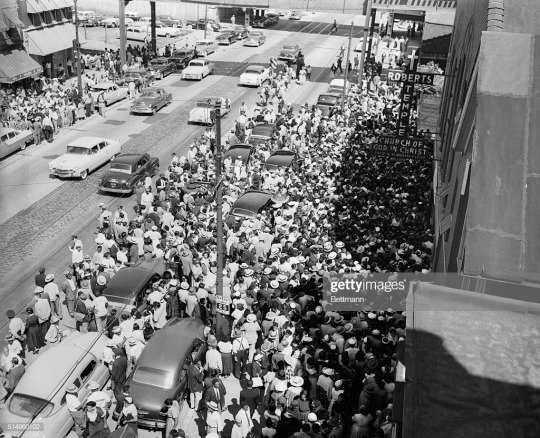

Jars are placed in stores to collect funds for Bryan and Milam.
September 18 A man by the name of Frank Young tells Howard that he knows 2 witnesses, Collins and Loggins but Sheriff Strider arranges for them put be put in protective custody at the Charleston, Mississippi jail.
During the trail Bradley, black congressman from Michigan Charles Diggs and several black reporters stay at Howard's house in Mound Bayow which is patrolled by his armed guards.
September 19 Roy and Milan are tried at the county courthouse in the town of Sumner, the western seat of Tallahatchie Country.
The courtroom's capacity of 280 is filled and the trail lasts for 5 days.
Mose is photographed by Ernest Withers as he points out Milam who he says he recognised as being 1 of the 2 men who came to his cabin, the only light in the house at the time was Milan's flashlight.
A reporter who covered the trail for the New Orleans Times Picayune says it was the most dramatic thing he saw in his career.
Bradley testifies saying that she had warned Emmett about Mississippi and that if he ever found himself in a situation that he should get on his knees and beg for forgiveness from the white people, the defense questions her identification of her son and a $400 life insurance policy that she had taken out for him accusing her of.
2 witnesses testify to having seen Collins and Loggins on Milam's brother's property and hearing someone being beaten and cries. Leflore County Sheriff George Smith, Howard and several reporters try to locate Collins and Loggins but Sheriff Strider had put them into protective custody at the Charleston, Mississippi jail the day before the beginning of the trail when 1 of the witnesses
Judge Curtis Swango allows Carolyn to testify but not in front of the jury, objecting that her testimony is irrelevant to Emmett's kidnapping and alleged murder.
Sheriff Strider testifies for the defense that Emmett is probably still alive and that the body found was white. A doctor from Greenwood on the stand says that the body is too decomposed to identify, and had been in the water too long to be Emmett.
One persecuting attorney says that what Emmett did was wrong but warranted a spanking not murder.
Gerald Chatham denounces the statements made by Sheriff and the doctor.
The defense states that that the prosecution's theory of events are improbable and also says that the jury's "forefathers would turn over in their graves" if they convicted Bryant and Milam as they would receive a life sentence or the the death penalty.
2005 The Department of Justice exhume the body and an autopsy conducted by the Cook county coroner positively identified Till using DNA from his relatives, making dental comparisons with photographs and.
Bradley said that when the jury retired to return with the verdict and she saw the black people who lined the walls and the backs of the room beginning to leave quietly she knew that they knew they were not going to get a guilty verdict, she tells her party that its time to go, Diggs insists "and miss the verdict", Bradley says that she already knew that the verdict was not guilty, Bradley and her party then leave.
The all white all male jury acquit the 2 men.
Howard also paid for Wright, Reed and another witness to relocated to Chicago.
November 3 The Emperor 25th Jubilee attends service at church and signs a revision of the 1931 constitution and promises more political liberties in parliament while continuing to keep all powers to himself.
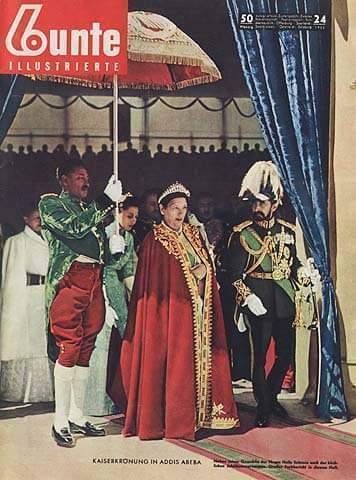
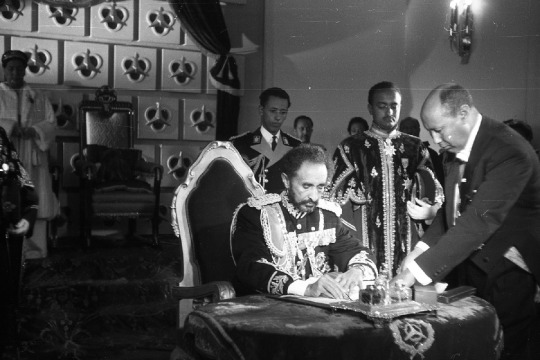
November 17 Kings first child, a daughter Yolanda Denise King is born.
November 27 Parks attends Dexter Avenue Baptist church where Howard speaks on Till's murder.
December 1 Thursday 18:00 Parks seated in the first row behind the white section of bus, along with four other African Americans is prompted to move further to the back of the bus but the section reserved for white fills up and 2 or 3 white passengers are left standing.
Parks refuses to give up her seat and is arrested.
Earlier on in the year Parks had completed a course in Race Relations at Highlander Folk school in Tennesse and had learn much about non violent civil disobedience tactics.
Parks said that thoughts of the treatment that her people were being subjected to understandably were going through her mind at that moment and in her 1992 interview with National Public Radio's Lynn Nearly also said that Till was also on her mind.
Parks is charged with violation of Chapter 6, section 11 of the segregation law and bailed by Edgar Nixon and her friend Clifford Durr.

Jo Anna Robinson and other members of the Women's Political Council print and begin to distribute 35, 000 leaflets informing the public of the boycott.
December 2 Friday 16-18 people meet at Mt. Zion AME Zion church including Parks, King and Abernathy.
December 5 Monday The Montgomery Advertiser publishes an article informing its readers of the boycott. African American cabs drivers charge the same fare as the bus.
Park is tried on charge of misorderly conduct and violating local ordinance fined $10 with court fee of $4.
King, at mass meeting held in Holt Street Baptist church is chosen by Ralph Abernathy and Rev. E.N. French as the President of the Montgomery Improvement Association to lead the Montgomery bus boycott decide that the boycott should continue.
December 8 Thursday Montgomery officials warn cab drives that anyone charging less than 45 cents will be fined.
The boycott lasts 385 days and ends Jim Crow on all public buses in Montgomery.
X establishes Temple Numbers 13 in Springfield, Massachusetts, 14 in Hartford, Connecticut and 15 in Atlanta, Georgia and also meets Betty Sanders after one of his lectures.
1956 January 30 Kings home is bombed.
February Fred Gray, attorney files federal court case Browder V Gayle (Aierelia V W. A. Gayle Mayor of Montgomery) is heard in the United States District Court, Colvin is 1 of 5 plaintiffs the others are Browder, Susie Mc Donald, Mary Louise Smith and Jeanetta Reese, all of who have been arrested earlier on in the year for refusing to give up their seats. Reese drops out of the case due to intimidation from.
February 21 King is indicted by the Montgomery County Grand Jury for alleged violation of a 1921 statute which outlaws boycotts against businesses.
March 19 Kings trail begins.
March 24 King is found guilty and fined $500 and $500 fees.
June 13 The district court in Browder V Gayle rules racial segregation on buses in the city of Montgomery and the state of Alabama as unconstitutional under the Equal Protection Clause of the Fourteenth Amendment of the U. S. Constitution.
October 21 Kimathi is shot and captured by fellow Kikuyu termed as askari meaning traitor.

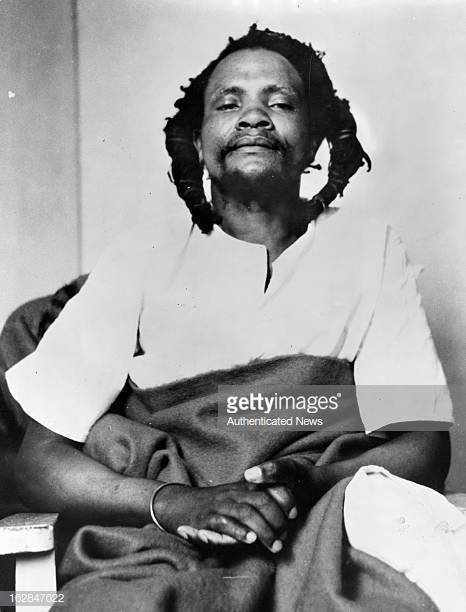
Betty Sanders joins the Nation of Islam also replacing her surname with the letter X.
November The state of Alabama appeals against the District Court's ruling at the United States Supreme Court who uphold the ruling.
December 20 The Supreme court issues order to Montgomery and state of Alabama to end bus segregation, the city passes an ordinance authorizing black bus passengers to sit virtually anywhere they choose on buses.
Roy and Milam agree between $3, 600 and $4, 000 to be interviewed by journalist William Bradford Huie for Look magazine about Till.
In the interview which is held at the law firm of the attorney's who had defended them, their attorney's ask the questions and the 2 men willingly admit to killing the boy.
2003 The Untold Story of Emmett Louis Till documentary by Keith Beauchamp is released and PBS also air an effort installment of American Experience titled The Murder of Emmett Till.
December 23 Kings home is attacked, someone fires a shotgun through the front door.
December 24 Christmas Eve, A black teenager, after coming of a bus is attacked by a group of white men.
December 28 2 buses are fired on by snipers, a pregnant woman is shot in both legs.
1957 January 10 Abernathy, Fred Shuttlesworth, Joesph Louver form the Southern Christian Leadership Conference.
5 black churches are bombed, Reverend Robert J Graetz's house is also bombed.
January 23 Willie Edwards is lynched by a group of Klansmen.
February 18th Kimathi is executed by hanging at Kamiti Maximum Security Prison and King appears on the front cover of Time magazine.
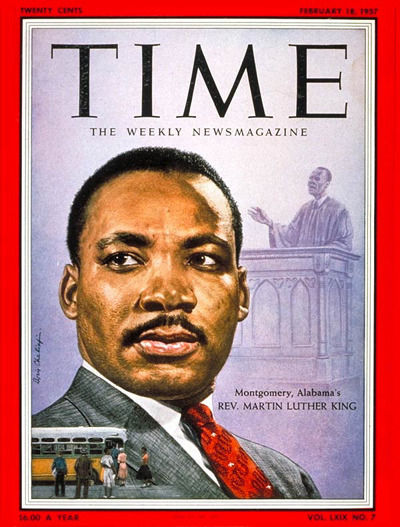
2007 February 18 On the 60th anniversary of Kimathi's execution, the official unveiling of the Kimathi bronze statue monument takes place in Nairobi with former Kenya Mau Mau freedom fighters Keiru Kioge, 84 and Thungu Githogo, 70 among those in attendance.
March 6 King attends independence celebrations in Ghana and also meet Kwame Nkrumah.
April 26 Frankee Lee Potts, Lypsie Tall and Hilton Johnson come across 2 police officers beating an African American man (Reese V. Poe) with their nightsticks and shout out This is New York not Alabama.
Johnson is beaten by 1 of the officers to the extent that he suffers brain contusions and subdural hemorrhaging.
The news reaches X who turns up at the 28th Precinct Station house with a small group of fellow Muslims asking to talk with Johnson, the police deny that Johnson is being held there but as the number of people at the station in support of Johnson grow to about 500, the police relent.
X sees that Johnson is taken to hospital in an ambulance, 100 of those at the station walk along with X up Lenox Avenue to Harlem Hospital and return to the station down West 125th Street.
The crowd outside the station grows to about 4, 000 people at the police station.
X and attorney Charles J. Beavers succeed in their trying to have bail granted for Tall and Potts but are unsuccessful in their attempt to have Hinton bailed and are told by the police that Hinton cannot go back to the hospital but must remain until the next day to appear in court.
X walks out of the station, gives a hand signal to the crowd of supporters and they begin to leave.
One police officer tells James Hicks editor of the New York Amsterdam News that "No man should have that much power."
April 27 The NOI pay $2, 500 bail for Johnson but the police decline to let him leave with X and Beavers.
Hinton is released outside the New York felony court and is taken to Harlem’s Sydenham Hospital where he is told that he has a 50/50 chance of surviving.
Hinton and the NOI file a lawsuit against the NYPD and are awarded over $70, 000 the largest sttlement of the time.
May 15 King attends Evangelist Billy Graham crusade in Madison Sqaure
May 17 Randolph collaborates with Bayard Rustin and Ella Baker to organise the Prayer Pilgrimage for Freedom march in Washington D.C. at which Wilkins is among the speakers, King makes his first national address and makes his "Give us the Ballot" speech.

King (at podium); first row: Wilkins, Randolph, Reverend Thomas J. Kilgore Jr., unknown, and Abernathy; Vivian Carter Mason (second row right).
June 13 King and Abernathy meet with Vice President Richard M Nixon.
King becomes President of the Southern Christian Leadership Conference.
October 23 Martin and have their second child, their first son Martin Luther King III.
X sends telegram to the Police commissioner.

1958 January Malcolm proposes to Betty during a conversation on the pay phone in a gas station in Detroit and marries her two days later before a Justice of Peace at his brothers house on South Butler Street in Lansing, Michigan.

Pinnacle burnt by Police members disburse.
March 1 Prince Emmanuel's 21 day convention at Back O Wall in West Kingston, Jamaica begins.
1960 August 6 The Daily Gleaner.
In March 1958, Prince Edward C Edwards held a 'Convention' of Ras Tafari brethren at Kingston Pen adjoining Back O Wall Handbills had been circulated in advance announcing this Convention Some brethren from as far afield as Montego Bay sold their belongings and giving away the proceeds came in Kingston in the firm belief that at the end of the Convention they wold embark for Africa.
The Convention was reported in the JAMAICA TIMES (March 8, 1958 ppl and 14). Eye witnesses relate that a large number of old car and traetor tyres were collected at Orince Edwards's establishment behind the Tivoli Cinema. H.E. the Governor, Sir Keneth Blackburne, visited Edwards premises before the Convention opened and that speeches made by young and old on the platform before the assembly consisted of streams of filthy language, which is perfectly in order among some brethren, who hold that no words are bad in themselves. Nightly dances to the akete drums were held around fires fueled with the collected Tyre Some witnesses indicate that there were guards. "soldiers" and the like policing the place The Niyabinghi dance and theme were publicized through these gatherings which lasted 21 days On one occasion units of the Kingston Fire Brigade were called on to put out the fires which had become threatening They did this with considerable enthusiasm, dousing the environs at the same time Thereafter there were no fires One morning at about 4 a m an assembly of Ras Tafari Brethren moved in a body to the Parade known as Victoria Park shouting their intention to capture it. On receiving news of this, the police moved to meet them and after some fighting the Park was cleared.
THE CONVENTION, which had apparently attracted three thousand people (Jamaica Times, 8th March 1958, p1) many of whom have ended without anyone embarking for African Those who had disposed of their property in this belief were ashamed to return to their communities Prince Edward's convention marks the decisive point in the deterioration of relations between the Government and the public on the one hand and the Ras Tafari movement on the other The antisocial elements so heavily emphasized during those three weeks were perhaps irrevocable. During the latter part of 1958 two cases occurred at Trench Town, Kingston in which Ras Tafari men were said to have thrown children into the fire as sacrifices.
The cult of and increased steadily within the movement. Its moderate wing lost control, and a fair number of E.W.F. Locals became dormant The news of Haile Selassie's land grant spread like a rumour, unverified, irrefutable. The executive of Local 19, who held the letter did little to publicist the facts The moderate wing were sharply divided among themselves on doctrinal and personal grounds. The Daily Gleaner Saturday, 1960 August 6 - Page 8.
When Norman Manley visited it as premier, accompanied by my brother Hartley Neita of the Government Public Relations Office, they had a hard time just finding somewhere to walk. A published paper following the visit described how families slept on cardboard and crocus bags. "There were no roads, just beaten tracks winding around each hut...and no piped water, one man had built a latrine where he charged residents one penny to use it. The alternative was at the edge of the community where they scraped a shallow hole and squatted to drop their waste. The smell from the combination of rotting wood, sour water and faeces and scraps was a nauseous, stomach turning smell."
The other side of Tivoli article in Jamaica Observer by LANCE NEITA 2014 December 13 Saturday.
The Back O Wall area inhabited by some 3, 000 residents was bulldozed in 1963 and Dungle or Dung Hill off Foreshore Road (now Marcus Garvey Drive) in 1966 for the new Tivoli Gardens Garrison. Dr Clinton Hutton, lecturer in the Department of Government at the University of the West Indies (UWI), Mona campus Cooke Gleaner 2010 August 29.
After the bulldozing of Back O Wall, Prince Emmanuel then moves to Galilee (Harris Street), Jericho (Spanish Town), Greenwich Street, David Lane, 54b Spanish Town Road in Denham Town, Western Kingston, where he founds the ETHIOPIA AFRICA NATIONAL CONGRESS and finally to 10 Miles Bull Bay in the parish of Saint Andrew, North East of Warieka Hill, renaming the ETHIOPIA AFRICA NATIONAL CONGRESS as the ETHIOPIA AFRICA BLACK INTERNATIONAL CONGRESS and publishes his Black Supremacy in Righteousness of Salvation.
2010 May social unrest in Tivoli Gardens Jamaica government declare a month long state of emergency.

Bruce Golding prime minister of Jamaica and leader of the Jamaica Labor Party signs the warrant for the arrest and extradition of Christopher Coke Dudus son of Lester Coke aka Jim Brown founder of the Shower Posse. Golding had refused to have because evidence had been obtained illegally by wiretap.
Dudus's supporters stage protests and barricade the street.
May 21 Friday Several police stations are attacked. 2010 May 25 www.bbc.co.uk Jamaica security forces storm 'drugs lord' stronghold.
May 23 Sunday 2 police are killed.
May 24 The manhunt for Dudus begins, a combined Soldier and Police operation storm the Tivoli Gardens slum.
May 25 Article in the Guardian reports that 44 have been killed during gun battles between the security forces and gunmen, this figure was given by Bishop Hero Blair who toured the slum escorted by security forces, Public defender Earl Witter says that most of the corpses at the morgue "appeared to be those of males under 30. There were no women among the dead."
The road to Kingston's international airport is closed and flights are cancelled.
May 26 Bulldozers are brought to clear the makeshift barricades of sandbags, barbed wire and junked cars thrown up by Coke's supporters.
The article published on this day written by Ross Sheik in Kingston and Carolina Davies for The Guardian entitled Residents trapped inside of their homes also reports that 4 soldiers and police have been killed, 37 have been injured and more than 500 are held in a temporary detention centre at the National Stadium.
Witter says residents, trapped in their houses, were in desperate need of help. "They complained that they were bottled up inside the buildings that were cleared," he said. "There was no running water, bodily waste was stored in pails.
"In a section called Rasta City there were some 30 children, many of them toddlers, who needed particular care. In one case a mother was injured and taken to hospital and she left her 18-month-old son with no one in particular." 10℅ of Kingston is cordoned off
May 27 The Daily Mail reports 60 dead.
June During the week of Dudus's arrest, the Jamaica government offers $60, 000 for any information on his whereabouts.
June 22 Coke, disguised wearing a wig and women's clothes is arrested at a roadblock at Mandela Highway on the way to surrender at the US Embassy in Kingston.
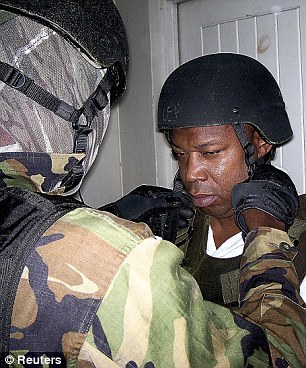
2011 May Coke pleads not guilty to federal drug trafficking and weapons trafficking.
2011 August Coke pleads guilty to federal racketeering charges in connection with drug trafficking and assault/racketeering conspiracy for trafficking large quantities of marijuana and cocaine into the U.S. and conspiracy to commit assault in aid of racketeering, for his permission of stabbing of a marijuana dealer in New York City.
2012 June 8 Coke sentenced by Federal Court in New York to 23 years.
August 29 Notting Hill race riot Majbritt Morrison, a Sweedish woman, has an argument with her Husband Raymond at Latima Road underground station, a fight breaks out between Raymond's friends and some white people who attempt to intervene.
August 31 Majbritt is assaulted by a group of white youth.
A white mob begin attacking the houses of the West Indian residents on Bramley Road.
September 3 King is arrested, charged and jailed for loitering at courthouse during Abernathy case.
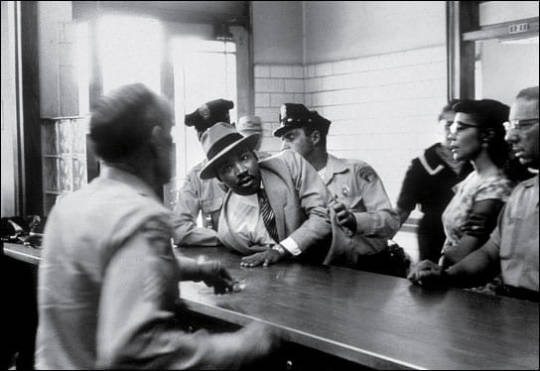
September 17 King’s book Stride Toward Freedom is published.
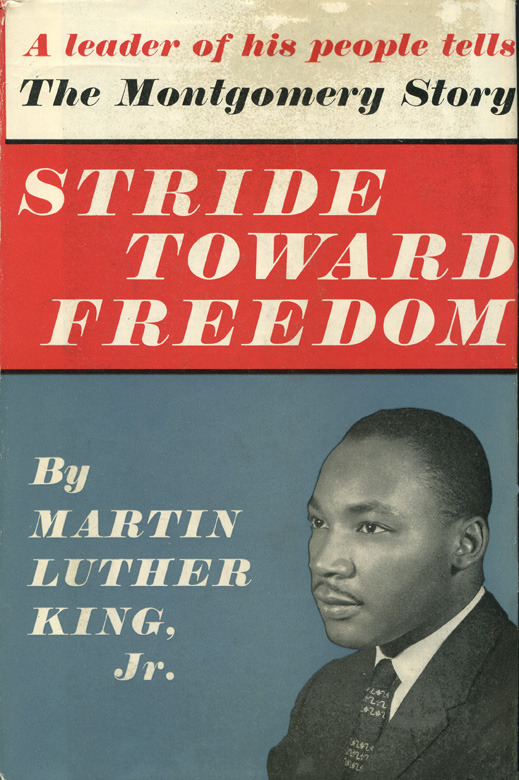
September 20 King is stabbed in the chest by mentally ill black woman with a letter open while signing copies of his book Stride Toward Freedom in Blumsteins department store in Harlem.
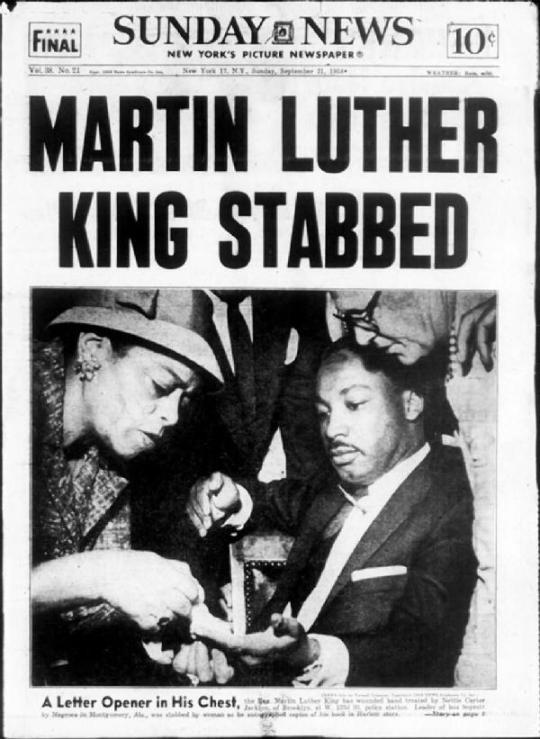
October Du Bois, after regaining his passport, travels to Russia where he addressees the Afro-Asian Writers Conference held at the Alisher Navoi Opera and Ballet Theatre in Tashkent.

Randolph Youth Marches for Integrated Schools in Washington, DC.
1959 February 3 King travels to India, meets Prime Minister Jawaharlal Nehrie.
March 2 Reverend Cladius Henry's Seventh Emmanuel's Brethren distribute 15, 000 tickets.
April Henry is held after raid.
May 7 Mornings a dispute occurred at the Coronation Market Spanish Town Road, Kingston between a bearded Ras Tafari gate keeper and a non Ras Tafari police man both employees of the KAC. According to informants the policeman was quickly assisted by other policemen and the Ras Tafari was severely drubbed in public.
According to the brethren the market vendors, who knew and were friendly to the beaten man proceeded to stone his assailants with vegetables and anything they could lay hand on.
Lorry a fire.
A fire bridgade turned up the brethren say the Ras Tafari proceeded to batter the police and set the van on fire, more police arrive and there was a general melee at the end of which, the police were fully in control and are said to havewen to the Back O Wall area where where many Ras Tafari live and there wreaking vengeance some had their houses broken up about 57 were arrested a fair number of beating are alleged to have taken place and many Locksmen were forcibly shaved.
August 1 9:00 holders of certificate (card) requested to visit Henry's Seventh Emmanuel's Brethren HQ at Rosalie Ave. off Waltham Park Road for Emancipation Jubilee. Please preserve this Certificate for removal. No passport will be necessary for those returning to Africa. Bring this Certificate with you for "identification " We are sincerely, "The Seventh Emmanuel's Brethren" gathering Israel's Scattered Children for removal, with our Leader God's Appointed and Anointed Prophet Rev C V Henry R R
October 3 Pioneering Israel's scattered Children of African Origin back home to Africa, this year 1959, deadline this new Government is God's Righteous Kingdom of Everlasting Peace on Earth. certificate.
November Henry's son Reynold Henry and US citizen Mitchell Swaby arrive in Jamaica from the United States.
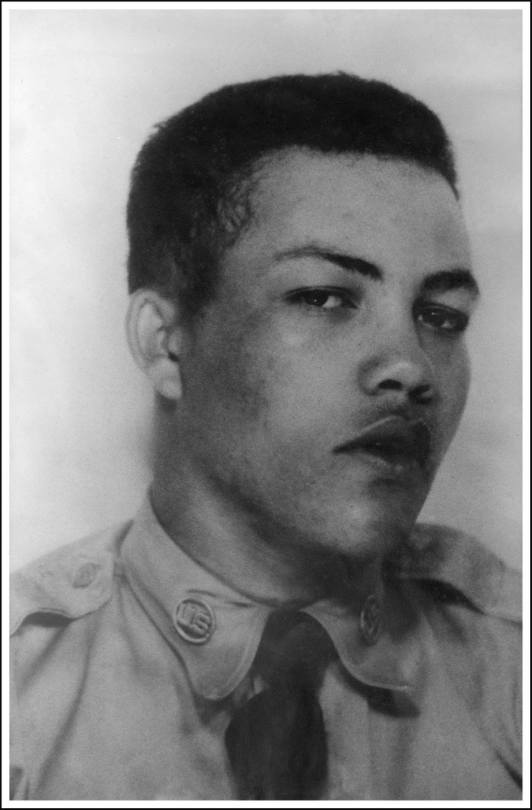
November 30 Immigration officer and sergeant of police Frank Alfred Davis with two officers is sent to Cladius Henry’s at 78 Rosalie Avenue by the acting chief immigration officer to inform Henry that he is to report to the police HQ the next day.
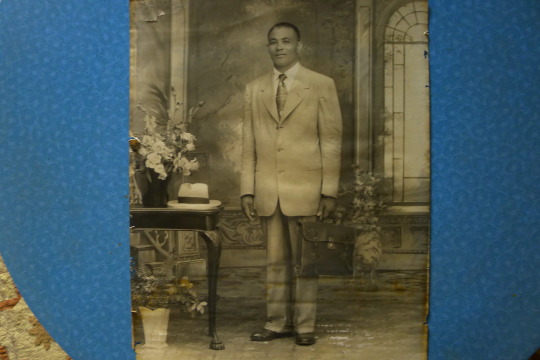
Henry receives letter from Fidel Castro.
December 5 Henry holds meeting at his 78 Rosalie Avenue residence with two to three hundred present on the premises two men at the gate report in the Star newspaper on premises speaks of machine guns Manley 14, 000 and that trip to the United States thought he had gone to see his wife but he had been to Russia as well as to see the King of Kings.
Du Bois is awarded the International Lenin Peace Prize by the USSR.
X visits the United Arab Republic of Egypt/Syria, Sudan, Nigeria and Ghana.
King publishes his the meseaure of a man book including his what is man and The Dimensions of a complete life Sermons.
Count Ossie records Kumina Burru drumming for Prince Buster produced Oh Carolina by the Folkes brothers.
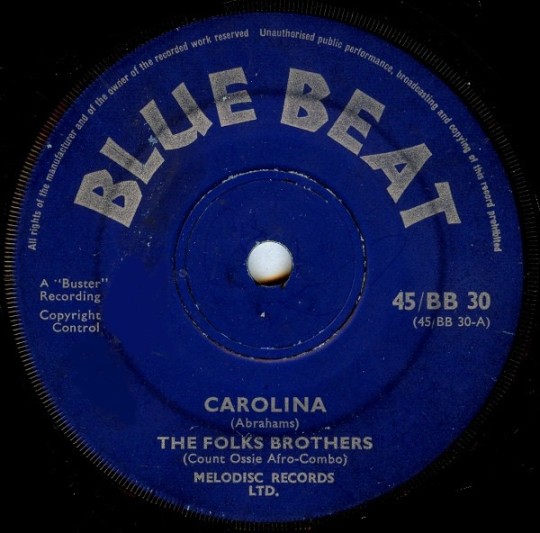
1960 Rupert Gabbidon orders Ras Tafarians Claude Beckford aka Thunder, R. Mac Donald and Gerald Scott to lay down on their faces then shots them.
June 22 Wednesday The Daily Gleaner.
Police and Military undercover Red Hills Rastafari arms cache DESPERADOES WITH RAPID FIRE GUNS KILL TWO ROYAL HAMPSHIRE SOLDIERS two other infantry men critically shot Gang of five, some bearded, hijack van, escape to Sligoville
PREMIER CALLS ON PUBLIC TO HELP
A COMBINED Police Military raid on Rastafarian camp in the Red Hills area, yesterday morning, was turned into a deadly ambush when five men attacked the raiding party from the rear and fled, leaving one soldier, a member of the Royal Hampshires, dead on the ground and three other members of the same unit critical wounded.
A second soldier died at Military Hospital at Up Park Camp last night and the other two wounded men were reported still on the danger list, particularly one, who was shot three times in the chest and once in the neck. Automatic weapons were used in the attack.
The surprise attack and casualties increased the tempo of the combined Police Military operations, in an area stretching all the way from Red Hills, through Ferry to the rugged hills of Sligoville, where the five desperadoes are said to be located.
They reached there after slipping through the Police and Military cordon in the Red Hills area and then headed for cover by commandeering at gun point a van owned by Wills Battery Company, and driven at the time by Mr. C. Staples, and shooting their way through a Police and Military road block along the Spanish Town Road, near Ferry.
SUBMARINE RUMOR Yesterdays development follow a weekend filled with rumors of increased subversive activity in Jamaica, including stories that a strange submarine had landed arms on the North coast and that large quantities of arms had been secretly brought into the island. There was no confirmation by the authorities of these rumors.
The operations were described by the Premier, the Hon. Norman Manley, however, as "normal", in a broadcast to the people in which he appealed for the cooperation of citizens to assist the Government in protecting the good name of the country.
Up to Press time, Police and soldiers (of both the Royal Hampshires and the West India Regiment) had a widely stretched cordon around the entire area of operations, although in concentration in the Sligoville area; a heavy armed guard has been assigned to duty at the Sligoville home of the Hon. Willis O. Isaacs, Ministry of Trade and Industry; ad armed Police protection had been alerted at the homes of the Premier and other ministers of Government.
The combined Police and Military operation moved out to cordon off the Red Hills area early yesterday morning in order to take measures which were described by the Ministry of Home Affairs yesterday in the following words:
"The Military and Police operations now taking place are a continuation of the security measures being taken by the Government in places where it is suspected ganja and/or crude weapons are stored for activities similar to those which were discovered".
This is a reference to raids made in April by the Police on the African Reform Church premises of the Rev. Claudius Henry, Repairer of the Breach, now held without bail on a Treason Felony charge, and to raids by the Military and Police on Rastafarian camps in the Wareika Hill area.
The movement, which began around three o'clock yesterday morning, was directed against a Rastafarian camp the Police knew existed in the Red Hills area. The camp is located on the slopes of the hill overlooking approaches, and connect with Washington Boulevard. High level Police and Military conferences over the week end decided to move in on the camp.
ENCIRCLEMENT The area was cordoned off during the dark, and at dawn the raiding party moved in. When they arrived there, however, it was empty. All that was found were dynamite, crude bombs and several sharp two edged cutlasses. A party of Hampshire Regiment soldiers was left at the camp while other member's of the raiding party began what was to be a day long combing of the area.
Details are not yet available, but around 11:30 a.m. yesterday the residents of the Red Hills area were startled by the sound of shooting from the bush.
According to an official release, five men, believed to have been among the occupants of the camp, made a surprise attack on the search party at the camp, shooting one fatally and wounding three others. One of them died later at Military Hospital.
The five men have been described as dressed in military style khaki clothing. Three of them were brown and two black; three were bearded fully, two appeared to be without beard, They were armed with long guns or automatic weapons, and one had a long revolver stack in the top of his trousers.
After they had escaped from the scene of the camp's disaster, they were next placed along the Spanish Town Road just below Ferry and a Police Military road block.
Here, two hundreds yards east of Ferry, they seized a Fod can belonging to Wills Battery Company at gun point, ejected the driver, crashed a Police cordon, shooting as they headed towards Spanish Town and Sligoville, A police van which was headed toward Kingston turned around to give chase and in turning went over the embankment.
On the way to Sligovile, people have told of being asked the way, by armed men in a car, and some at Cotton Piece, about five miles from Sligoville, said the men waved to them as they sped towards Sligoville. At Cedar Valley, two miles from Sligoville, the Ford van crashed into a telegraph pole as it attempted to negotiate a corner. The occupants fled the vehicle, carrying their weapons and amunition, and disappeared into the bush.
The Police and Military units are now concentrated in the area, having set up campaign headquarters at Mt. Moreland Postal Agency, about two miles from Sligoville. Two Police dogs are in the area to join the search, while a spotter plane overflew the Sligoville area all yesterday afternoon to assist the ground search for the wanted men.
Though alowed by darkness and difficult terrain, the search for the desperadoes went on through the night.
Shooting, then Screams from the bush
REVOR Wilfris, A 16 year houseboy who works about a quarter mile from thescene of the shooting, told the Gleaner that between 11 a.m. and 1 p.m. some soldiers came to the house and took him down to the now defnnet Red Hills Country Club.
At the club they asked him if he knew where any Rastas lived. He told them he did not know, he had only seen them working on a nearby quarry, They returned him to the house shortly after.
While in the house, soldiers accompanied by policemen started moving toward an in the bush near the home.
Long after he heard shooting and screams. An officer shouted for some soldiers and stretchers. Two men were carried away on stretchers. The shooting lasted about 5 minutes.
Military h/q closed to visitors
FULL SECURITY measures were taken at Up Park Camp yesterday, which became closed to all visitors.
Inquiries at the Military Headquarters for the names of the members of the Hampshire Regiment killed and injured in yesterday’s raid on the Rastafari camp at Red Hills, produced no information. The names will not be released until the next of kin have been notified.
Meantime, units of the Hampshires have joined the West India Regiment units and the Police in the Sligoville Area in continuation of the search for the armed desperadoes wanted by the authorities.
Crash kills van driver
OLD ENGLAND Mr. June 21 (From out correspondent) ONE MAN was killed and another seriously injured in an accident on the Old England Brokenhurst main road shortly after noon today.
It is reported that a van owned by Blue Ribbon Bakery of May Pen, and driven by Mr. Dalton Sutherland, 26, of Four Paths, overturned while negotiating a corner, Mr. Sutherland was pinned down under the van and died on the spot.
Mr. James Ferguson, 40, a salesman who was travelling on the van, was seriously injured and was taken to the Mandeville Hospital.
Ten in hospital after bus plunge
THIRTEEN persons were injured yesterday when an Enterprise bus plunged down a 45 foot ravine into a river at Trinityville, St. Thomas.
UNIA appeal Help root out ‘evil menace
MR. RALSTON S. POWELL, Commissioner of the Universal Negro Improvement Association in Jamaica (founded by Marcus Garvey) told the Gleaner last night he wished to send profound sympathy to the relatives and Army colleagues of the deceased and injured soldiers.
As a result of the shooting he said, well thinking citizens should aid the Police in rooting out the “evil menace in our midst”.
He wished to make clear that the UNIA did not tolerate such “un-Jamaican and un-democratic activities” and they were determined to help in whatever way they could to prevent any similar incident here.
Machine gun hold up ORDER:DRIVE US THROUGH
THE driver of the 1959 Ford pick-up belonging to Willis Battery Company, which was commandeered by five desperadoes on their way to the hills of Sligoville yesterday, described last night how the vehicle was taken from him.
The driver, Mr. Staples, said he was driving toward Spanish Town around noon.
At the bridge, just before reaching Ferry Police Station, five men, dressed in greenish uniforms resembling the uniforms of American soldiers, wearing what he believed to be false beards, and each holding what appeared to him to be a machine gun, suddenly appeared; standing in the road, causing him to stop the vehicle.
One man climbed in beside him, stuck a machine gun into his ribs and ordered him to “drive us through”. Four times he was ordered to do so, and four times he refused. He told them he must know what it was all about before he would drive them. The man refused to tell him; Meanwhile, the other four men had climbed in the pickup from the rear.
A police van approached from the opposite direction and there were exchanges of gun fire between the men and the police; one bullet struck the wind screen, breaking it. The man beside him called to one of the men behind. “You come an drive”. He then opened the van door and pushed him out on the road. Another man, he said came from the rear pushed him aside, climbed in and took the wheel. The motor had been left running and the desperadoes drove off, leaving the driver crouching on the road.
While on the ground, the driver saw the Police van trying to turn round to pursue the bandits, but in the manoeuvring, it went over into the ditch. He heard Police in the upset van, radio to all units a description of the stolen pickup.
The desperadoes threw out his “tool-pan” as they drove away.
A POLICE ROAD BLOCK on Spanish Town Road, at Duhaney Bridge, similar to that at Ferry through which the five desperadoes shot their way yesterday to escape into the rough, broken hilly terrain of Sligoville.
Troops move on Civil Servant’s home
THE HOME occupied in the Red Hills area by Mr. A, St. A. Clarke formerly Senior Statistician in the Civil Service, now attached to the Ministry of Finance, was involved yesterday morning in the security manoeuvres in that area by Military and Police units.
The security forces searching for Rastafarians, moved in on the house, situated some distance beyond the old Red Hills Country Club, about 7:00 yesterday morning and later in the morning and questioned Mr, Clarke. Soldiers were reported to have battered on the door.
At home at the time were Mr. Clarke, his wife and their seven year old son.
Mr. Clarke, who wears a beard, later lodged a complainant with the Ministry of Home Affairs.
He vacated his family from the home for the rest of the day.
Report unusual Rasta moves – Manley
THE Premier, the Hon Norman Manley, Q.C., made an appeal for the cooperation of citizens in reporting unusual movements of Rastafarians to the proper authorities, in a broadcast yesterday afternoon.
Mr. Manley was reporting to the island on yesterday’s incidents in the Red Hills and Sligoville areas:
He said:
“I want to say just a few words about the news that you have probably heard in regard to a raid made by the Police and a detachment of soldiers on a Rastafari camp in the Red Hills.
“I deeply regret that a soldier was shot and killed and three wounded.
“This was done by five of the men who had been in the camp, who managed to get hold of weapons and were shooting their way to escape. It seems that they feel upon the soldiers from the rear,
“This was just a normal raid that was being made on this camp where we discovered the sort of thing that we had found at Rosalie Avenue; we discovered dynamite and cutlasses and things like that.
Must End
“There is no need for anyone to get alarmed, but at the same time, everyone must realize that this wicked and mischievous activity must come to an end. These people and I am glad it is only a small number of them are wicked enemies of your country.
“They are doing your good name great harm, and it is tragic that this sort of thing should be happening just when we are on the verge of becoming an independent people.
“I want to ask every citizen to assist your Government in protecting the good name of your country. I want to ask you all to report any unusual movements you may see of Rastafari people whether they are going in ones or twos or in groups, wherever they suddenly appear in suspicious circumstances.
“I think you have a duty to do this. Make your report to the proper authority, if need be, to the nearest Police station. I promise you that anybody giving information along these lines will have his name kept absolutely secret and will be protected in every way, completely protected. We will do our duty, you do yours, and all will be well.”
Government sympathy to relatives of dead
Following is the text of an announcement made by the Ministry of Home Affairs yesterday afternoon on yesterday’s security measures by the police and the military and on developments:
“The Police and Military raid, mentioned in an earlier statement made by the Ministry of Home Affairs took place early this morning. A well prepared camp was discovered in the Red Hills area but when the raiding party moved in no one was there and it was evident that the camp though recently occupied had been abandoned.
“As we expected dynamite, crude home made bombs and other crude arms were discovered.
“At around 11:30 a.m. five persons, who are believed to have been amongst the occupants of the camp, made a surprise attack on members of the search party, shooting one fatally and wounding three others. These desperadoes then made their escape by commandeering a vehicle at gunpoint on the Spanish Town Road. Appropriate follow up action is proceeding.
Mischief
“Steps have already been taken to advise relatives of the soldiers who suffered casualty in the unfortunate incident, and the Government expresses its sympathy to their relatives.
“There is no doubt that a small element of the Rastafari movement is determined to make mischief and to do damage to the good name of this country. Government calls for the co operation of all law abiding citizens to help to put and end to this wicked conduct.
“Everyone is asked to bring to the attention of the Police authorities any evidence they have of the movements of these persons whether in twos or threes or in larger numbers or any suspicious activities by strangers that they may notice. Government guarantees that their reports will be kept secret and they will be fully protected.
“There is no need for alarm but we must put a stop to this business”
Two held; in ganja charge
DURING the Military operations at Sligoville, yesterday evening, the Police arrested, on a charge of having Ganja in their possession. The men are Gladstone Perkinsm 44, of 44 Seventh Street. Trench Town, and Samuel Tucker 39, of Maxfield Park settlement. They were taken in by Acting Corporal Grant of the Half Way Tree CID.
The soldiers, several hundreds of them, from both the Royal Hampshires and the West India Regiment, together with hundreds of Police armed with rifles, bren guns, sten guns, and light mortars, displaced themselves for an all nig combing of the area but up to the time of going to Press, had made no contact with the armed fugitives.
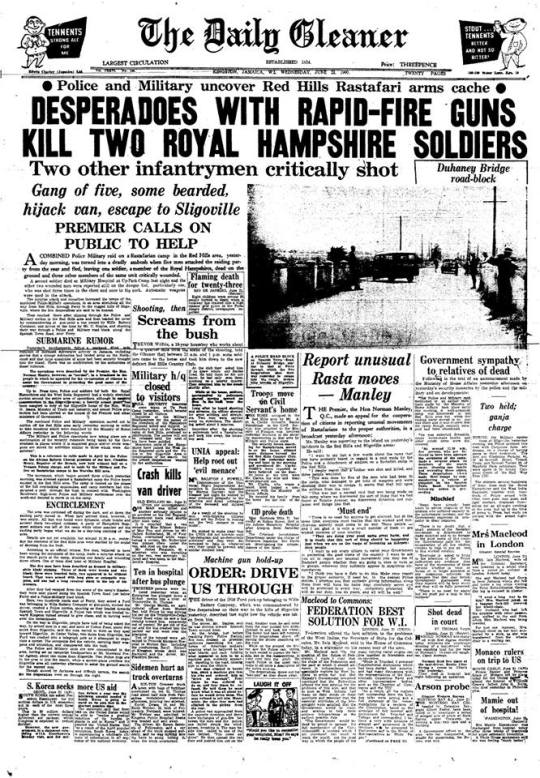
June 23 King has a private meeting with Democratic presidential candidate John F Kennedy.
July 26 Tuesday The Daily Gleaner.
Reynold Henry, Al Thomas, William Jeter and Howard Rollins found by military and police unit after 7 day manhunt whilst having fallen asleep in shop at Orange Grove in Sligoville, St. Catherine, Rollins is shot reaching for machine gun and later taken to Kingston Public Hospital by ambulance, Henry was as he tries to reach for a weapon is struck by a soldier with the butt of his rifle. taken to Central Police Station.
JAMAICA’S biggest manhunt came to an end just before dawn yesterday morning as four men Reynold Henry, Al Thomas, William Jeters and Howard Rollins, all American citizens were taken into custody by police and military units at Orange Grove, two miles out of Sligoville.
One man was shot. He is Howard Rollins, who the police say reached for a sub machine gun when the search party came upon them in a small dwelling house shop at Orange Grove. As he reached for the weapon, a soldier opened fire. Rollins is now under heavy guard in the Kingston Public Hospital.
The other three men three of the five whom military and police units have been searching for since last Tuesday are in the Kingston Police Station.
Hunger and sleep were the twin factors which led directly to the capture of the wanted men. The men woke up a lone shop keeper at Orange Grove, on Sunday night, demanded food and drinks and having had them fell asleep on the floor of his house. They were awakened just before 5 o’clock yesterday morning by police demands that they “come out with your hands up.” Rollins stirred and reached for the sub machine gun and was promptly shot by military and police guns trained in at a window and covering them as they lay sleeping on the floor.
The shooting was the signal for entry into the room. As the policemen and soldiers entered, Reynold Henry (son of the Rev. Claudius Henry, head of the African Reform Church, now held without bail on a charge of Treason Felony) reached for a gun. A soldier clubbed him to the floor with the butt end of his rifle.
Thus ended a chase and search which had occupied six days and which had begun at a Rastafarian Camp in Red Hills, where four Hampshire soldiers were shot two fatally and which had soread to the rugged hills and broken country of Sligoville. The police took into custody a sub machine gun and several small arms and a large quantity of ammunition.
IDENTIFICATION PARADE
The hunt ended just a few hours before the police had established that the three Rastafarians killed at the Red Hills camp, included among them the long wanted Claudius Beckford, otherwise called “Thunder.” They had all been shot in the head, allegedly on the orders of American nationals who had joined the camp at Red Hills. Before their deaths, Beckford and the two others Gerald Scott and R. McDonald whose bodies were discovered at Red Hills on Sunday were the leaders of the camp.
All four captured men are to be charged with murder in connection with the deaths of the two soldiers at Red Hills on Tuesday and evidence is being accumulated in connected with the death of the three men whose bodies were discovered on Sunday.
Three of them Henry, Jeters and Thomas will appear in the Half Way Tree Court tomorrow. An identification parade was held at the Central Police Station yesterday.
A police communiqué on the capture of the wanted men yesterday said:
At about 1.30 a.m. on the 27th June, a resident of Orange Grove reported to the Police that the four (4) wanted men had gone to his house and demanded food and drink, which he was forced to supply. They then went to sleep and this man contacted the police and military road block at Tredegar Park. As a result a small detachment was taken to watch the house and reinforcements were immediately called for from Sligoville. The reinforcements under Major D. F. Robinson 1 W. L. R. and Asst Supt. Of Police W. S. Howard left Sligoville and proceeded to the area.
A cordon was thrown around the house and at 5.00 a.m. a combined military and police unit moved in on the house. A window was broken by a W. I. B. Sergeant and a police man, who saw the four men lying on the floor. They were ordered out and one man subsequently identified as Howard Rollins attempted to reach the arms that were on the floor of the house. He was shot. Thereupon all the men surrendered to the police and army.
“The injured man was conveyed to the Kingston Hospital by a military doctor and ambulance unit.
“The other three men who are identified as Reynold T Henry, Al Thomas and William Jeters were send under escort to Police Headquarters, where they are detained.
“All four men are U.S. citizens. A quantity of arms and ammunition has been recovered.
“The Police are stil very anzious to interview the following persons:
Lawrence Thornwell RICHBURGH o/c Larry RECHBURGH, Mitchell Dunbar SWABY, Patrick Alnswirth GRANT, Qasim ABDULLAH, Phillip STEVENSON, David AMBRISTER, o/c David KENYATTA, Eldrid Zinton Emanuel MORGAN o/c ‘REX’, Donald Masou Harper, Titus DAMONS, George Junoir DAMONS, All WATUSIE o/c WATTUSEY, Jospeh Lee WILLIAMS o/c William JOSEPH, Sethi AMENEN HAT.”
MILITARY WITHDRAW
At a Press Conference yesterday morning, the Commissioner of Police, Mr. L. P. R. Browning, Lieut. Col. David Smith, Commanding Officer of W.I.R., Major Dunstan Robinson, of WIR, Mr. A. G. Langdon, Assistant Commissioner of Police and Captain D. Prothero, of the Royal Hampshires attended.
Mr. Browning paid tribute to the military, whose action in the operation was absolutely first class, he said.
A skeleton force of police had been left in the area but all military personnel have been withdrawn.
Mr. Browning stressed the fact that public support is still required even though the fugitives have been arrested,
Asked about the arrival of the fugitive s into the island Mr. Browning said that the time of arrival was doubtful.
Lt. Col. Smith said in reply to a question that the ammunition found on the men was not from the local military.
Taking part in the seven day man hunt were 400 military personnel and 100 police.
United States Consul Mr. Robert McGregor was kept informed of the situation up the the arrest yesterday morning, Mr. Browning told the Press Conference.
A reward of £1,200 will be paid today to the shopkeeper at Bamboo whose information to the police led to the arrest of the four fugitives.
Premier commends Police, Military
THE police and the military have been commended by the Premier, the HON. Norman Manley, Q.C., for their work in the manhunt which ended yesterday.
In letters sent to Brigadier Derek Lister, Commander Caribbean Area, and Mr. L. P. R. Browning, Commissioner of PolIce, yesterday, Mr. Manley said:
“Brigadier Lister, Please accept and convey to the commanding officers and all other ranks of the Hampshire Regiment and the West India Regiment the thanks of the Government of Jamaica for their devoted services in the recent troubles which have been brought to a successful conclusion today.
The Government of Jamaica repeats its sincere regrets and (Continued On PAGE 14)
‘Thunder’ one of the dead Rastafarians
CALVERT Claude Beckford, otherwise called “ Thunder” and wanted by the police on a Treason Felony charge since April, when the Rev. Claudius Henry was taken into custody on a similar charge, was one of the three men whose bodies were recovered from a grave at Red Hills on Sunday.
The two other dead men found in the grave were Gerald Scott and R. McDonald, also members of the Rastafarian Cult and members of the Ethiopian Coptic or Reform Church, headed by the Rev. Claudius Henry.
Postmortem examination yesterday morning settled the cause of their deaths. They were all shot in the head.
The police believe that the manner of their deaths was in the nature of execution and on the instructions of American nationals who had taken over command of the camp at Red Hills, where Beckford had been in hiding and where all three were up to recently the leaders of the cultists who occupied the camp.
Soldiers of the Royal Hampshire Regiment digging for weapons at the abandoned Rastafarian Camp at Red Hills on Saturday discovered a recent grave. Expecting to unearth one body a police and military search party visited the on Saturday morning and dug up not one body but three.
First indications were that the man had been strangled or hanged. Marks conforming with such a theory were found around their necks. A postmortem examination yesterday revealed the true cause. They had been shot at close quarters through the head.
Rastas identified
All Jamaicans, the dead Rastafarians were identified yesterday by other Rastafarians who were rounded up by the police yesterday and Sunday.
A police release on this matter said yesterday:
“It is now believed that the three men buried near the abandoned Rastafarian Camp in Red Hills woods are (1) Gerald Scott, (2) C. C. Beckford, and (3) R. McDonald. All these men were members of the Ethiopian Coptic Church and followers of the Rev. C. V. Henry. It is understood that these men were murdered on instructions from foreign members of the camp.” (Continued On PAGE 14)
HE CALLED FORCES WHILE MEN SLEPT
MR. SEPTIMUS HIGGINS, 46, the shopkeeper in whose house the four wanted men were held, yesterday told how he was forced to give them food and drink from his shop and was finally able to summon the security forces when the men went to sleep on the floor of his house.
The wanted men were held at Orange Grove yesterday morning between Tredegar Park and Sligoville by a detachment of policemen and members of “B” company of the West India Regiment.
Mr. Higgins said that at about 7.30 Sunday night four men came in his yard and called to him.
Reynold Henry said to him: “We are in trouble, we are out from Tuesday gone and we got nothing to eat. What do you have in the shop?”
Pot on fire
He said he told them that he had nothing save for “little flour, fish and oil” The four men went in the one room building used as a kitchen and sleeping quarters, made a fire and put a pot of the fire.
They went in the shop, took four bottles of aerated water from a shelf and drank one each.
Mr. Higgins said he gave them flour, codfish and oil, and the men helped prepare it.
The men made dumplings from the flour, cooked and ate them. Then they took off their clothing which were wet wrung them and placed them over cross sticks by the fire to dry.
Mr Higgins said they showed him their guns, saying, “These are for all those who set hands against us.” They put them on the floor.
They next asked for a cro (Continued On PAGE 14)

June 30 Thursday The Daily Gleaner.
ARRESTED AMERICANS EXCEPT ONE IN HOSPITAL TAKEN BEFORE HALFWAY TREE COURT FOUR CHARGED WITH MURDER OF SOLDIERS three also accused of slaying of Rastafarians.
As the round the clock search continues for five men wanted for questioning by the police two Jamaicans and three Americans three of the four men held in the Orange Grove section of the Sligoville area on Monday morning were taken before the Half Way Tree Court yesterday and charged with murder of two soldiers at the Red Hills Rastafarian camp and also with the murder of three Rastafarian members of the camp on June 15.
The men Reynold Henry, son of the Rev. Claidius Henry, head of the African Reform Church who has been held without bail since April, with 15 of his followers, on a charge of Treason Felony Al Thomas and William Jeters were taken to the Court under heavy military and police guards.
They were taken to the Court in a truck in which sat members of the West India Regiment with fixed bayonets and armed members of the police force. Leroy Malachai, an American, held earlier was also taken before the Court.
They were formally charged before His Honour Mr. Donald Eccleston, with the murder of 5 persons, two soldiers Brian Mettherell and David Philpott, privates of the Royal Hampshite Regiment, and three Rastafarians Calvert Beckford, otherwise called "Thunder," R. McDonald and Geral Scott.
Mettherell and Philpott were killed following a combined military-police operation on the Rastafarian camp at Red Hills on Tuesday last week, a development which led to the island's largest manhunt and the bodies of Beckford, McDonald and Scott were discovered by the police in a single grave at the Red Hills camp on Sunday. They had been shot in the head, eight to twelve days previously according to medical evidence. Other charges against the wanted men, as also against Leroy Malachai, who was held last week in premises at Duff Street (and who was charged last week with the murder of the two soldiers) and against Howard Rollins, otherwise called Quasim Abdullah (now recovering in the Kingston Public Hospital from a bullet wound on Monday morning) are being prepared by Mr. Huntley Monroe, Crown Counsel, who was been assigned to the police in connection with the preparation of the cases.
SOLDIERS ON EITHER SIDE The five men wanted by the police Gabidon, Eldrid Morgan, Jamaicans, Larry Heckburg or Lawrence Richburg, David Ambrister or David Kenyatta and Titus Damon, Americans, were apprehended up to late last night. Rewards of 300 each have been offered for information leading to their detention.
The four men (including Leroy Malachai) were brought to the Half Way Tree police station yesterday in a truck which was escorted by a police car. The accused sat in the middle of seat boards placed in the truck with soldiers on, either side of them. An English officer attached to the West India Regiment faced Henry and held a revolver trained on him. All the soldiers and policemen in the vehicle carried rifles.
The procedure was repeated on the return trip to the Central Polce Station. Handcuffed and barefooted and wearing dirty shirts and pants two with shirts unbuttoned and one wearing his shirt capelike across his shoulders, the three men taken to court were marched into court by soldiers of the West India Regiment carrying rifles with fixed bayonets. Members of the police force with batons also guarded the men.
Before the Court were Reynold Henry, 26-year old mechanic, a United States citizen of Jamaican birth; Al Thomas, 26 year old American labourer and William Jeters, 23-year old American electronics engineer. They are charged with being concerned together with Howard Rollins, otherwise called Quasim Abdullah, captured on Monday and now in the hospital suffering from a gunshot wound, Gabidon and Eldrid Morgan, still at large, that on June 15, in the Red Hills woods of St. Andrew they murdered Gerald Scott, Calvert Beckford and R. McDonald.
The second count against Henry, Jeters and Thomas charged them with being concerned with Abdullah on June 21 at the Red Hills woods with the murder of Brain Mettherell and David Philpott two privates of the Royal Hampshire Regiment.
The men were remanded in custody until July 6, Leroy Malachai, 26-year-old carpenter of Brooklyn, New York, who is also charged in connected with the murder of the two soldiers and with unlawful possession of unlicensed firearms and several rounds of ammunition was also brought into Court and remanded in custody until July 6.
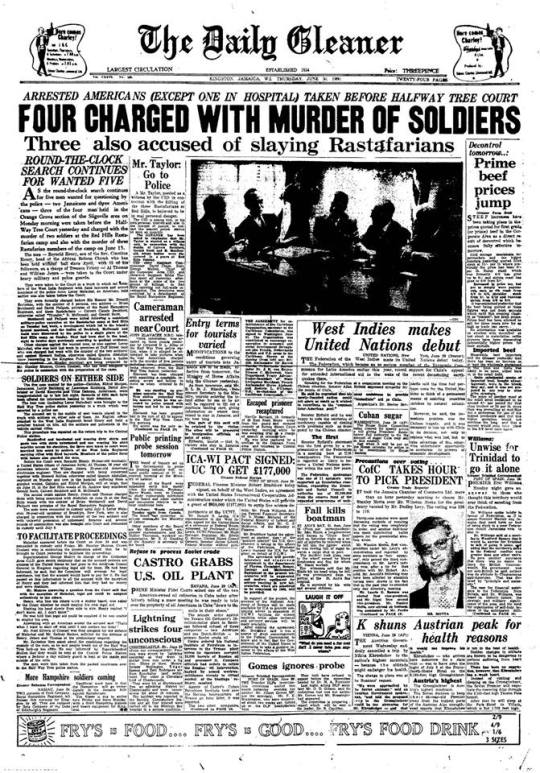
Rollins charged, convicted and sentenced to death for robbery and murder of Champion House club and bar Lyndhurst Road and Maxfield Avenue, St. Andrew.
Charged with seven counts of murder, tried, convicted and sentenced to death hanged on the gallows at St. Catherine District Prison.
September X attends the United Nations General Assembly where he meets Gamal Abdel Nasser of Egypt, Ahmed Sekou Toure of Guinea, Kenneth Kaunda of Zambian African National Congress and Fidel Castro of Cuba all of who invite him to their nations. as travels to Egypt, Sudan, Nigeria and Ghana.
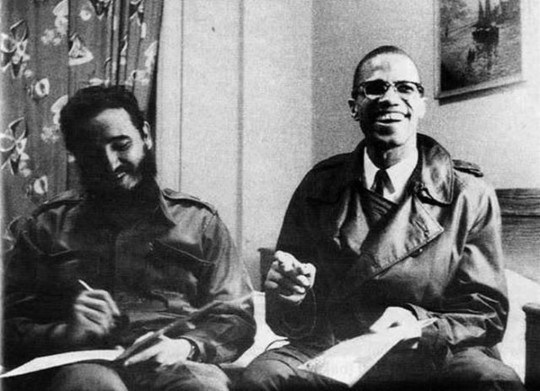
October 1 The Daily Gleaner.
JURY TAKES FOUR HOURS RETIRES THREE TIME BEFORE RETURNING VERDICT
REYNOLD HENRY, GABBIDON, MORGAN, JETER TO HANG
Damons, Rollins, Thomas acquitted
COURTROOM CROWDED, THOUSANDS OUTSIDE
THE death sentence was passed last night on four of the seven persons charged with the murder of Gerald Scott after a jury sitting until 7.45 o’clock and retiring three time had found them guilty of murder.
Sentenced by the Chief Justice to be hanged were Reynold Henry, 26, Eldred Morgan, 22, William Jeter 23, and Albert Gabbidon, 23, at the conclusion of a ten day trail.
George Domons, Howard Rollins and Al Thomas were acquitted of the charge.
When sentence of death was passed by Sir Colin MacGregor Henry, who during the trail was referred to as the “Commander” at the Camp in Red Hills woods where Scott was shot shrugged his shoulders, struck an unlighted cigarette in his mouth and leaning over to his Counsel, Mr. W. B. Frankson said “you tried your best. You did a dam dine job”.
William Jeter turned to his Counsel, Miss Gladys Morrison and smiled broadly from the oversized prisoners dick which had been built specially to accommodate the accused.
Morgan and Gabbidon stared straight at the Chief Justice.
A packed No.1 Home Circuit Courtroom, many of the occupants having arrived at the Court from 8 o’clock that morning, and eat lunch in the building listened in dead stillness to the verdict.
Outside, thousands of people waited in the dark to hear the outcome and to see the accused when they were being taken from the Courtroom.
The charge against the men followed the discovery in the Red Hills woods if three men buried in a single grave. The three men were identified as Gerald Scott, Calvert Beckford, otherwise called “Thunder”, and R. McDonald, all Rastafarian cultists.
Jury retires first time
Evidence led by the Crown during the trail was that the three men were among five found guilty of “treason” by the accused, ordered to lie down on their faces and shot by the accused Albert Gabbidon. Two of the men were granted a last minute reprieve by the accused and one of these, Alvin Irving, was the chief witness for the Crown.
Ten witnesses gave evidence for the Crown during the hearing and all of the accused with the exception of Henry and Rollins entered the witness box and gave evidence on theor own behalf.
Yesterday the Chief Justice finished his address to the jury which he began on Thursday afternoon and at 2.50 p.m. the jury returned for the first time.
While they were out Henry sat reading a STAR, and Gabbidon sat wiping his face with a handkerchief. At the time Mr, United States Vice Consul who has been watching the trail on behalf of the United States Government, chatted with Henry.
AT 6.40 p.m. two hours after they had been out, the jury returned and asked further directions from the Chief Justice on the question of common design. After retiring once more the twelve men returned to the Courtroom and the foreman, Mr. Stanley Prendergast, informed the Court that they were unable to agree on a decision with respect to all the prisoners.
They were offered ten minutes more time by the Chief Justice, left and returned to the Courtroom at 7.35 four hours after they had first retired: In a packed courtroom that was momentarily stilled the foreman delivered the verdict making recommendation of mercy in respect of the condemned Morgan and Jeter.
Three removed from dock
The Chief Justice ordered the accused who had been acquitted to be taken from the dock and after the black cap was placed on his head, addressing the remaining four said: “After two weeks of very patient and careful hearing and after hours of consideration the jury have come to a verdict guilty of murder against all four of you.
“In regard to Morgan and Jeter, I have noted the recommendations for mercy, the recommendations I will forward to His Excellency the Governor with such recommendations as I see fir to add.
The sentence of the Court on each one of you is that you suffer death in the manner authorised by Law.
When the prisoners were taken from the dock the Judge told the jury of Stanley Prendergast, Eleuterious Kirkland, Peter Nelson, Charles Phillips, Eric Smith, Audley Renwick, Walter Tomlinson, Vincent Rose, Lorenzo Parkes, John Archer, George Roman and Winston Parris, that he was discharging them from jury service for the next five years.
Outside when they were being transported from the Court, Henry and Gabbidon waved to the crowd of thousands that gathered in the precincts of the Court to see them.
In the trail Mr W B Frankson appeared for Henry, Miss Gladys Morrison for Rollin and Jeter, Mr Dennis McFarlane for Albert Gabbidon Mr W B Wilkie for Al Thomas and Mr Basil Rowe for Eldred Morgan and Titus Damons.
Mr Huntley Monroe Crown Councel and Mr L L Robotham Crown Councel, led the evidence for the Crown.
Mr V O Malcome. Deputy Registar of the Supreme Court, was Registar to the Court.
Yesterday during part of the proceedings Mr Robert Mac Gregor United States Consul General was oresent in Court
(Continued on PAGE 13)
Trail of Claudius Henry begins on Monday
THE Rev. Claudius Henry, founder of the African Reform Church and 15 of his followers, charged jointly with reason felony, go on trail Monday in the No. 1 Home Circuit Court.
Mr. Justice Duffus will preside.
Mr. Huntley Monroe, Crown Councel and Mr L. L. Robotham, Crown Councel, will lead the evidence for the prosecution.
Mr. Peter Evens, who appeared for the accused at the preliminary inquiry, will represent them at the trail.
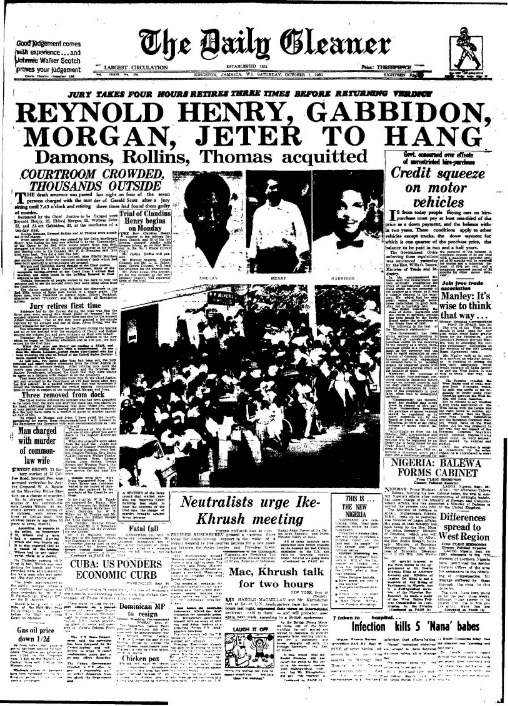
October King is arrested at sit in at Rich's department store in Atlanta and is sentenced to 4 months hard labor for violating a suspended sentence he received for a 1956 traffic violation.
October 27 King is released on a $2, 000 bond.
Howell is arrested for Ganja at Tredegar Park, Spanish Town and sent to Bellevue.
November Du Bois attends the inauguration of Nnamdi Azikiwe as the first African Governor of Nigeria.
King publishes his autobiography.
1961 January 17 Patrice Lumumba is murdered.
February 6 The edifice of Africa Hall is named by the Emperor who dedicates it to the service of the African people.
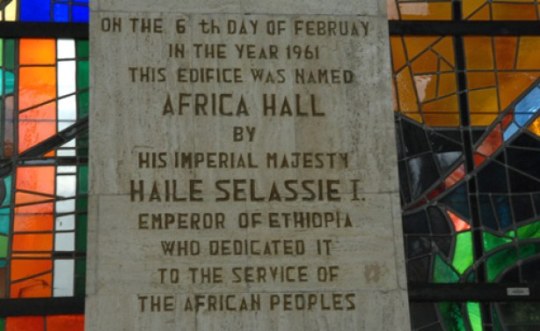
March 29 Wednesday The Daily Gleaner.
CONDEMNED MEN ACCEPT CHRISTIAN MINISTRATION IN DEATH CELL
HENRY, GABBIDON HANGED
Pastor says Reynold finally accepted ‘God was love, not hate’
GARVEY HIS LAST WORD
‘THE LORD IS MY LIGHT’ GABBIDON
AFTER SEVERAL penitent session with Christian Ministers, Reynold Henry and Albert Gabbidon walked to the gallows at 8.30 o’clock yesterday morning, paying the price for the murder of one of three Rastafarians 10 months ago near Red Hills.
“I die for Marcus Garvey,” were the last words of Henry, a naturalized American, aged 27, and son of the Rev. Claudius Henry, now serving a ten year term for treason felony.
“The Lord is my light,” said Gabbidon as he stood on the platform waiting for hangman Alan Whonder to pull the lever at St. Catherine Prison, Spanish Town.
Taking his forty second walk to the gallows beside condemned men, Rev. J. J. Carter Henry, Baptist Pastor, administered the last sacrament to the two.
Two Sister sof Mercy visited Henry last Monday afternoon and, as a result, Fr. T Curran, S.J. OF Spanish Town went to Death Row later in the day and gave Henry final Roman Catholic rites. The Sisters said they consoled and tried to strengthen Henry who was very penitent.
The sisters remembered Henry who attended a Roman Catholic school during his youth in Jamaica.
Henry also saw an Anglican Minister Rev. J. D. Gentle of Spanish Town.
Shorty before they started the seven yard trek to the gallows, Henry shouted; “Morgan, Jeter I will meet you at 8:30 in the morning.” (today).
Gabbidon said; “Morgan, Quasim (meaning Howard Rollins who is also in Death Row) remember tomorrow before you die to say Lord have mercy on my soul.”
Henry’s parting words to his comrades were: “Today I shall be in Paradise.”
A few minutes before he had sighed: “I feel like committing suicide.”
NEAR FINAL DAY
Policemen patrolled the area around the prison as a crowd of about 500 grew restless on the main road nearby. A stirring hush indicated the 8:30 date with death, and several women cried openly as a prison warden pinned the death notice on the public side of the concrete wall signifying that Mr. George E. Morris, Superintendent of Prison, witnessed the hanging and Dr. G. A. McKenzie certified the end.
Rev. Carter Henry held a Press conference at his home 10 minutes after the execution. He said Henry was an atheist at first. He believed that the white men went to stole the lands of his forefathers and gave the Bible in exchange.Rev. Carter Henry added that Henry maintained his chief aim in returning to Jamaica was to gather an army to liberate Africa. He meant no harm to any one in the island.The middle aged pastor said Henry accepted God as the final day approached, after he had been told that God was love, not hate.He said Henry recited John 3:16 , inserting his name: “For God so loved this world that He gave His only begotten Son that I Reynold Henry shall not perish but shall have everlasting life.”“He was loyal to himself.” Rev Carter Henry said, solemnly.The pastor produced a sheet of paper on which he said Henry wrote; “Through Him I shall not die, I am fortunate; I can be no more resolute. No more! Thank God for His love and thank you too Rev. Carter. I am sorry I never met you before.”Henry then recited the passage from John and everyone sang the Hymn: “ There is no dark valley where Jesus comes to gather His loved ones.Jeter, Morgan follow todayEldred Morgan, a Jamaican and William Jeter, an American will be hanged today at 8:30 a.m. at the St. Catherine District Prison also for the murder of Gerald Scott.They were found guilty at the same trail as Reynold Henry and Albert Gabbidon of taking part in a common design to kill Scott.Yesterday morning the two men each had one scalded egg, one poached egg, two slices of toast and a cup of tea. They then smoked mentholated cigarettes, maintaining calm composure as eight strong wardens ried their hands. Then, blindfold, they were led to the gallows.Henry weighed 188 lbs, Gabbidon 162. On a signal from Mr. G .A. McKenzie, the Director of Prisons, the hangman pulled the lever. The platform collapsed.(Continued on PAGE 20)
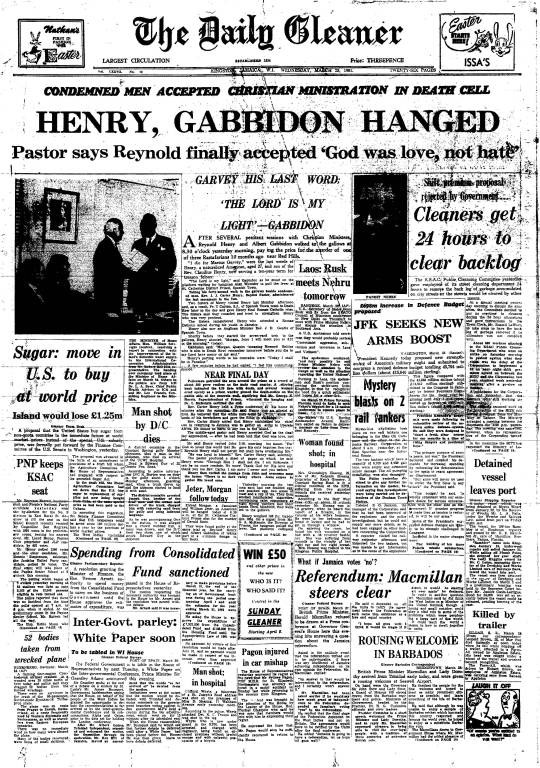
April 4 The Mission to Africa sent by the government of Jamaica leave. The Mission compromised of 9 men Mortimer Planno, representing the Ras Tafari movement, Bro Douglas Mac and Bro Filmore Alavarana, Rases from Eastern and Central Kingston, Mr. Westmore Blackwood of the UNIA, Dr. M. B. Douglas of the Afro Carribean League, Mr. Cecil George Gordon of the Ethiopian World Federation Inc. advisers Dr. L. C. Leslie, former Mayor of Spanish Town, medical practitioner and leader of the Mission and Mr. Victor Reid, journalist and author.
The Mission was sent to Africa to investigate the potential intake of emigrant's the Mission and include in its report the economy of each of the countries visited.
April 4 The Mission leaves Kingston for New York. The Mission spend 2 day at Hotel Theresa on 5th Avenue and are met at the Idlewilde Airport by members of the Ethiopian World Federation, UNIA and other Back to Africa Movements in New York.
They visit the Ethiopian Orthodox Church in New York, the HQ of the Ethiopian World Federation, New York and also visit the U.N.O. Buildings but are unsuccessful in obtaining sears in the balcony of its general assembly.
April 6 Thursday 21.30 The Mission leaves New York for London.
April 7 Friday 8.30 The Mission arrives in London. They stay at Hotel Londoner and visit the Ethiopian Embassy, the French Embassy and the Ghanaian Embassy to get visas for entry. They visit the Houses of Parliament and Westminster Abbey.
April 14 15.40 The Mission leave London for Khartoum via Rome
April 15 04.10 The Mission arrive in Khartoum and at 4.30 leave for Addis Ababa, Ethiopia.
The Mission arrive at Haile Selassie I airport via Asmara, Mack and Alvarange met 4 Ethiopian Orthodox Priests who fly with them to Addis Ababa.
April 16 Sunday 9.35 The Mission arrives at Addis Ababa on Ethiopian Airlines where they are met by Ato Getanen Haile Mariam, Chief of English and Commonwealth Department in the Ministry of Foereign Affairs, Waizaro Maize of the Ministry of Education.
The Mission visit His Holiness Abuna Basilios of the Ethiopia Orthodox Church.
April 17 visit Her Imperial Majesty Empress Menen handicraft and technical school for girls and boys where they see hand weaving of wool, cotton, working in gold and silver, carpentry, joinery, cabinet making and wood carving.
April 18 Tuesday The Missions meet with the Emperor is postponed until they meet more Government Ministers. They visit the Lions Den next to the Imperial Palace which contained 21 Lions.
April 19 The mission visit the Co operative Farm at Awasa and on the way stop at Shesshaminane, the land granted to the people of the, about 200 km from Addis.
April 20 The mission fly's by Ethiopia Airlines Special Charter Flight to Jimma in the province of Kaffa.
April 21 Planno, Doulas Mac and Alavarana meet the Emperor at the Imperial palace, Alvarana presents a carved wooden sculpture of a map of Africa and a painting of the Emperor, Brother Mac presents photographs taken of Ras Tafari brethren, and a painting of Navy island (Errol Flynn Island), Planno presents a ites gold and green scarf woven by he himself, a painting of the Emperor in his military uniform painting by Sporty Green.
April 22 The mission visits the Ministry of the Interior the Minister welcomes the delegation and says that.
In the afternoon to his residence where they have tea and honey.
April 23 Sunday 10.30 The Mission leaves Haile Selassie I Airport on Ethiopian Airlines for Lagos, Nigeria via Khartoum. The Mission stay at Ikeja Airport Hotel and go to the Federal Palace Hotel in Lagos.
22.30 The Mission arrives at Ikeja Airport by Ethiopia Airlines where they are met by Mr. Babatunde Harper of the Ministry of Internal Affairs and other officials and stay 2 days at Ikeja Airport Hotel.
April 24 Monday The Mission visit the Oba Adele, King of Lagos and in the afternoon visit the Yaba industrial estate.
April 26 Wednesday The Mission meet Nnamdi Azikiwe at State House in Lagos and also attend as ice show in Lagos as Azikiwe’s guests.
April 27 Thursday Sierra Leone gains its independence and the mission visits the furniture factory at Village also the Defacto Bread Factory Surelereat Yabba and drive around Ikoyi Village.
April 29 Saturday The Mission drives by car to Ibadan from Lagos and are accommodated at Green Sorings Hotel.
10.00 The Mission call on the Head of Service and Chief Secretary, and then the meet Acting Premier of Ibaddan Oba C. D. Akran in the Premier;s office.
13.00 A luncheon is held by the Government in honor of the Mission and in the afternoon they tour the University of Ibadan.
18:30 whilst in the city of Ibadan in Western Nigeria the Mission attend a cocktail party held in their honor by the West Indian residents at the home of Secretary General D. A. R. Alexander a Saint Lucian and Mrs. Alexander a Jamaican.
April 30 The mission drive to Illora farm settlement, 50 miles from Ibadan.
May 1 Monday 9:00 The Mission leave Ibadan by Nigerian Airlines for Kaduna in the north.
11:55 The mission arrive at Kaduna Airport and stay at Catering Rest House.
May 2 The Mission meets the deputy secretary to the Premier S.A.S. (S.D.S.) Premier office in the afternoon legislative and the Kaduna Textile Plant which employs 1, 600 workers.
May 3 The mission drives by car to the city of Zaria about 69 miles from Kaduna. Zaria is an ancient city with a wall of stone and mud all around it, the mission also visits.
May 4 Thursday 1.50 The Mission arrive in Enugu in the east by Nigerian Airlines, they stay at Catering Rest House and in the evening are invited to dinner by Dr Michael Okapard, Premier of Eastern Nigeria at the Premiers Lodge.
May 8 Monday 16.20 The Mission arrives in Accra, Ghana by Nigeria Airlines and stay at the Ambassador Hotel.
May 9 19.00 The Mission attend a reception held in their honor at the Ambassador Hotel where they meet the chiefs from various states in Ghana including 92 year old Nii Amoo Nakwa II Obtobolum Mensta the oldest chief in Ghana and also meet 2 Rastafarians brethren from Jamaica, Jackie Payne a compositor working at the Guenis press in Accra and another brother a machinist working at the Osageyfo Builders Brigade.
May 10 The Mission meets Nkrumah at Flagstaff House.
Nkrumah appoints a special committee to talk with the mission.
May 11 The Mission visits Tena Harbour, the home of the Black Star Line, 20 miles from Accra.
May 12 The mission visit a botanical garden and rest house and are given some seeds to suck which makes everything they eat taste sweet.
May 13 The mission visits the museum at Accra.
May 15 11:59 p.m. The mission leaves Ghana for Liberia.
May 16 1.00 am The Mission arrive in at Robertsfield airport in Liberia by PAA and drive through miles Firestone rubber plantations on the way to Ducor Palace Hotel in Monrovia where they stay.
May 18 The Mission meets President Tubman at his office, the majority report mentions the 1955 law which was enacted to "authorise the President to make arrangements for the care of immigrants to Liberia" enriched by a provision granting the issuing of free lands to immigrants, plus 3 months free housing to encourage immigration and for a bias to farmers, unmarried settlers recieve 10 acres of farm land and 1 town lot, married settlers receive 25 acres of farm land and 1 town lot.
Tubman speaks of Garvey and recalls his own state visit to Jamaica, says that Jamaica is overpopulated and needs easement, speaks of the founding of the republic and the immigration laws which have existed since then which permit people of African descent from the West Indies.
The foreign secretary, Mr. Grimes, who is of West Indian decent is also present at the meeting. The President also mentions Jamaicans Barnes, Corniffe, building contractor Clifford Brown and Miss Ethelda James, the country's first female Diamond miner as some of the West Indians who have contributed to Liberia.
1921 March 7 President C. D. B. King of Liberia arrives in New York as head of the United States Liberian Plenary Commissione to negotiate loan; 5 man UNIA welcoming delegation pays greeting call at Waldorf Astoria Hotel.
March 18 UNIA mission arrives in Monrovia.
March 22 UNIA delegates to Liberia hold official interview with Liberia’s acting president.
April UNIA delegates in Liberia stop "construction work" temporarily because of lack of funds.
Rev. F. Wilcom Ellegor, UNIA high commissioner meets with President C.D.B. King in Washington D.C., regarding UNIA Liberia construction loan.
1924 January
The delegation was led by Henrietta Vinton Davis and also included Princeton education Robert Piston and UNIA new attorney Milton Van Lowe.
1815 Cuffe arrives at Sherbrooke Island in present day Sierra Leone with 88 African Americans, the first.
1816 December The American Colonization Society is established.
1820 The ship Elizabeth sails from New York to Sierra Leone and Liberia with 88 emigrants.
and 22 emigrants die within 3 weeks from yellow fever and of the 4, 571 emigrants brought to Liberia between this year and 1843 only 1, 819 survive.
1821 Lt. Robert Stockton points a pistol to King Peter's head and King Peter sells Cape Mersurado.
1822 January 7 The emigrants brought to Sherbrooke Island by Cuffe are taken to Cape Mersurado by another ship and there they establish the city of Christopolis.
1824 The city of Christopolis is renamed Monrovia after President James Monroe.
1825 King Peter and other Kings sign a treaty with Ashmun granting land and are given 3 barrels of rum, 5 caskets
1829 March Jamaican John Brown Russworm co founder of the first African American owned newspaper, "Freedoms Journal" emigrates from the U. S. to Liberia.
1830 Russwurm found employment as the colonial secretary for the American Colonization Society serving from until 1834 and also worked as the editor of the Liberia Herald and served as the superintendent of education in Liberia's capital, Monrovia.
1836 Russwurm becomes the first black governor of the Maryland in Africa colony which was annexed Liberia in 1857.
1845 The ACS draft a constitution at a convention held in Monrovia.
1847 Liberia delcares its independence becoming an independent and sovereign Republic using the constitution.
1848 January 3 Joseph Jenkins Roberts is elected Liberia's first president.
1850 Edward Wilmot Blyden at age 18 emigrates to Liberia after unsuccessfully enrolling in Rutgers Theological College as well as 2 other theological colleges in the U.S.
Blyden had made the trip to the U.S. with the wife of John P. Knox, pastor of St. Thomas Protestant Dutch Reformed Church.
The state of Virginia begin to put aside $30, 000 every year until 1855 to support emigration.
Blyden edits the Liberia Herald and writes the column "A Voice From Bleeding Africa".
1859 May Martin Delany, whos own paternal descent was that of Goan sails from New York to Liberia where he and chiefs in the Abeokuta region make an agreement similarly to for to unused land.
Earlier that same year Delany had published parts of Blake: Or The Huts of America in response to Harriet Beecher Stowe’s "Uncle Tom’s Cabin", in which he criticized for inaccurately portraying the slaves as too passive although for cruelty of Southern slave owners, the first half of part one is serialised in The Anglo-African Magazine between January to July.
1860 Delany leaves Liberia for England and there he is honoured by the International Statistical Congress, and returns to America shortly.
1835 Delany attends the National Negro Convention in Philadelphia.
1843 Delany begins publishing The Mystery black newspaper, his articles and writings are reprinted in William Lloyd Garrisons "The Liberator" and also meets and marries Catherine A. Richards Pittsburgh.
1846 Delany is sued $650 for libel by an African American, Fiddler Johnson, who he accused in The Mystery newspaper of being a slave catcher.
1847 Delany meets Douglass and Garrison whilst they are in Pittsburgh on an anti-slavery tour and helps to put together Douglass’s first abolitionist newspaper "the North Star", printed from the basement of the Memorial African Methodist Episcopal Zion Church in Rochester, New York.
Delanys eulogy for Rev. Fayette Davis is widely redistributed.
Delany recruits for the Union Army. His son Touissant Louverture Delany serves with the 54th regiment.
1848 July Delany reports in the North Star that the jury in the Crosswait trial were instructed by U.S. District Court Justice John McLean to make it a punishable offence for a citizen to thwart those trying to “repossess” an alleged runaway slave, and as a result influences abolitionist Salmon P. Chase to remove McLean as a candidate of the Free Soil Party for the Presidency.
1850 Delany becomes one of the first of three black men to attend Harvard Medical School but is dismissed in after a few weeks on account of a race complaint from white students.
1852 Delany publishes his The Condition, Elevation, Emigration and Destiny of the Colored People of the United States, Politically Considered.
1854 Delany publishes The Origins and Objects of Ancient Freemasonry: Its Introduction into the United States and Legitimacy among Colored Men.
Delany, in the second Cholera outbreak stays behind in Pittsburgh to treat patients whilst many leave the city.
August Dealany leads the National Emigration Convention in Cleveland, Ohio.
and publishes his “Political Destiny of the Colored Race on the American Continent”.
1856 Delany moves his family to Chatham, Ontario, Canada.
1861 Delanys second part of part one series is published in Weekly Anglo African Magazine, he also prepares to embark Abeokuta but abandon plans abolition
Delany begins recruiting black men for the Union Army Rhode Island, Connecticut and Ohio raising thousands of enlistees many joining the new United States Coloured Troops, his son serving in the 54th regiment, writes to secretary of war Edwin Stanton
179, 000 black men enlisting in the U.S. Coloured Troops making up almost 10% of those serving in the Union army.
1865 February Delany meets Abraham Lincoln and proposes the creation of a Corps of black men led by black officers to attract blacks in the south.
Delany becomes the first black line field officer in the U.S. Army as well as the only black officer to receive commission of the highest rank of Major during the Civil War.
April 14 Delany invited to the War Department ceremony in Charleston, South Carolina, attending with Robert Vesey son of hanged black abolitionist, Denmark Vesey in ship named the Planter former slave Robert Smalls, Major Genral Robert Anderson Fort Sumter 1861, abolitionist William Lloyd Garrison Senator Warner speak, Massachusetts Senator Henry Wilson and abolitionist Henry Ward Beecher.
1861 Blyden becomes professor of Greek and Latin at Liberia College and becomes Liberian Secretary of State.
1877 Delany became chairman of the Liberian Exodus Joint Steamship Company finance committee they bought the 400 ton ship Azor.
1878 The following year the company made the voyage from Charleston to Monrovia with captain Harrison N. Bouey.
Blyden serves as President of Liberia College for 4 years.
1887 Blyden publishes his Christianity, Islam and the Negro Race.
1895 17 years later Bishop Henry Mc. Turner was responsible for two ships with 500 emigrants sailing to Liberia in 1895 and 1896.
The year after he also received James Mata Dwane of South Africa along with H. B. Parks and J. S. Flipper.
Dwane previously a South African Methodist Minister had left the Methodist Church to join the Ethiopian Church of Mangena Mokone in the same year and was also the founder of the Order of Ethiopia in the Anglican Church.
May 21 Sunday 14:05 The mission leaves Liberia by Air Liban for Freetown, Sierra Leone.
14:05 The mission arrive in Sierra Leone and are met at Queen Elizabeth II Quay in Freetown by representives of Government attended by the Parliamentary Secretary for External Affairs and his permanent Secretary.
The mission meets Prime Minister Dr. Sir Milton Margai at his office in Freetown.
The majority report mentions the Trelawny maroons from the parish of St. James in Jamaica who fought the British in 1795 in what is known as the second maroon war and were sent to Nova Scotia then to Sierra Leone some of the most well known of these maroons are John Jarret, Charles Samuel and his brother Captain Andrew Smith and Montague James.
August 3 A Council of War was held in Spanish Town at which martial law was declared.
"the members of which, considering the flying reports that Frenchmen and people of colour were conspiring with the Maroons, the danger of suffering the departure of troops ready to sail to St. Domingo, and the necessity of justifying Lord Balcarres in detaining them, concurred in opinion that it was requisite to establish martial law; which was accordingly proclaimed."
August 5 Balcarres on arriving at Landoverly orders the 6 Maroons captains into irons.
Correspondence send six Maroon Captains obtain passports from General Palmer Major James and son to go to Spanish Town and to the Governor. Balcarres Caskell to report to Spainish Town.
The six Maroons captains at Landoverly St. Ann half way between Trelawny and Spanish Town apprehended by the Commander of the militia and made to wait for Balcarres.
July the Maroons dismiss superintendent Caskell from his position.
July 17 39 Maroons go to Vaughans field a mile and a half from Trelawny Town to warn Caskell not to return to the town and to let know that they ready for the white people and that if the whites do not come to them they will come to the whites.
The war was caused after the Montego Bay magistrate had authorised the flogging of two Maroons by a slave the maroons had previously taken, these 2 maroons were flogged for killing two hogs belonging to a poor man the situation escalated when Alexander Lindsay, 6th Earl of Balcarres orders 6 maroon captains into irons.
July 18 The magistrates of the parish of St. James send a message to the Maroons requesting a meeting between 4 of their justices and 4 chosen maroons, Colonel Montague declines adding that they do not want to see Caskell back in Trelawny ever again wage war. ask for the reappointment of Major James.
July 28 At Green Vale penn where the Maroons had moved up to, three miles away from Trelawny, the Maroon Captain Smith delivers a letter to the Custos of Trelawny Mr. Tharp.
Trelawny John Jarret is chosen to jot down the Maroons greviances.
Governor Alexander Lindsay the 6th Earl of Balcarres imports 100 bloodhounds from Cuba.
December The Maroon surrender Walpole Balcarres deports 600 Maroons to Nova Scotia Sierrra Leone.
1795 April 22 the Brigands war in Saint Lucia, the British attack Fond Doux and Rabot in Soufriere ensuing in the Battle of Rabot.
April Balcarres is appointed to succeed Sir Adam Williamson as Lieutenant Governor of Jamaica.
February defeat a battalion of British trops.
June 19 the British leave the Island not returning until a year later.
1797 November The Battle of Rabot ends and recruited into the 1st West India regiment stationed in Sierra Leone.
1794 February 4 the National Convention, the first elected Assembly of the First Republic, under Maximilien Robespierre proclaim the abolition of slavery in all French colonies and giving civil and political rights to all Blacks.
February Charles No Flint Grey and Vice Admiral John Jervis arrive in the West Indies.
March 22 capture Fort Royal and Fort Saint Louis in Martinique.
March 24 The British capture Fort Bourbon.
March 30 The British reinstate the Old Regime, including the Monarchy's Supreme Council and the seneschal's courts of Trinité, Le Marin, and St Pierre. The Royalists regain possession of their properties and positions, slaves are returned to their masters, and emancipation was forbidden, whereas in the previous month the French had abolished slavery.
The government also promulgate an ordinance banning all gatherings of blacks or meetings by slaves, and banned Carnival. However, the British did require an oath of allegiance to the King of England.
April Jervis leads the invasion of St. Lucia, citadel More Fortune is captured and renamed Fort Charlotte.
L'Ouverture switches his allegiance and now fights on the side of the French, he raises the republican flag over the port of Gonaïves, he has all supporters of the Spanish to leave Cordon de l'Ouest and 4, 000 of his troops with those of General Étienne Maynaud de Bizefranc de Lavaux's with Jean-Jacques Dessalines and Henri Christophe as.
May 6 L'Ouverture ambushes the Spanish after mass at church at San Raphael.
May 19 Troops from Greys force under commander John Whyte arrive in Saint Domingue and march to Port Au Prince where 45 ships of sugar are docked in the harbour they take and allow Sonthonax and the French leave providing that they do not burn the ships.
May L'Ouverture and Sonthonax commanding in the North whilst André Rigaud in the South.
Rigaud takes the town of Léogâne by storm and drives the British back to Port-au-Prince.
December 25 Rigaud takes Tiburon in surprise attack.
Soldiers of the 104th, 105th, 111th and 112th regiments in Dublin and Cork, Ireland riot.
1795 July Treaty of Baseline.
Jean-François and Biassou fight with L'Ouverture until November when Francois leave's for Spain and Biassou for Florida.
November 16 The Great Push 30, 000 men on 200 ships under General Ralph Abercromby departs from Portsmouth but wrecked by a storm.
December 9 sets out again for Saint Domingue.
1796 March 17 General Ralph Abercromby arrives in Barbados and despatches a force under Major General Gordon Forbes to Port-au-Prince.
fails to take French held city of Leogane, French Commander Alexandre Peton uses guns of his fort to sink three ships in-line under Admiral Hyde Parker and then turns his guns to the British, Forbes retreats back to Port au Prince.
March 20 Commander Jean-Louis Villatte captures and overthrows French General Étienne Lavaux as part of his plan to form an allegiance with Governor Rigaud, L'Ouverture's troops arrive at Le Cap-Français to free him and drive Villatte out.
May Lavaux promotes L'Ouverture to commander of the West province.
Sonthonax arrives with the French third commission, promotes L'Ouverture to General and arranges for L'Ouverture's sons Placide and Issac to a school for children of colonials in France. highest ranking officer.
June 1 Only 198 of 1, 000 from the Sixty-sixth regiment and 515 of 1, 000 men of the Sixth-ninth regiment, have not been infected with yellow fever. September elections for colonial representatives of the French National Assembly take place.
Louveture Lavaux, Sonthonax is also elected.
October Lavaux leaves and Sonthonax stays.
1797 L'Ouverture appointed Lieutenant General second only to Lavaux himself.
5, 000 of Greys 7, 000 die from yellow fever and the Royal Navy 11, 000.
1787 Prior to all of this London's Black Poor, some of which were African American Loyalist’s were brought to Sierra Leone by the Committee for the Relief of the Black Poor and had founded Cline’s Town named after Emmanuel Kline a liberated Hausa, the town was later renamed Gransville Town after Granville Sharp.
Black Loyalist were former slaves who served for British military forces in the American War of Independence and were resettled in Nova Scotia by the British after they lost the war.
1 of the Black Regiments of the British Army were Lord Dunsmore's 800 man strong Ethiopian Regiment who fought in the Battle of Kemp's Landing and the Battle of Great Bridge
1775 November 7 Lord Dunmore, the Royal governor of Virginia makes his proclaimation calling for slaves to enlist in the British Army threatening them with liability of penalties.
November By the end of the month several hundred slaves have fled to Norfolk, Virginia to enlist, almost 2/3rds of those who were resettled in Sierra Leone were from Virginia.
1789 Granville Town is burned down by King Tom's successor, King Jimmy, another King of the local Temne people. The land on which the town was founded was purchased from Koya Temne sub schief King Tom and regent Naimbana.
1792 February 29-March 9 15 ships arrive at St. George Bay.
March 11 The site of Cline's Town is designated by the Sierra Leone Company as the site of the new settlement for African American Loyalists.
Nathaniel Gilbert.
1810 The African Institution ask the British Government for a land grant in Sierra Leone for Paul Cuffe.
1811 March 1 Cuffee arrives in Freetown, Sierra Leone.
April 7 Cuffe meets with black merchants including John Kizele, they write a petition to the African Institution and found the Friendly Society of Sierra Leone.
1815 Cuffe arrives at Sherbrooke Island in present day Sierra Leone with 88 African Americans, the first.
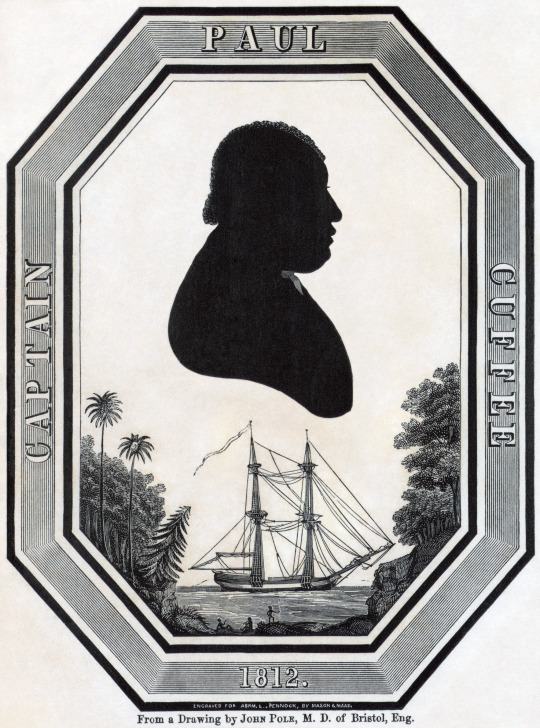

1775 Cuffe, at age 16 learns navigation.
In the late 1780s Cuffe's flagship was the 25-ton schooner Sun Fish and after that he bought the 40-ton schooner Mary.
1795 Cuffe sells the Mary and Sun Fish to finance construction of the Ranger, a 69-ton schooner launched.
1796 Cuffe launches the Ranger from his shipyard in Westport. Wanting a larger homestead
1799 February Cuffe pays $3,500 for 140 acres (0.57 km2) of waterfront property in Westport.
1800 Cuffe purchase a half-interest in the 162-ton barque Hero.
1806 Cuffe's largest ship, the 268-ton Alpha and his favorite ship, the 109-ton brig Traveller are built.
1811 Cuffe takes his favorite ship, the Traveller into Liverpool, The Times of London reports that it is likely the first vessel to reach Europe "entirely owned and navigated by Negroes".
May 23 Tueday The mission visit Njala Agricultural Centre and Training College.
May 24 The mission visits Marampa Iron ore mines and meet with a mission from the U.A.R. also touring the mines.

September The Emperor attends the Conference of Heads of State of Government of Non-Aligned Countries in Belgrade, FPR Yugoslavia, considered to be the founding conference of the Non-Aligned Movement.
Nkrumah.
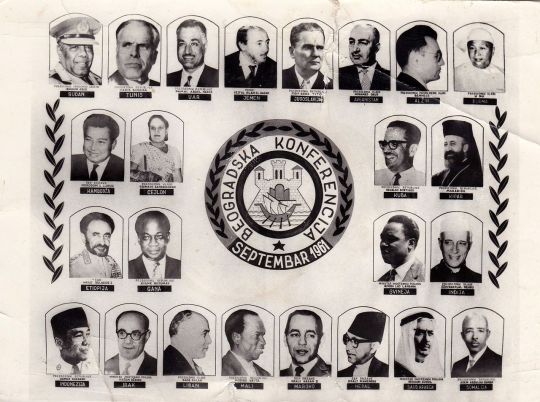
October Du Bois joins the Communist Party and travels to Ghana with his wife to take up residence there and to begin work on his African encyclopedia.
December 15 King works with the desegregation movement in Albany, Georgia.
December 16 King and Abernathy are among those arrested in demonstration in Albany, King declines bail until the city.
Prince Buster’s Oh Carolina by the Folkes Brothers is licensed to Blue Beat Records for release in the UK by Melodisc owned Emil Shalet.
Julius Winston Garvey receives M.D. degree and moves to the United States where he practices medicine in New York.
1962 April 27 LAPD officers beat members of Temple number 27 in South Central, Los Angeles.
A group of Muslims come outside, the disarm one of the officers, another officer is shot on the elbow by one of his colleagues.
Reinforcements of 70 officers arrive and raid the Mosque beating members and even shoot several members including William X Rogers, who is hit in the back and paralyzed for life and Ronald Stokes who is shot from behind whilst raising his hands over his head to surrender and is killed.
The coroner rules Stokes’s killing as being justified.
July 27 King after returning to Albany, Georgia is arrested at prayer vigil 45 days imprisonment or fine of $178, Kings chooses but has his fine paid by Billy Graham three days later with the help of Police Chief Laurie Pritchett.
August 10 King is released.
King works with the Gandi Society to give President Kennedy an executive order for civil rights.
October Brigadier P E Crooks of the Jamaica Defense Force submits a paper to the Governor General Kenneth Blackburne for consideration by the Defence Board in which Ras Tafari is identified as an international threat to Jamaica's national security by reasoning that ‘…the internal threat is well known to readers of this paper and does not require much elaboration. Briefly, Communism will try to infiltrate by all possible means and may make active use of the following: (i) Extreme racial organisations, eg, The Rastafarians approx strength 3,000-5,000, not organised but a potential danger’.
4 notes
·
View notes
Photo

Iconic New York USA From Only £899.00 pp based on 2 adults sharing Deposit £150pp Various Dates in Nov 2022 3 Nights at Westgate New York City Grand Central New York City Hop on-off excursion Shuttle Airport Transfers Bed & Breakfast Basis From Heathrow with choice of airline Luggage included Shuttle resort transfers included Prices for other dates and durations available Flying Direct with United Airlines, American or Delta from London Heathrow 20kg hold luggage per person 5kg Cabin luggage per person. Outbound flight to New York City: Depart London Heathrow between 08:00 and 22.00 arrive New York between 11.20 and 23.00 Inbound flight to London Heathrow from New York City: Depart New York between 09.00 and 20.00 arrive London Heathrow between 20:00 and 08.00(the following day) Description This Package includes: 3 Nights at Westgate New York City Grand Central New York City Hop on-off excursion Schedule Flights with American Airlines, British Airways, Virgin or Delta including 20Kg Hold Baggage per person Shuttle Airport Transfers Bed & Breakfast Basis Highlights Complimentary excursions Deposits available Shuttle Transfers Hotel & Resort New York is one of the most visited cities in the world. From Wall Street's skyscrapers, the neon lights of Times Square to Central Park's leafy paths, New York City pulses with an irrepressible energy. History meets hipness in this global centre of entertainment, fashion and finance. World-class museums and unforgettable icons like the Statue of Liberty beckon, it is simply one of the greatest cities on earth. Westgate New York Grand Central is located in Midtown East Manhattan, New York. This newly renovated hotel near Grand Central Station features midtown Manhattan hotel suites, rooms with balconies, city view rooms, stunning public spaces and iconic bar and lounge, as well as meetings and event space in New York City near midtown NYC attractions. As the premier historic Manhattan hotel in the Midtown East corridor, Westgate New York Grand Central proudly carries forward the passion for hospitality and service now synonymous with Westgate Resorts. (at Birmingham, United Kingdom) https://www.instagram.com/p/CgBuVBXs_es/?igshid=NGJjMDIxMWI=
0 notes
Text
The Friendship Formed on the Doomed Lusitania

Friday, May 7th, 1915, German U-boats struck a passenger vessel and the consequences were those of which were heard all around the world. The RMS Lusitania sunk in only eighteen minutes and of the 1,962 people aboard, only 764 survived. Two persons were tugged from the icy waters off the coast of Ireland, one of whom owed their lives to the other.
Ian Holbourn was forty-three when the Lusitania left the New York harbor and made its way steadily across the Atlantic Ocean to Liverpool. He was a co-founder of Ruskin College and appointed professor of University of California’s art and architecture extension program late run life. He was instrumental in the expansion of the art department of Carleton College in Minnesota, where he served part-time as a professor of art and archaeology. He was crossing the choppy ocean to take up his position as a professor at the University of Cambridge, to reunite with his wife and three sons and to publish a book he’d been working on for twenty years. A second class citizen upon the vessel, Ian was a writer with two books already published: Jacopo Robusti, Called Tintoretto in 1903 and An Introduction to the Architectures of European Religions in 1909. Before sailing, Ian dreamed three separate times that the ship would be torpedoed; his wife also had one dream of this event. On board, Ian stayed in cabin C-10 by himself.

Avis Dolphin the same year as the Lusitania sinking.
A day after the ship set sail, Ian, a great lover of children, befriended a twelve year old girl after an encounter upon the deck between the two. Avis Dolphin was an English girl whose family immigrated to Canada in 1907 when she was only two. However, tragically, Her father died from tuberculosis following his service in the Boer War and her mother ran a small nursing home. Her mother was determined that Avis have an English education, and Avis was to travel to England on the Lusitania with nurses Hilda Ellis and Sarah Smith, both of whom were Mrs. Dolphin's employees going to England on vacation. Ian was usually chided for his unusual dress including Scottish kilts and bonnets and his atypical teaching styles.
Avis unfortunately was seasick throughout the entire crossing and Ian kept her spirits up by telling her stories of the Isle of Foula in Scotland, of which he was laird. Realizing that the Lusitania would be sailing into the war zone, Ian believed it was vital that passengers know proper evacuation procedures and the way to put lifebelts on properly. A secret message soon arrived to him on Tuesday (the fifth day) which ordered him to stop speaking about the possibilities because he was “upsetting the passengers”. Ian was also openly critical of Captain Turner's refusal to order a lifeboat drill in order not to distress the passengers. On Wednesday, May 5th, (the sixth day) Ian complained directly to Captain Turner, but sensed his interference was unwelcome. To the individuals who refused to face facts and recognize the dangers, Ian nicknamed them the "Ostrich Club” which Avis must of greatly enjoyed.
The entire voyage, Ian and Avis spent their time up on the desk with the sea or down below in the dinner area serving themselves desert. The day of the torpedo, May 7th, Avis and Ian were sitting down to lunch together. Coffee had just been served and everyone was greatly enjoying themselves during the second sitting of lunch where the two were when the torpedo hit. The Lusitania shook so suddenly and violently that dishes crashed to the floor. In an effort to quiet the panic that was beginning to consume the populace, stewards began to shout that there was, "No danger, keep to your seats!" Except for a few screams, the atmosphere in the dining room was one of "absolute calm."
Ian's first thought was to reach for Avis, but he first waited for the worst before rushing over to her side. Avis, accompanied by her nurses, then thought (according to her in her later years), "What a shame, I'm going to miss dessert." Ian then shouted at her and her nurses, "Stay where you are!". Ian was sitting about twenty feet away from them. Quickly, rising and grasping at Avis’s hand and telling her to not let go, Ian led her to his room to put on lifejackets as his room was a deck above Avis'. There, Ian put on her a lifebelt that belonged to a fellow passenger and tied lifebelts to her before grabbing his and placing it in his hand. Ian, still in the cabin, gathered a few of his most important manuscripts and together they made for the top. Ian and Avis were at the top of the companionway and almost out on the deck when the lights went out. It was when the second explosion went off and these lights went out that the passengers began to scramble, pushing and shoving one another to out.
On deck, Ian and Avis sighted Hilda Ellis and Sarah Smith who they had been separated from. Sarah did not have a lifebelt on and Ian offered her his. She refused, saying that "his life was of more value than hers as he had a wife and children" but she ended up receiving the life-jacket in the end anyways. Ian would later comment strongly on the further need of lifebelts on the boat decks. They agreed that Ian would keep his lifebelt if he could find a boat for Avis, Sarah, and Hilda. Ian attempted to get them away in a portside lifeboat, but they saw one smashed in launching. during the frenzy that was taking place. They saw another launched empty, and some men stripped, diving in the waters and swam for it. Sensing the starboard side was their only hope, the group moved forward and Holbourn was able to place Avis, Sarah, and Hilda in a starboard lifeboat (possibly #17 as sources indicate).
Before lowering her down, he kissed Avis, and fearing that he would not survive told Avis to "find his wife and children and kiss them goodbye for him". The Lusitania was now very low in the water and Ian stuffed his manuscripts into his clothing. He moved forward to the iron rail to find a clear space to jump into the waters to save himself since there were no lifeboats left. As Ian jumped, with horror he watched, as he plunged into the waters, that Avis' lifeboat had capsized and she was sucked under the water. It capsized when two men attempted to jump into the boat from the deck while the boat was still being lowered via ropes. Avis and her nurses tumbled into the frozen waters and Avis was able to swam clear of the boat towards a raft, where two men pulled her up. She was not able to find her nurses Sarah or Hilda. The wreckage and throng of people made it impossible for Ian to make his way over and later he stated he had terrifying nightmares of that lifeboat spilling for years afterward and the fear of believing he had lost Avis to death.
In the water, Ian became entangled in ropes and also was pulled under nearly to his death to drown. He was able to free himself eventually and barely in the knick of time. He made for lifeboat #15, the closest one, and hoping to get in, pushed a fellow companion in the water in hopes of him gaining access to the small boat. Unfortunately, when he got to the boat, he discovered that passenger he’d dragged along was already dead, and that the people in the overcrowded boat refused to allow him in. Fearing that he and his manuscripts would be lost, he threw his manuscripts into the boat so at least his papers would be saved, and then grabbed onto a rope trailing from the stern of the lifeboat to keep him afloat.
The people in the lifeboat witnessed another, empty boat (perhaps #1 or a collapsible) a few yards off and made towards it. As #15 was full of people fished from the water, it took forty-five minutes to reach the other boat which had drifted away on the tides, but to Ian, he stated it seemed like passed like an "an interminable age." Weakened from the cold water, he asked for one of the men in the boat to grasp his hand in his last moments. Those in the boat, however, were too horrified by their surroundings and they refused to do so. He was dragged into the second boat with the help of others inside where he retrieved his manuscripts. Seeing and hearing so many people drowning painted a picture "too ghastly to describe" Holbourn later described. Ian was picked up by the fishing vessel Peel 11. The Peel 11 was already overcrowded but still took on two additional lifeboats.
It is not clear what boat Avis was rescued by after four hours but it was a large boat that contained a stove and some blankets, and she was given a glass of warm milk and tucked into bed. Neither of her nurses survived. The survivors, many of them seriously injured, huddled together in a small hold, before they were transferred to the Stormcock. Upon arrival in Queenstown, Ian continued his search for Avis despite his exhaustion and exposure. He was able to walk, but his limbs refused to work properly because of hypothermia. Two soldiers then took him to the Cunard ship line office and later to a hotel where he was put to bed. Ian asked for news of Avis whenever he could. It was not until 2 am in his hotel that he finally got word that Avis was safe to his astonishing relief. His exposure to the water was took a serious toll on him and was confined to bed in the hotel.
Avis, very much well, came to see him every day and stayed for all hours. Her physical recovery was extremely rapid, mostly due to her robust age. During her time at Queenstown where the survivors had been recuperating, she tended to Holbourn who was still severely ill due to his prolonged exposure in the water. On the way back home to Great Britain, Ian continued to take care of Avis, providing rooms for her at a Dublin hotel in Sackville Street before taking her to her grandparents in Worcester. Marion Holbourn, Ian’s wife, met up with Ian and Avis at the Birmingham railway station. As Marion packed away Ian's wet belongings, a standby asked Marion what she was doing. When she replied she was meeting her husband who was on the Lusitania, the person then asked, "Oh, was 'ee drownded, then?"
Avis' grandfather admitted that he had a premonition of the Lusitania's torpedoing, as did Marion. Ian had seen Avis' lifeboat capsize, but when he told the tale the grandfather added, "Depend on it, that's our Avis!". Avis Dolphin and Ian Holbourn continued to be life-long friends and frequently visited one another. One day, when Avis was about thirteen, she complained about how boring books written for girls were. Striking an idea, Ian promised to her that he would write her an adventure story that would be as thrilling as any that book that was written for boys. The Child of the Moat, published in 1916 when Avis was the same age, sold out immediately in book stores. Before a second edition could be published, however, the publisher folded. Following her school years, Avis Dolphin moved to Edinburgh to be closer to the Holbourns.
Ian was appointed professor in the extension department of the University of California in art and architecture in 1918. That same year, he was appointed lecturer to the United States Federal Government Committee on Public Information to forge a better understanding between the United States and Britain. The following year, Ian received an invitation from Carleton College in Minnesota to build up their art department. "All this Professor Holbourn has done not only without straw but without bricks." He once told his students, "I do not mind if you contradict me and prove me wrong; what I do not want is my own lecture dished up again." In response a student said, "But that is just what most of the other professors want!" Shops were flooded with postcards of quotes from his lectures, including "Never be satisfied with what CAN be done -- any fool can do that. Strive to do the thing that CAN'T be done."
On one visit to the Holbourns' Penkaet Castle in 1925, Avis stayed in the King Charles Room. Avis reported to Ian that she heard someone moving downstairs and alerted the Holbourns. When they headed downstairs, they then heard sounds of someone moving around in Avis' bedroom. In a separate incident at Penkaet, Avis felt a ghostly fingertip draw across her throat. During another visit to the Holbourn's house she met the journalist Thomas Foley. Avis and Thomas married in 1926 with the Holbourns most likely in attendance.
In 1929 Ian was involved in another almost shipwreck when he and a friend named Hylas were caught in a storm while sailing on the Paralos. The ship was not sunk, but both Ian and Hylas were injured. The Great Depression and the Wall Street Crash of 1919 made it impossible for him to retire. To cope, he smoked constantly making his throat delicate. Although he tried to quit he was never able to give up it up entirely but told others not to pick it up. Ian dreaded old age and spoke woefully of this to Avis as well as he became concerned about the afterlife. When faced possible necessity of an operation, Ian became rather depressed. The day before Ian left for the hospital, he told Marion he had made an "epoch-making discovery" in his philosophy and hoped to be able to write it out. The surgery went well, but three days later, Marion felt a sense of "impending disaster." On the morning of September 14th,1935 Marion rushed to the nursing home to see Ian. He looked normal to her. One of his last words was "I think my philosophy may be counted as a real contribution. Don't you think?" At midnight Ian passed away at only sixty-two.

Marion stayed in contact with Avis until her own death in the 1970s after living through two world wars. Avis lived out her remaining years in Wales. She passed on February 5th, 1996.
161 notes
·
View notes
Text
10 things you need to know for your first few weeks
A guide by our International Orientation Team.
First of all, welcome to Monash University and we hope for those of you who made time to visit the International Student Lounge this week, that you met some new friends and learned a little more about Monash. We can’t wait to meet each of you and involve you in the Monash community.
Here are a few quick tips to prepare you for Orientation Week.

1. Smile, talk, ask, listen, and talk again
During your first weeks, you will have many orientation events to attend, and they are the best way to make new friends and meet people from all around the world. Everyone there is in the same situation, so don’t be shy, introduce yourself, and talk to the other students! If you don’t feel comfortable starting conversations with random people, you can always look for that lonely person in the room who is probably feeling just like you. It can be the beginning of an awesome friendship!
2. Public transportation: Meet Myki
To use the public transportation in Melbourne you will need a Myki card. You can get one from the Myki machines in every train station in the city. With a Myki card in hand, all you need to do is purchase credit by cash or card at the same station Myki machines every time you need to travel by bus, tram or train. You also need to validate your Myki every time you get on or off a tram, bus or train station. Otherwise, if the Myki patrol catches you travelling without a valid ticket, you can get a fine, and you don’t want that! (Go to http://ptv.vic.gov.au/tickets/myki for more info)

3. Get a ‘Proof of Age’ Card
Losing your passport is not fun; it takes time and money to get a new one. However, it happens more often than you might think. But you can avoid many risky situations by requiring carrying a Proof of Age Card with you instead of your passport when going to bars, pubs and clubs. You can apply for a Proof of Age Card at participating Australia Post Offices, selected pharmacies or chemists (go to www.vcglr.vic.gov.au/utility/community/young+people/proof+of+age/ for more info).
4. Keep an eye on your spending
Studying abroad is an amazing opportunity for you to grow and be more independent. And one of the most important steps is controlling your finances. To make sure you won’t be completely broke by the end of the month, try to plan and record every expense in an app or notebook, or create a document on your computer. If you have some money left by the end of the month and/or need to save money for a trip, you can schedule regular transfers of money to your savings account (check this possibility with your bank).
5. Getting an Australian phone number
In Australia, there are a large number of telecommunication companies offering mobile phone plans with different network providers. Look for a plan that suits your usage and don’t forget to check the duration of the plans, and the rates for local and international calls, SMS and data. You can also talk to other students about their experiences with the mobile phone companies before deciding which one will suit you better.
6. Getting a job and a Tax File Number
Having a job during your time in Australia is a great opportunity for you to save some money to pay for your trips (we all know you didn’t come only to study)! But before starting to look for a job, you first need to check if your visa permits you to work in Australia and how many hours of work you can undertake. After understanding the rules of your visa, you can go to the Australian Taxation Office website to acquire your Tax File Number, which allows you to have a portion of your taxes returned later. After these two steps, you can finally search for the best opportunities either via websites or in person. When applying in person, print a few copies of your CV to hand out wherever you see a “Staff needed” sign. Conveniently, you can also search and apply for jobs posted by employers on our Career Gateway site. For more information on searching for part-time or casual employment, finding balance and understanding your work rights, visit: www.monash.edu/career-connect/jobs/find-a-job/casual-part-time-work

7. Explore the surroundings
After recovering from the long flight, it is time to explore the area you are living in and the campus where you will study. Start by just walking around your block, getting to know the streets and seeing what’s nearby. You can also check online where the closest shops, banks, post offices and bus/tram/train stops are, and familiarise yourself with your surroundings. To explore your campus you can view our campus maps. Then, walk around to discover the places most relevant to you, such as the buildings for your area of study, food outlets, ATMs, etc. And don’t worry about getting lost; it’s part of the experience!
8. Be prepared for emergencies
Emergencies are always unexpected. But even so, you can make future problems less complicated by having some useful numbers stored in your phone. The most important of all the telephone numbers is 000, the national telephone number for all emergency services: Ambulance, Fire and Police. Other than that, it is important that you know the phone number to block your credit card and your phone SIM card, in case you lose one of those items. Less essential to have, but also very useful are numbers for taxis, the embassy of your country, and university campus security.

9. New country, new road rules
If you come from a country where people drive on the right, you’re probably already confused with the Australian road rules. But, besides looking for both sides before crossing a street, there are other important safety tips you need to know: cross the road at pedestrian crossings or traffic lights where possible, never assume that an approaching vehicle will stop for you, keep to the left side on shared bicycle/pedestrian paths, and wear bright coloured clothing when running or cycling at night. If cycling at night, your bicycle will also need to be fitted with lights.
10. ...and Australia’s Minister for Education and Training, the Hon. Simon Birmingham has this welcome message for students.
youtube
3 notes
·
View notes
Text
Looking for Birmingham New Street Station Transfer services? At Airports Travel Ltd., we are committed to providing our customers with the best possible service for a seamless and hassle-free experience.
We understand the importance of customer satisfaction, and are committed to meeting and exceeding our customers’ expectations. We take pride in our reliable, efficient, and cost-effective services, ensuring that our customers have the best possible travel experience. To book a ride with us, visit our website now!
#birmingham new street station#birmingham#station transfer#taxi transfer#taxi#minicabs#airports travel
0 notes
Text
Which John Lewis stores are closing? The department store announces eight stores will not be reopening after lockdown
The last three months have been a tough time for high-street shops. However, while many stores are now welcoming customers back, John Lewis has announced that eight of its stores will not be reopening.
Related: Our most-wanted John Lewis furniture pieces for the new season – the rattan headboard is amazing…
Last week The Standard revealed that not all John Lewis & Partner branches would reopen after the lockdown. Today the high street giant revealed which John Lewis stores are closing.
Which John Lewis stores are closing?
In a statement, John Lewis said it would not be reopening shops in Birmingham, Croydon, Heathrow, Newbury, St Pancras, Swindon, Tamworth and Watford.
Image credit: Claire Doherty/SIPA USA/PA Images
‘Prior to COVID-19, some of our shops were already financially challenged, despite the drive and determination of our Partners,’ said the statement. ‘The pandemic has accelerated the shift from shopping in-store to online, and in order to navigate these changes we are having to make some difficult decisions.’
The list of closure includes two ‘full service’ department stores. The Harlequin Shopping Centre branch in Watford, which has been in operation for 30 years. Along with the 136,000 sq ft outlet in the Birmingham Bull ring shopping mall that opened in 2015.
The John Lewis stores in Croydon, Swindon, Tamworth and Newbury are all smaller ‘At Home’ branches. Heathrow Airport and St Pancras Station have both lost their small ‘gift-based’ John Lewis outlets.
View this post on Instagram
We’d like to thank you for your loyalty and support throughout these uncertain times. The last few months have been challenging for us all. Prior to COVID-19 some of our shops were already financially challenged, despite the drive and determination of our Partners. The pandemic has accelerated the shift from shopping in store to online, and in order to navigate these changes we are having to make some difficult decisions. As a result, we are not planning to reopen the following shops: Birmingham, Croydon, Heathrow, Newbury, St Pancras, Swindon, Tamworth and Watford. Our commitment to serve you remains as strong as ever and there are plenty of ways to continue shopping with us. We would love to welcome you to your nearest alternative John Lewis shop. You can also visit us online at johnlewis.com or download our app. We’ve also developed new ways to offer you expert advice and inspiration whenever you need it through our new virtual services. Our priority now is the wellbeing and future of the Partners affected, and if job losses are confirmed, we will explore opportunities for anyone who wishes to stay in the John Lewis Partnership. We know this is difficult news to hear and it is with a heavy heart that we have come to this conclusion. Some of our shops may be closing, but we hope your journey with us continues. To find out more please see the link in bio.
A post shared by John Lewis & Partners (@johnlewisandpartners) on Jul 9, 2020 at 4:01am PDT
The closures have placed 1,300 jobs at risk. However, in the statement, John Lewis & Partners said it would do everything it could to find new roles for its partners.
‘If redundancies are confirmed, every effort would be made to find new roles where possible for Partners who wish to remain within the Partnership,’ it said. ‘Opportunities could include transferring to local Waitrose shops or working for johnlewis.com and waitrose.com as they continue to grow.’
Related: John Lewis & Partners reveal sales of this very British kitchen item are soaring
In a post on Instagram, the brand wrote, ‘We know this is difficult news to hear and it is with a heavy heart that we have come to this conclusion. But we hope your journey with us continues.’
The post Which John Lewis stores are closing? The department store announces eight stores will not be reopening after lockdown appeared first on Ideal Home.
from Ideal Home https://ift.tt/2AH6VKO
0 notes
Text
Why It Is Not The Best Time For Cartoon Person Painting | Cartoon Person Painting
Atramentous artists are painting murals on Indianapolis businesses that accept been boarded up afterwards riots in backward May. Three allocution about their work. Indianapolis Star

Vintage Oil on Canvas African American Woman Civil Rights .. | cartoon person painting
Rebecca Robinson is creating a mural of a adolescent man admiration and captivation a banderole with the appearance of the United States.
The location, in the bridge on Meridian Street by Union Station, is new. The all-embracing architecture is new. The roots abaft it aren’t.

Cartoon people clip art free clipart clipartbold – Clipartix – cartoon person painting | cartoon person painting
Robinson is one of several artists bringing acquaintance and adorableness to barrio that accept become as affecting as they are physical. Afterwards protests that affably alleged for ancestral amends in the deathwatch of African Americans’ deaths at the easily of police, riots took over at night on May 29 and 30. Windows of burghal businesses were burst and apparent up amidst a fog of breach gas.
In the afterward days, burghal donned a biscuit compatible of plywood. Calls bound army for art that accurate Atramentous Lives Matter.

Hospital painting disabled patients sketch cartoon design vectors .. | cartoon person painting
Matthew Cooper murals are apparent on the ancillary of the old Indianapolis Burghal Hall, Thursday, June 11, 2020. Atramentous artists are painting murals on businesses that accept been boarded up afterwards canicule of demonstrations. (Photo: Kelly Wilkinson/IndyStar)
The aftereffect has been a consistently active alfresco art arcade that makes Indianapolis’ chat about chase and disinterestedness visible. The works speak to admirers alone — while protesters advance with signs and afterwards they go home for the day.

… wise woman 2 .. | cartoon person painting
“Instead of aloof boards all
Why It Is Not The Best Time For Cartoon Person Painting | Cartoon Person Painting – cartoon person painting | Delightful in order to our website, with this period I will show you in relation to keyword. And after this, this is the primary picture:

Painting White Background Images | AWB – cartoon person painting | cartoon person painting
Think about picture over? can be in which amazing???. if you believe so, I’l t provide you with a few graphic once more down below:
So, if you would like get these outstanding images about (Why It Is Not The Best Time For Cartoon Person Painting | Cartoon Person Painting), simply click save icon to store the images to your personal pc. There’re prepared for transfer, if you like and wish to have it, just click save badge in the page, and it’ll be instantly saved in your computer.} As a final point if you need to secure new and latest image related to (Why It Is Not The Best Time For Cartoon Person Painting | Cartoon Person Painting), please follow us on google plus or book mark this page, we attempt our best to offer you regular up grade with fresh and new pictures. We do hope you enjoy keeping right here. For many upgrades and latest news about (Why It Is Not The Best Time For Cartoon Person Painting | Cartoon Person Painting) shots, please kindly follow us on tweets, path, Instagram and google plus, or you mark this page on book mark area, We attempt to present you up-date regularly with all new and fresh shots, like your searching, and find the right for you.
Here you are at our website, contentabove (Why It Is Not The Best Time For Cartoon Person Painting | Cartoon Person Painting) published . Today we’re pleased to announce that we have found an awfullyinteresting topicto be reviewed, that is (Why It Is Not The Best Time For Cartoon Person Painting | Cartoon Person Painting) Many individuals looking for details about(Why It Is Not The Best Time For Cartoon Person Painting | Cartoon Person Painting) and definitely one of them is you, is not it?

paintbrush clipart png – Paint Brush And Color Palette – Man .. | cartoon person painting

Blanche~ – cartoon person painting | cartoon person painting

Artist Creates 50 Self-Portraits in the Style of Popular .. | cartoon person painting

File:Cartoon Man Reading A Sad Message On His Phone.svg .. | cartoon person painting

Free Cartoon Man Cliparts, Download Free Clip Art, Free .. | cartoon person painting

Painting Clip Art | Clipart Panda – Free Clipart Images – cartoon person painting | cartoon person painting

Library of person painting banner transparent png files .. | cartoon person painting

How to Retouch Wrinkles in Photoshop – cartoon person painting | cartoon person painting

How to easily make a Cartoon Character in Paint.net .. | cartoon person painting

Birmingham make up artist transforms into Disney .. | cartoon person painting

Painter Man. Decorator Cartoon Character Stock Vector .. | cartoon person painting

Paint Clipart Person Painting – Poster On Painting .. | cartoon person painting

Terri Heal for JKPP – cartoon person painting | cartoon person painting
The post Why It Is Not The Best Time For Cartoon Person Painting | Cartoon Person Painting appeared first on Wallpaper Painting.
from Wallpaper Painting https://www.bleumultimedia.com/why-it-is-not-the-best-time-for-cartoon-person-painting-cartoon-person-painting/
0 notes
Text
Race starts for £570m Birmingham HS2 station
HS2 has fired the starting gun on bidding for Birmingham’s landmark Curzon Street station.
Rail procurement chiefs have opted for a two-stage bid process for the first time to nail down the cost of delivering the project.
It is the second time the massive station project has been put out to tender.
Last July HS2 cancelled the previous bid race blaming a lack of interest from contractors.

It has now recast the procurement process to rebalance risk transfer between client and contractor.
Firms are being invited to prequalify today with shortlisted bidders expected to be drawn up in early July.
HS2 is aiming to create one of the most environmentally-friendly railway stations in the world – delivering net zero carbon in operation.
Consultant WSP and Grimshaw Architects have now finalised the design for Curzon Street in Birmingham city centre, which will be the first brand new intercity terminus station built in Britain since the 19th century.


0 notes
Text
Race starts for £570m Birmingham HS2 station
HS2 has fired the starting gun on bidding for Birmingham’s landmark Curzon Street station.
Rail procurement chiefs have opted for a two-stage bid process for the first time to nail down the cost of delivering the project.
It is the second time the massive station project has been put out to tender.
Last July HS2 cancelled the previous bid race blaming a lack of interest from contractors.

It has now recast the procurement process to rebalance risk transfer between client and contractor.
Firms are being invited to prequalify today with shortlisted bidders expected to be drawn up in early July.
HS2 is aiming to create one of the most environmentally-friendly railway stations in the world – delivering net zero carbon in operation.
Consultant WSP and Grimshaw Architects have now finalised the design for Curzon Street in Birmingham city centre, which will be the first brand new intercity terminus station built in Britain since the 19th century.


from https://www.constructionenquirer.com/2020/01/24/race-starts-for-570m-birmingham-hs2-station/
0 notes
Text
Explore London via A & B Cabs Gatwick airport taxi

London is more than 2000 years old, and has been a vibrant, active city for its entire history. Today, it's the home of over seven million people, with several million more living near its outskirts, and has relatively easy access to the Continent via the Chunnel, the tunnel from France to England. Although England itself makes for an exciting and interesting travel experience, just going to London can fill months of travel time, and still not exhaust your interest.
Just people-watching in London can keep you occupied for days. London is no longer only British; instead, it's one of the most vibrantly multicultural cities in the world. The area north of Hyde Park is largely owned by Arabs now, and outlying suburbs are homes to entire neighborhoods of people of Indian and Pakistani descent. You can go to many neighborhoods in the city and not hear a word of English.
Of course, sometimes you might not recognize English as English. There are twenty or more distinct dialects just in London, some more mainstream than others. About half the English dialects in Britain have their roots in London, a 600-square-mile patch of land. It's an amazing city filled with textures and cultures you didn't even know existed. Most of the tourist section of London can be found between the Tower of London and Hyde park, a three-mile walk.
Museums
London has countless museums, large and small, old and new, classy and kitschy. Museums with free admission include the British Museum, the British Library, National Gallery, the National Portrait Gallery, and the Tate Gallery. After a certain time in the afternoon until closing (call to get exact times), the Imperial War Museum, the Museum of London, the Natural History Museum, and the Victoria and Albert Museums are also free.
In the Victoria and Albert, you can find excellent collections like the Medieval Treasury art gallery; the Dress Gallery, 400 years of English dress; and many famous works of art including reliefs by Donatello. In the National Gallery, you can find art by grand masters ranging from Da Vinci to Rubens, Botticelli to Monet and other French impressionists. If you're interested in more peculiar exhibits, the famous Madame Tussaud's Waxworks contains wax representations of people throughout history, and more modern works. It's an incredible and historic museum.
Architectural Treasures
London is crammed with architecture from most stages in its history, some of it historic, much of it remarkable in design and beauty. For starters, the Tower of London covers several hundred years of architectural history, as well as a millennium of British history. Here, Lady Jane Grey and Anne Boleyn lost their heads; here, the Princes in the Tower vanished. The oldest part is the White Tower, built by William the Conquerer in 1077; the rest has been built around it.
More recently, St. Paul's Cathedral is only a few hundred years old; it's a symbol of British pride since World War II, when every German air raid on London failed to blow it up. In the crypt, you'll find famous graves like Lord Nelson, or the quietly anonymous dead. London Bridge, where once shopkeepers held business, is an architectural marvel; for a special look at it, try a boat trip up the Thames.
For less-authentic but still delightful fun, try attending a performance at Shakespeare's New Globe Theater, an exact reproduction of Shakespeare's Globe, which was destroyed long ago; you can experience theatre not as it's done today, but as it was acted in Shakespeare's time, roaming the lower gallery and even interacting with the actors. Or you can visit the Royal Shakespeare Company, a not to be missed Shakespearean company.
Walking Tours and Getting Around Time
There are dozens of walking tours available; visit the Tourist Information Centers off Piccadilly Circus or in Heathrow Airport. Good walking tours will take you to sights like Westminster Bridge, the Jubilee Promenade, and then across the bridge to stand beneath the Houses of Parliament and Big Ben. For a perfect view and to take great pictures, walk to about the halfway point on the bridge. Nearby is Westminster Abbey, overlooking the great statue of Churchill, pigeon-free because he's electrified. Trafalgar Square is the heart of British government; you'll see the Queen's Life Guard nearby. And there are dozens of places to eat in the area. If you are hire a taxi transfer company, Gatwick Airport Taxi can be easy your trip those Airport Taxi Leicester company are well known about London’s way and traffic.
Getting around London isn't difficult. Driving is not a great idea; you'll wind up sitting in traffic most of the time, and parking is horribly expensive. Instead, use the buses, the Tube (London's subway), or Gatwick Airport Taxi to get from place to place. Or just walk; if you walk, you won't pass up the really interesting spots. You can get maps of Gatwick Airport minicab and Tube routes at a TI or Tube station; you should also be able to find them at the Tourist Information Centers. If you ride the bus, get on, and the conductor will sell you a ticket. Or you can purchase a transit pass - ask at the Tourist Information Center. To ride the Tube, purchase tickets at the coin operated machines, not the booths; this way, you'll avoid lines. Tickets are valid only on the day of purchase, so don't pre-purchase tickets.
Shopping
Everywhere you can find neat little shops. For the best, try Harrods of London and Harvey Nichols. For a shopping neighborhood, try the Oxford Circus/Regent Street/Piccadilly Circus shopping walk. If you see a royal seal on a shop, stop in; this denotes it as a favorite of someone in the Royal Family. Sotheby's Auctions are also great, though they can get expensive quickly; call them for schedules. London is also famous for great street markets, which are like huge flea markets; for a schedule and locations, speak to your handy Tourist Information Center.
This is nothing more than a taste of what London has available to visitors. There are thousands of things to do and see.
Some Quick links:-
Leicester to Birmingham Airport Taxi, Taxi to East Midlands Airport From Leicester, Leicester To Gatwick Taxi, Leicester To Heathrow Taxi, Leicester Airport Transfers, Airport Taxi Leicester, Leicester To Birmingham Airport, London Southend Airport Taxi, London Southend Airport Transfer
0 notes
Photo

New Post has been published on https://travelonlinetips.com/euston-station-to-shut-again-this-bank-holiday-weekend/
Euston station to shut again this bank holiday weekend


After the four-day Easter shutdown of the UK’s fifth-busiest railway station, train travellers will find London Euston closed once again over the coming bank holiday weekend.
On 4, 5 and 6 May, no long-distance trains will run to and from Birmingham, Manchester, North Wales and Scotland on the West Coast main line.
In addition, several other projects on the rail spine are taking place.
We’ll tell you what’s true. You can form your own view.
From 15p €0.18 $0.18 USD 0.27 a day, more exclusives, analysis and extras.
Subscribe now
The operator, Virgin Trains, is warning passengers: “We highly recommend that you avoid travelling on these dates unless you absolutely have to.
“If you do choose to travel then, make sure you plan carefully and give yourself more time to get to where you need to be.”
Services will be starting and ending at Milton Keynes Central, but frequencies will be sharply reduced – with only one train per hour to Manchester, rather than three.
Over the weekend buses will replace trains on several other sections of the West Coast main line from Crewe to Glasgow and Edinburgh.
For travellers between London and the West Midlands, the recommended route over the bank holiday is on Chiltern from Marylebone to Birmingham Moor Street, which is a 10-minute walk from the city’s main New Street station.
Travellers to and from Manchester and Liverpool can take this route and transfer to other services from New Street.
Alternatively, passengers for Manchester and Carlisle can travel on LNER from London King’s Cross and change at Leeds.
Read more
East Coast main line services operated by LNER are also the best options for Edinburgh and Glasgow.
Over Easter, however, many passengers complained about severe overcrowding on East Coast trains.
The East Midlands line from London St Pancras to Sheffield will be disrupted in the capital and between Derby and Chesterfield.
Network Rail says: “The railway is up to 50 per cent quieter than usual over bank holidays so doing work at this time of year minimises our impact on passengers who, as research shows, understand the need for such activity.”
Support free-thinking journalism and subscribe to Independent Minds
London Fenchurch Street will also be closed for the weekend, with services to and from south Essex diverted to Liverpool Street.
Work to replace track between Farringdon and West Hampstead in London will close the north-south Thameslink line through the capital, though curtailed services will still run to Gatwick and Luton airports.
Through the weekend many rail links will be replaced by buses, including Shenfield to Southend, Manchester to Chester and Barnsley to Huddersfield.
In Scotland, 4 May marks the start of large-scale work on the line between Aberdeen and Inverness, with disruption continuing until late August.
Source link
0 notes
Text
5G: How will businesses benefit?

5G: How will businesses benefit?
5G is the buzzword of the moment and it’s not surprising why. According to Qualcomm, it’s expected to create 22 million new jobs and contribute a $12.3 Trillion economic benefit across the globe by 2035. As the name suggests, 5G is the fifth generation of mobile networks, promising more speed and lower latency. Beyond performance benefits, it’s also set to underpin Industry 4.0 where everything is connected, processed and digitized. Yet, 5G is currently tricky to pin down and its full arrival is still a long way off, but one thing is for sure, it will impact your business. 5G's impact on the future of work The future of cybersecurity in a 5G-connected world Five Eyes "needs major 5G vendor" 5-who? While the UK was a disappointing 54th to launch 4G in the global race, it will be in the first wave of countries to adopt the new networking technology. There are three bands of 5G: sub 1GHz (cheap and offers wide coverage, yet slower speeds); 3.4-3.8 GHz (the main frequency layer) and >6GHz (high bandwidth with low latency). Speeds in some bands will be well in excess of 1Gb/s. The major networks, including EE, Three, Vodafone and O2 have all started initial roll outs of 5G in high traffic areas. Vodafone recently completed a live test after winning the largest block of spectrum in Ofcom’s 5G auction at Birmingham New Street Station, creating the UK’s first 5G train station. At this year's Mobile World Congress (MWC) in Barcelona, every smartphone manufacturer showed off a new 5G device. However, it won’t be until 2020 at least until the 5G revolution really kicks off here and its likely urban centers – where all trials have been held so far - will benefit first. Having said that, the race to 5G is at risk of slowing as it requires extensive government approval. Not to mention the fact the U.S is still trying to ban Huawei, the Chinese supplier of high-speed telecoms systems over fears this would help China conduct espionage or cyber sabotage. It seems the UK believes this risk can be mitigated without banning Huawei from the 5G network, according to recent headlines. So, looking forward, it’s unclear when exactly UK businesses will benefit from the 5G network, but rest assured it’s coming.

Image Credit: Pixabay Understanding the business benefits There’s a lot of talk about 5G as a consumer technology but less about how it’s set to benefit businesses. The start with, it will certainly improve the experience of remote working and collaboration. Today, over 50 percent of staff work away from their main office at least 2.5 days a week which while giving businesses agility, improved scheduling and lower staff turnover, can make connecting, sharing and engaging teams difficult. Enter 5G. Network-related tasks, such as online sales or sharing large files in the cloud will become faster and more efficient, even on mobile devices without the need to connect to WiFi, giving businesses huge productivity gains and boosting staff morale. After all, there’s nothing more frustrating than a slow internet connection. As well as connecting people, 5G will connect things, vastly expanding the capabilities and application of IoT which demands better and faster connectivity. In fact, 5G will enable device-to-device communications for up to a million devices per square kilometer. These opens-up huge opportunities for IoT innovation and commercial use - from driverless cars, drones, Artificial Intelligence, robotics and remote-controlled machinery, and virtual and augmented reality - giving businesses at the forefront of creating and using such technologies a competitive edge. A very clever example of what’s possible is provided by Vodafone’s 5G connected crane, allowing an operator hundreds of miles away to have full remote control of the crane (or indeed multiple cranes in different locations). This 5G-enabled teleoperation solution could transform the construction industry and many others, increasing site safety and reducing idle time. Plotting your 5G road map As with any new technology, it pays to be fully prepared and those who are will gain first mover advantage. Every business, no matter its size or sector, should be thinking about how 5G could benefit them and their customers. Before jumping in, it’s important to clearly lay out the key investment areas to prepare your business for 5G’s arrival. Knowing how you want to use 5G is much more valuable than being an early adopter who doesn’t. Consider appointing an internal person or team to spearhead the project, working with the support of external experts where needed. Senior representatives from different departments should also be encouraged to feed in to help identify current roadblocks and possible areas for innovation. Future-proofing your network infrastructure is also a must for any adopter of 5G. If the access network attached to 5G is poor, you will just move the bottleneck. If you haven’t already, consider transitioning to a virtual network – the process of consolidating the physical hardware into a single software-based entity – which will be more fluid, dynamic and flexible.

Image Credit: Shutterstock The evolving threat landscape The very attributes which make 5G so valuable create new cybersecurity risks. A wider attack surface with more devices connected to the network and files being transferred across it, opens-up vulnerabilities. As the evolving threat landscape becomes clearer as the full deployment of 5G edges closer, it’s important security protocols do not cancel out the productivity gains businesses are looking forward to by slowing or preventing authorized access. With the growth of BYOD and remote working, business leaders are well versed in the risks associated with a blurred security perimeter. However, 5G brings new security concerns as hybrid computing becomes the norm, combining the risks of endpoint computing with those of cloud computing. In response to these concern, the UK Government’s 5G Testbeds are focusing on the principle of “security by design”, whereby 5G networks, software and apps are designed with security at the core with the flexibility to adapt in the face of evolving threats. A zero-trust security model is considered to be the safest way to mitigate the risk factors associated with 5G networks. Security on a zero-trust basis centers on the data, with every access request being verified, validated and authenticated. For example, 5G devices could recognise sensitive documents being accessed on the move during an employee’s commute and the virtual network could provisionally block access until the user is in a suitable place to access such documents. While many people will be taking advantage of 5G in the correct way, others will be focused on undermining it. Businesses need to bear this in mind when adopting 5G, or in fact any new technology, and adapt their security protocols accordingly to stay protected. Read the full article
0 notes